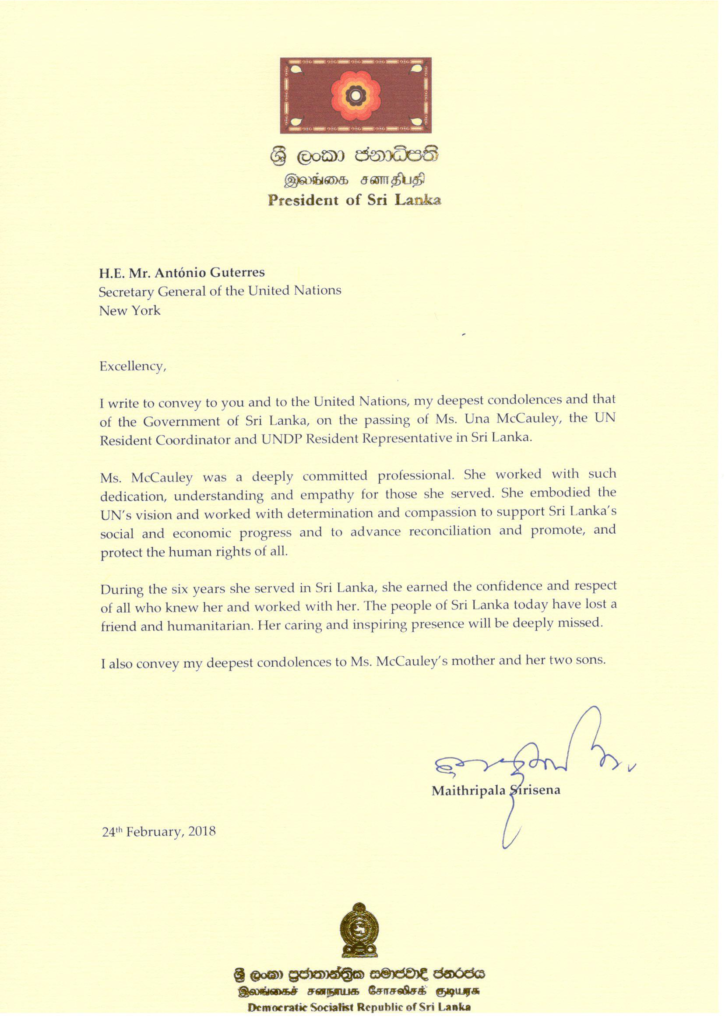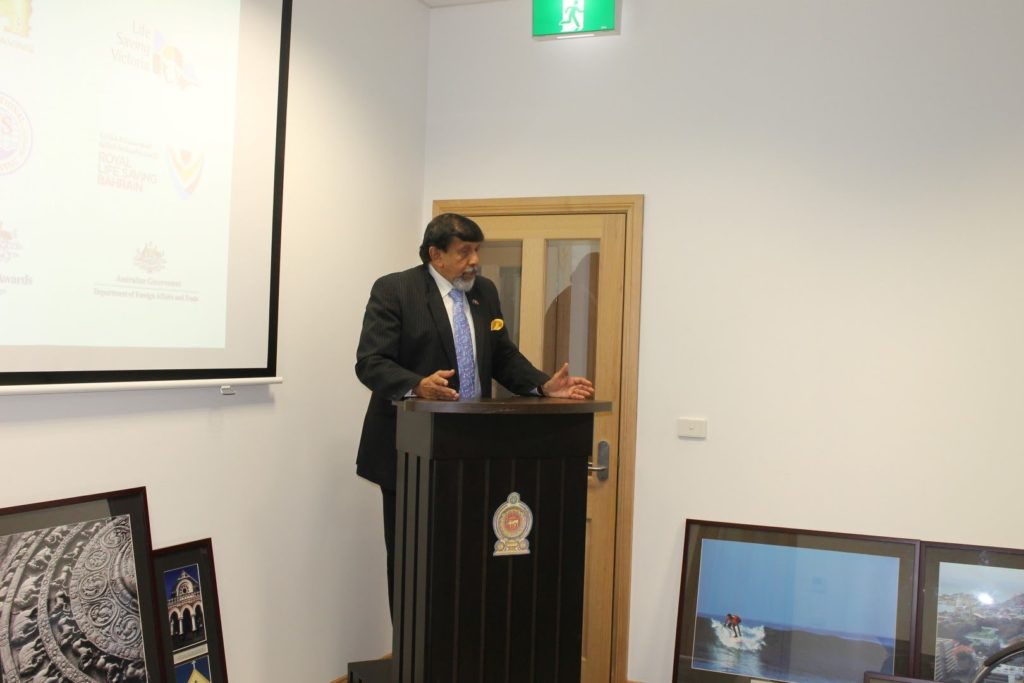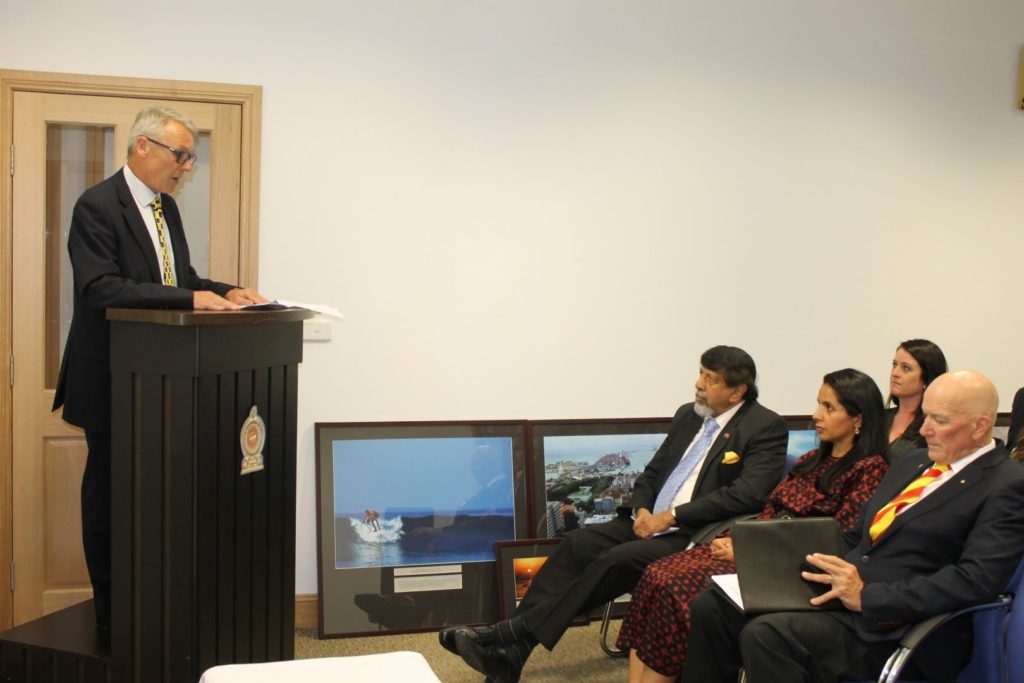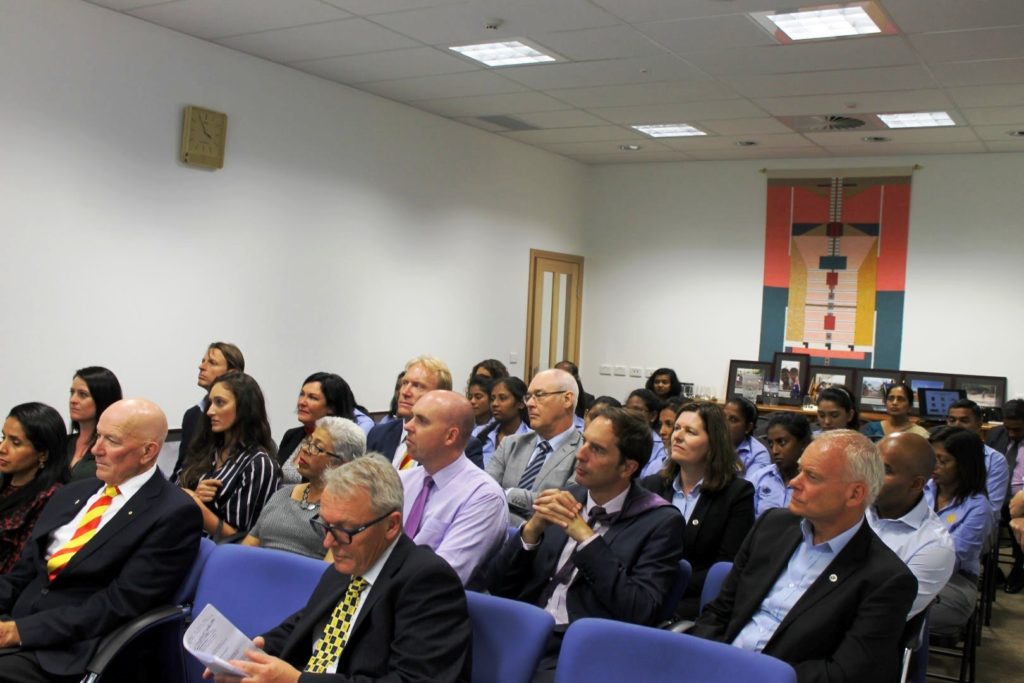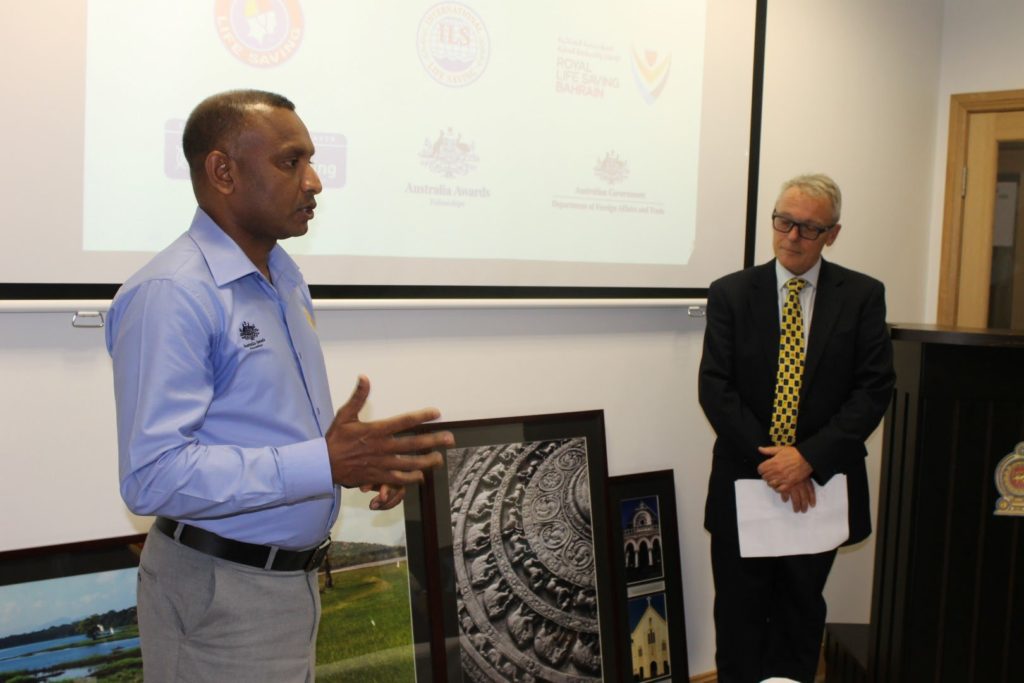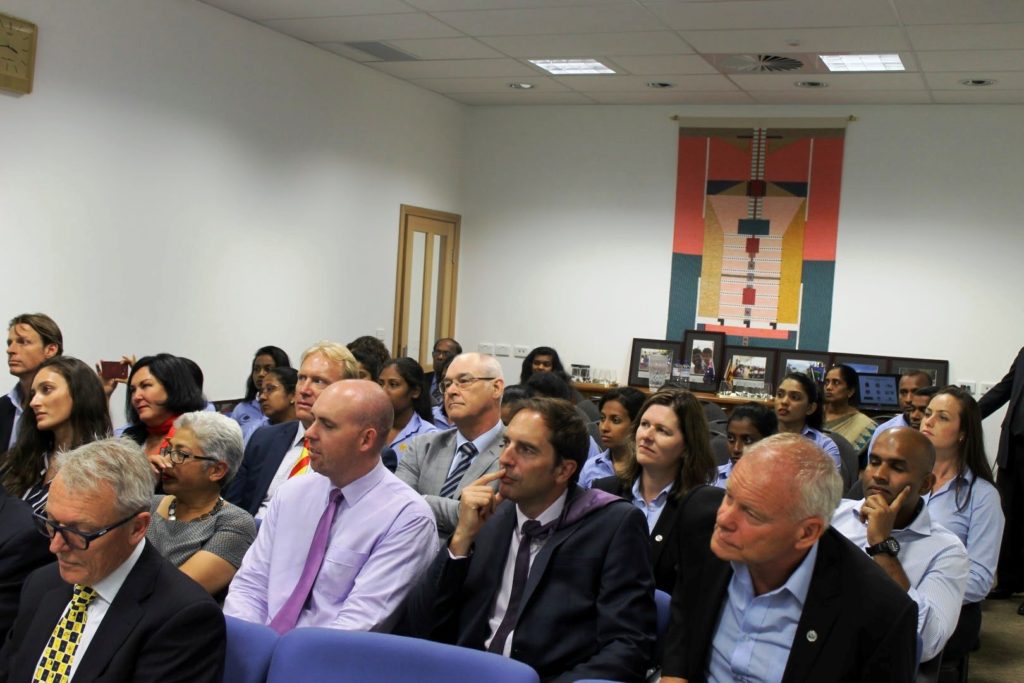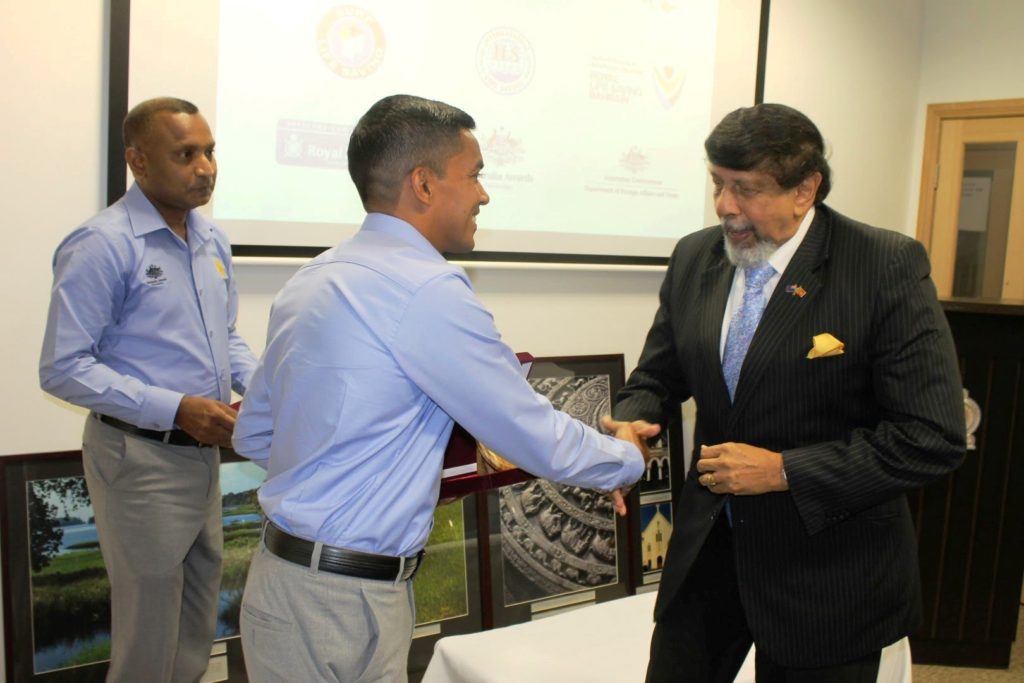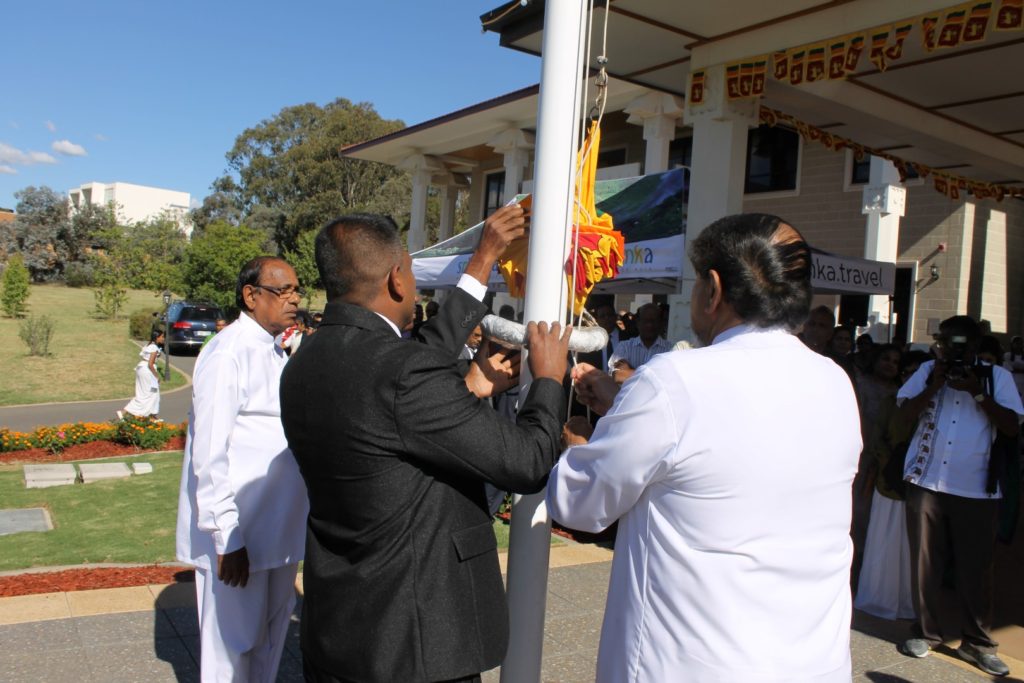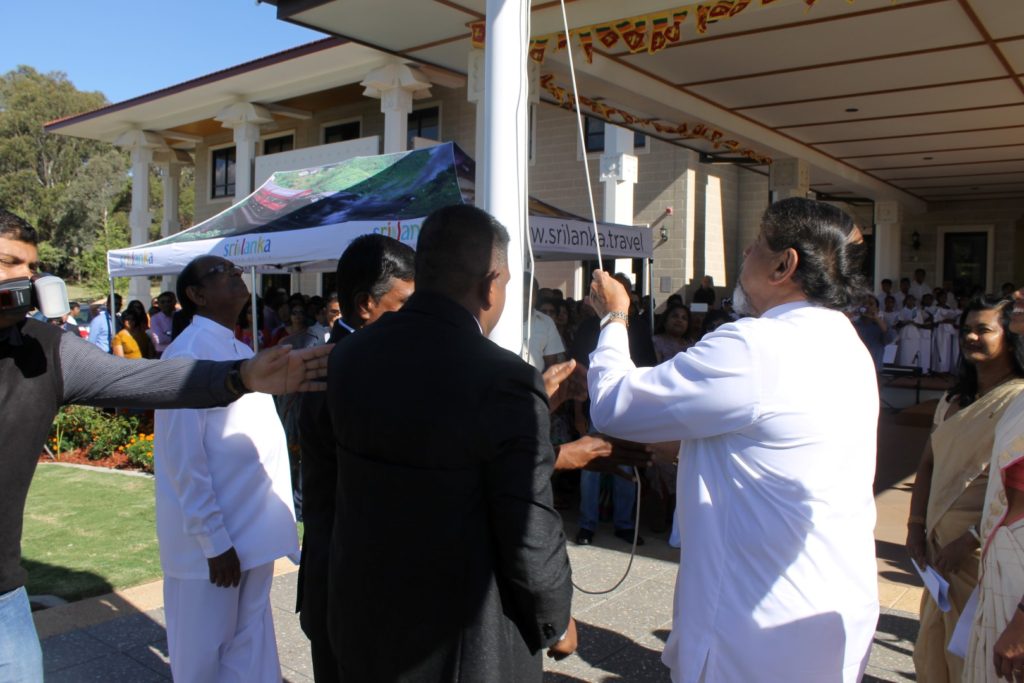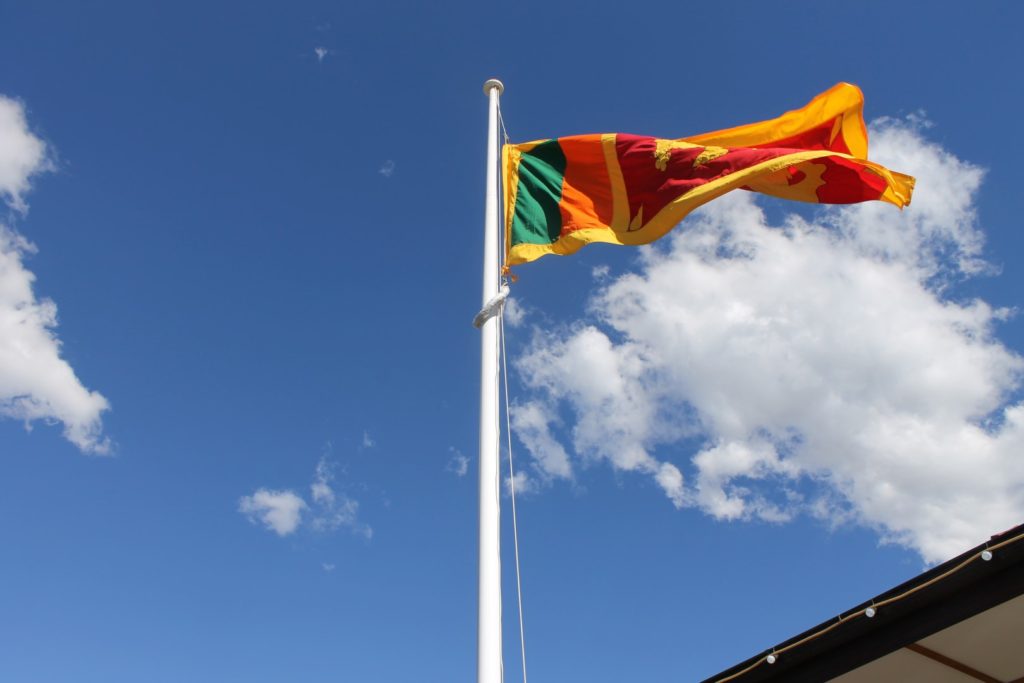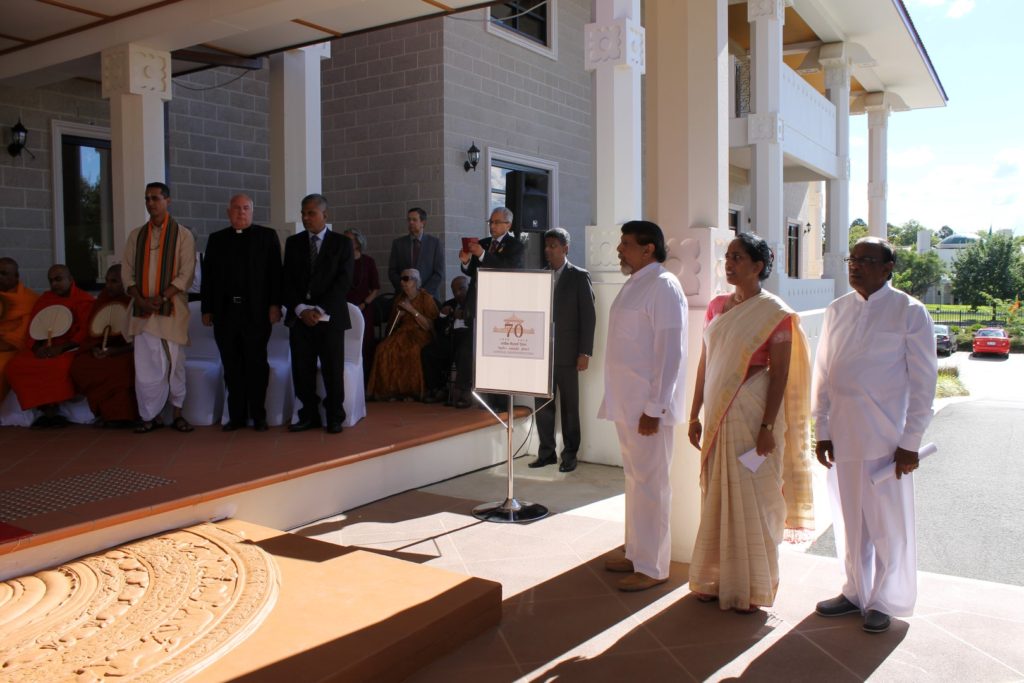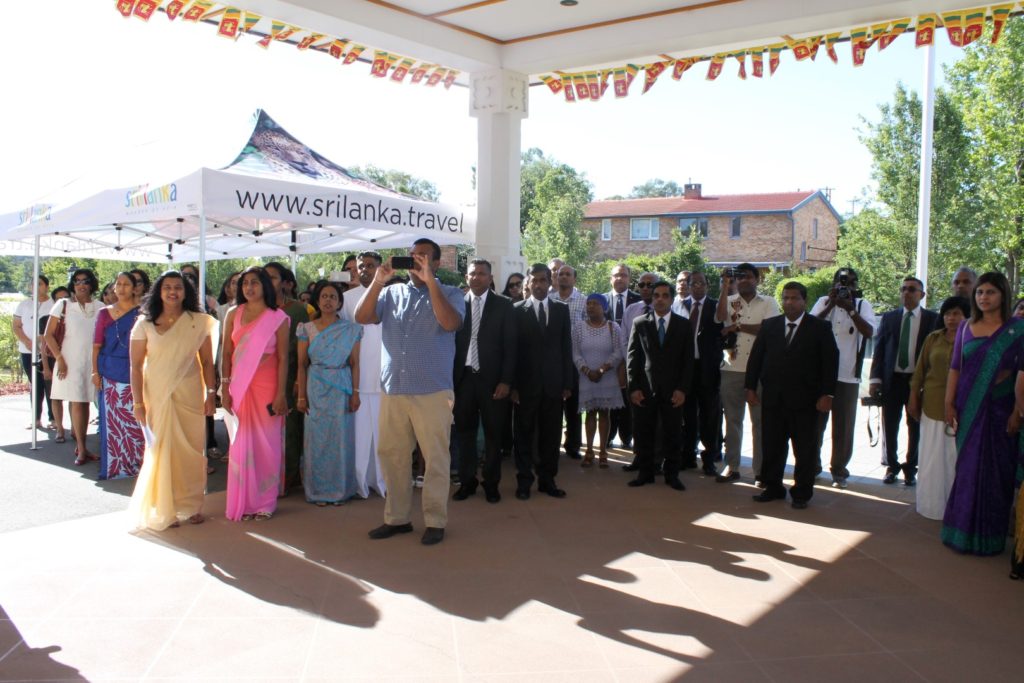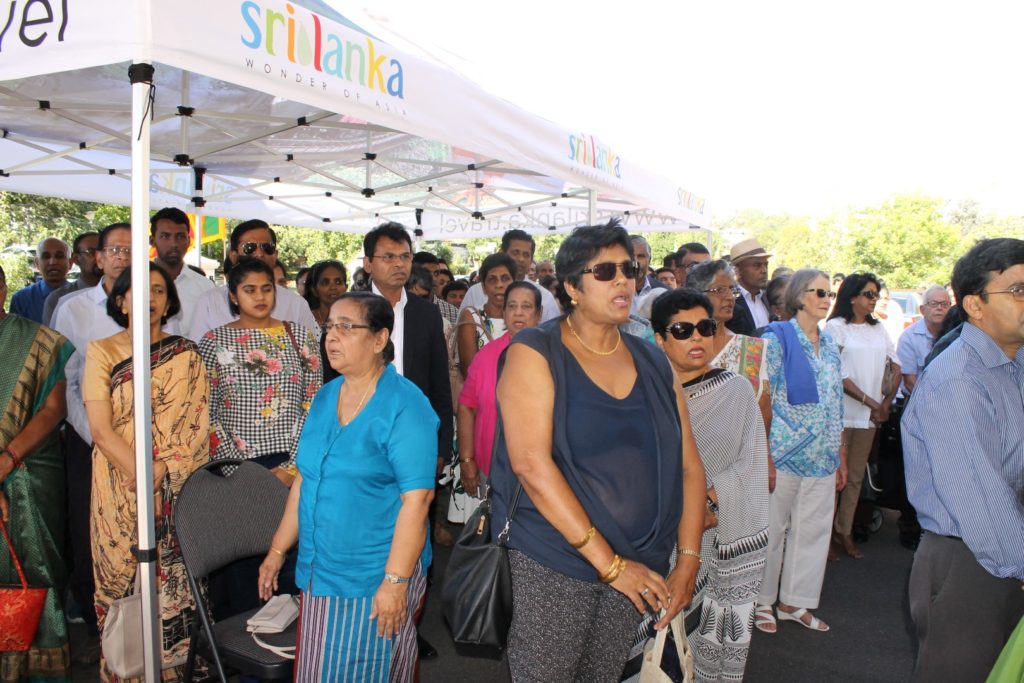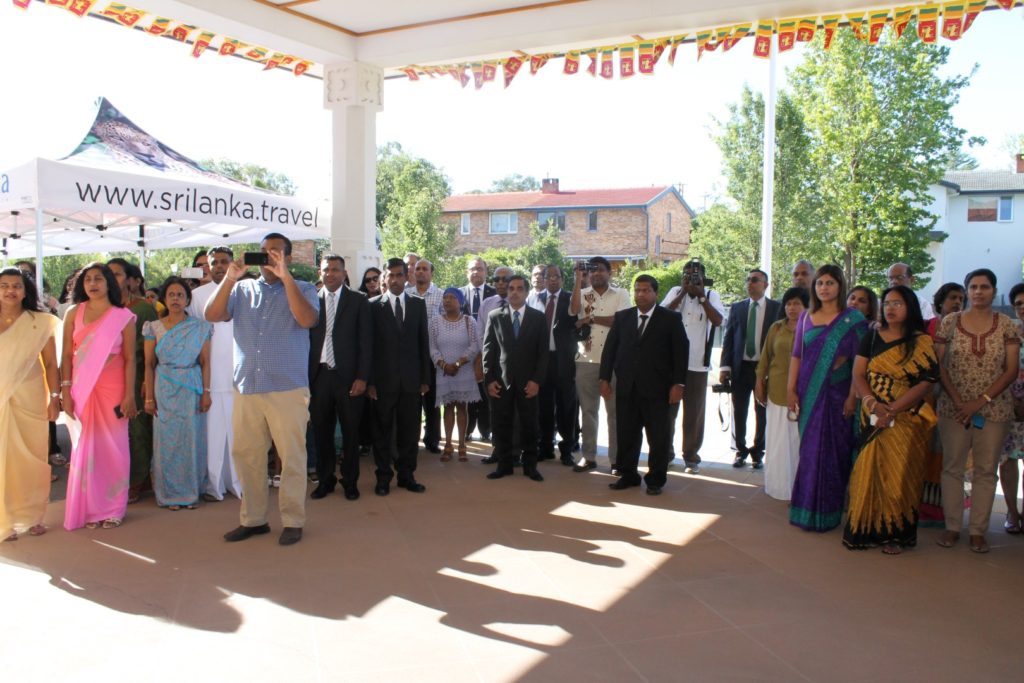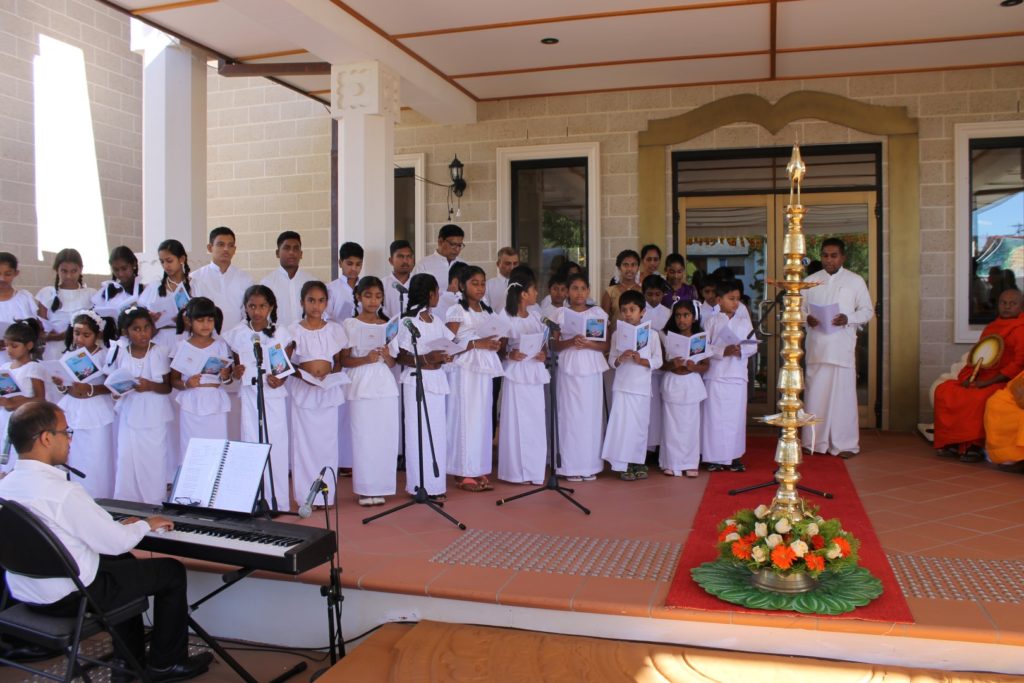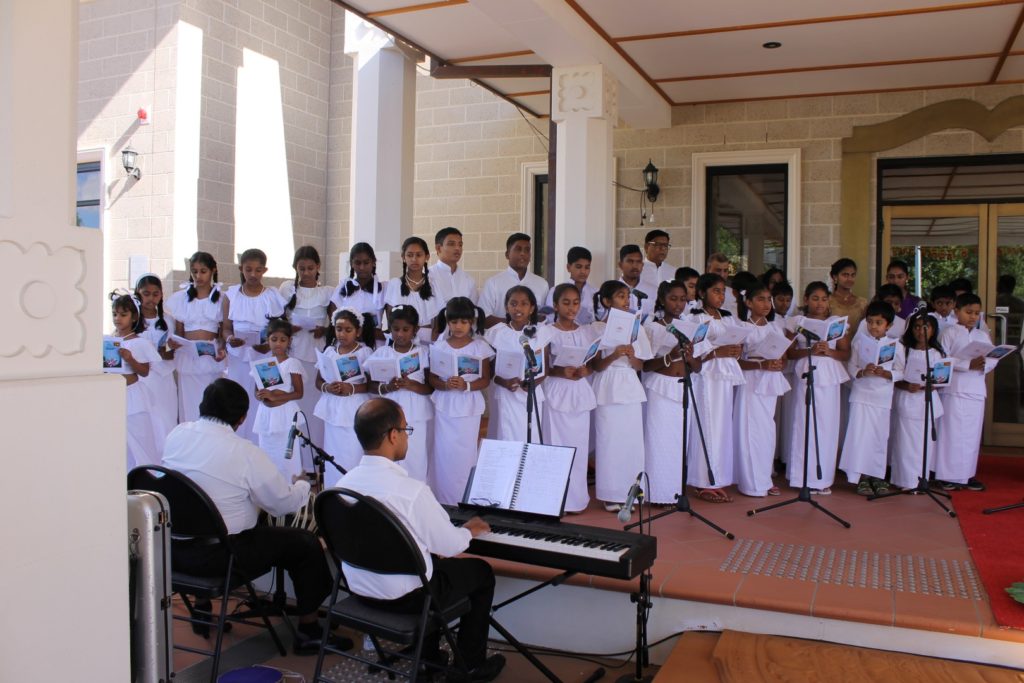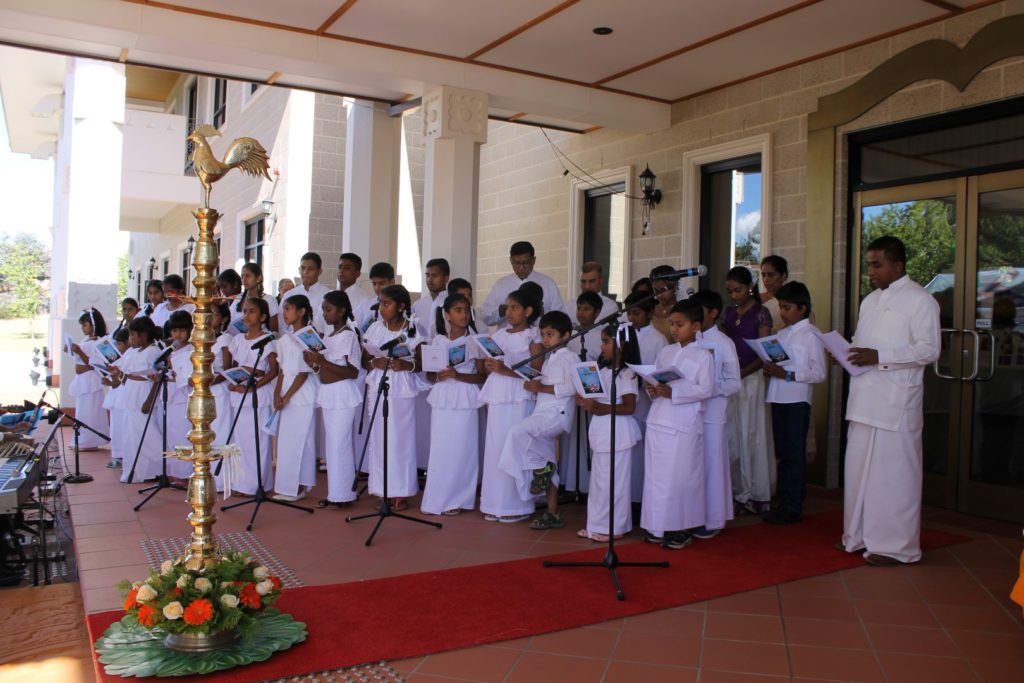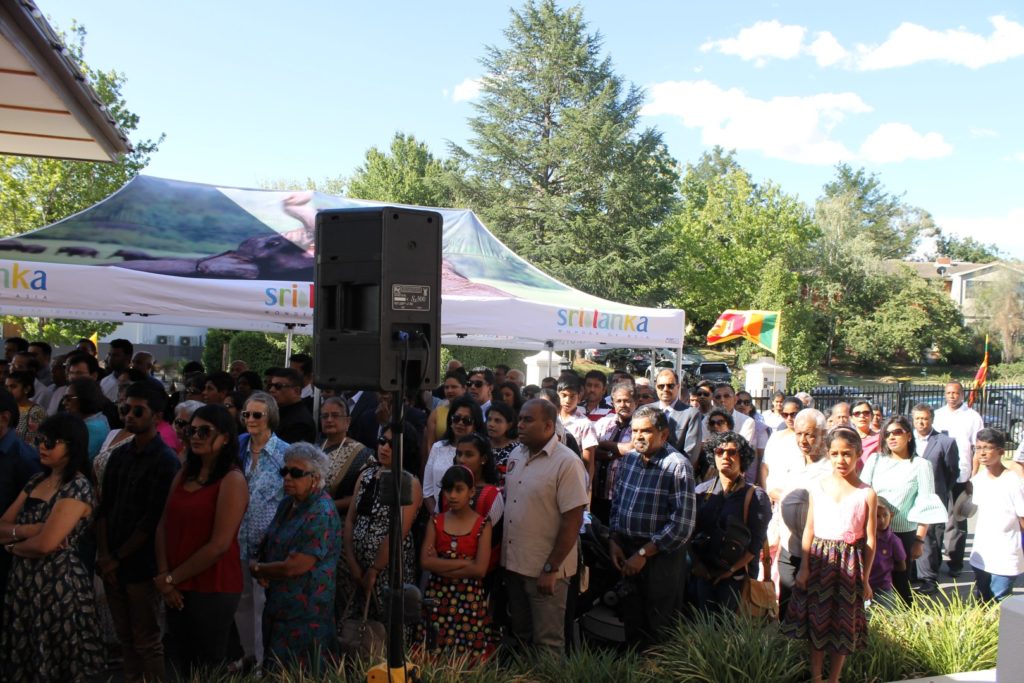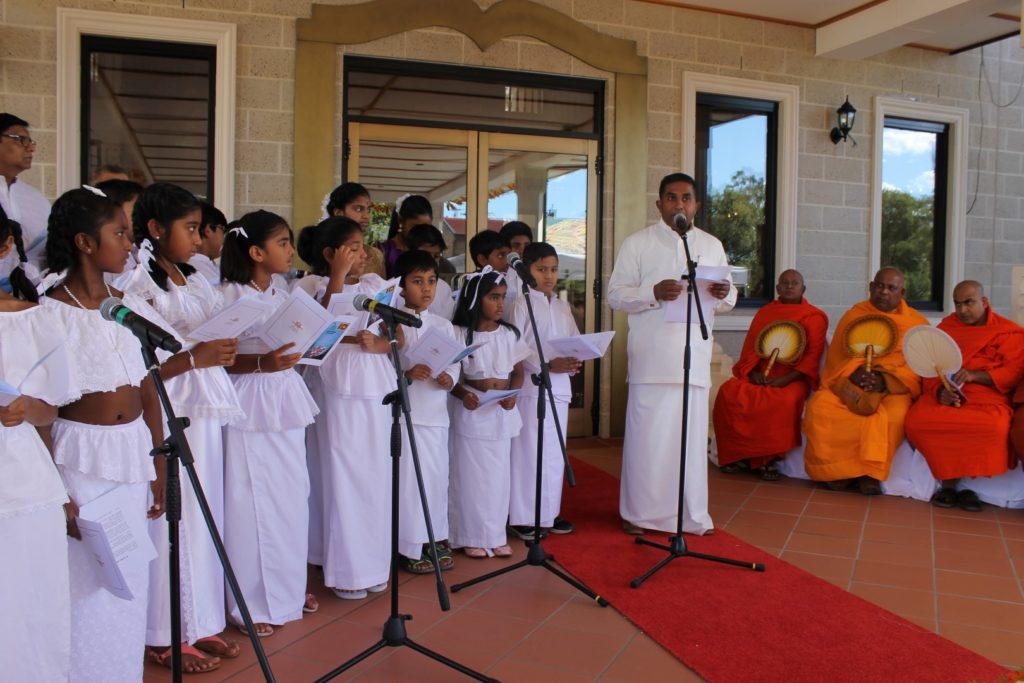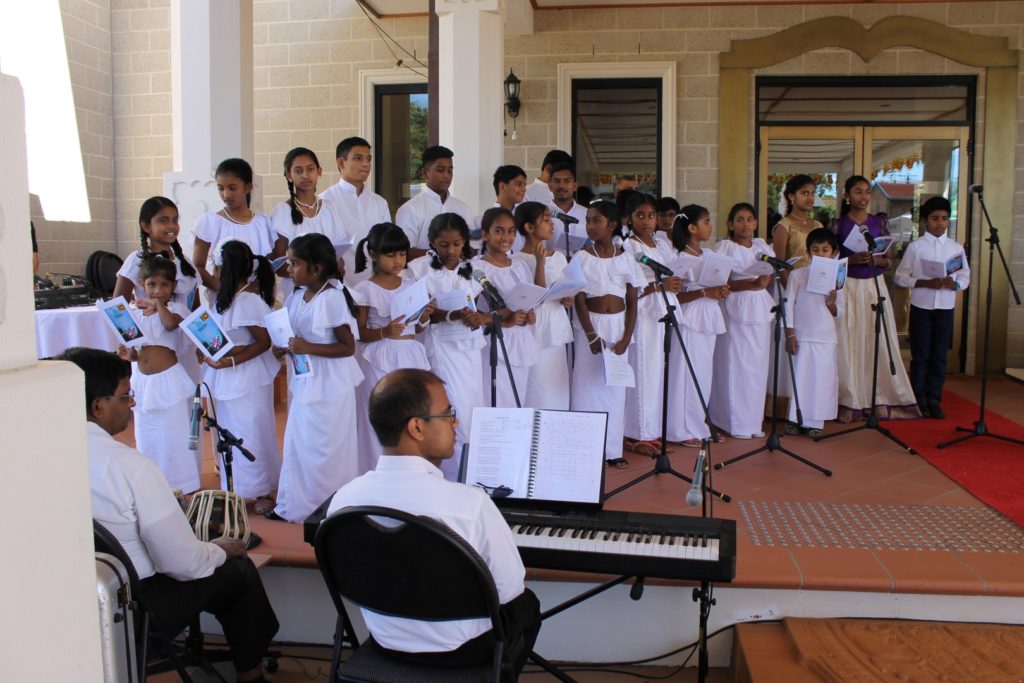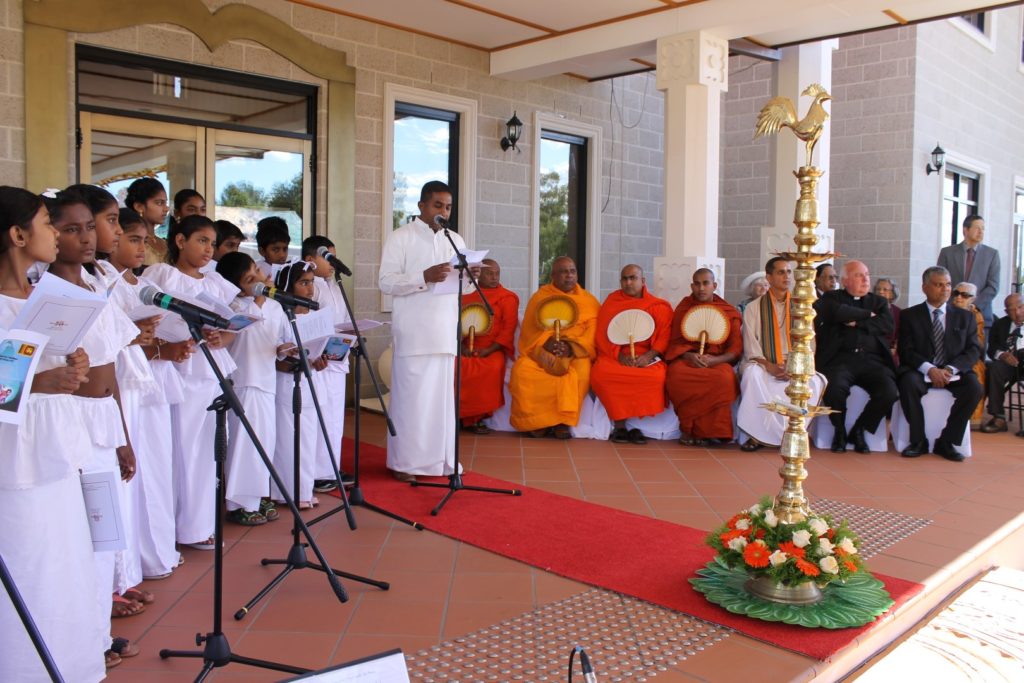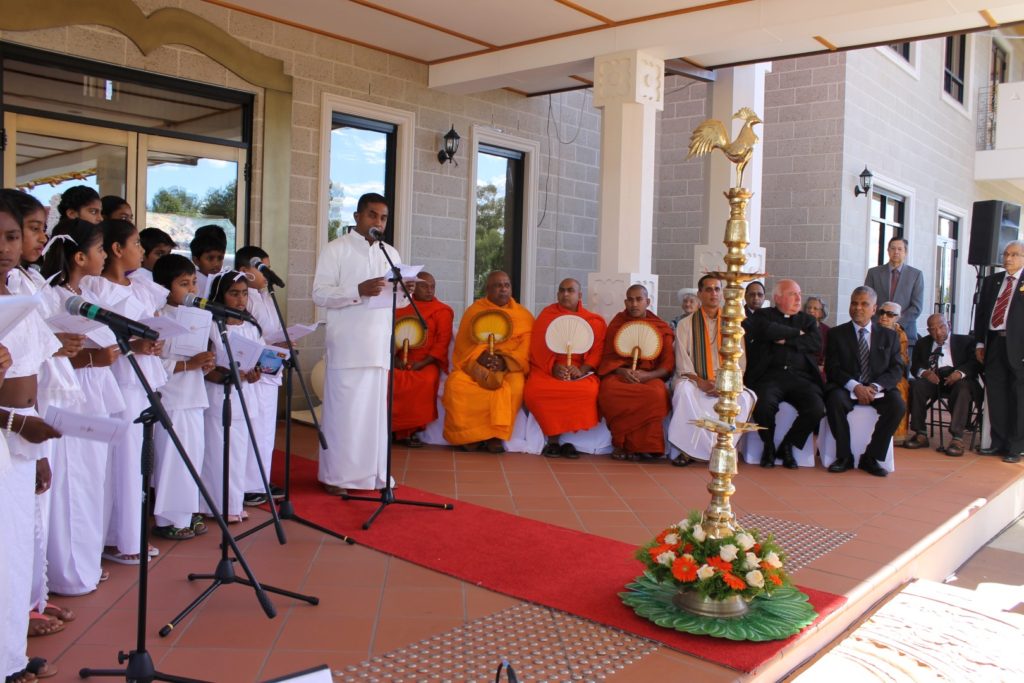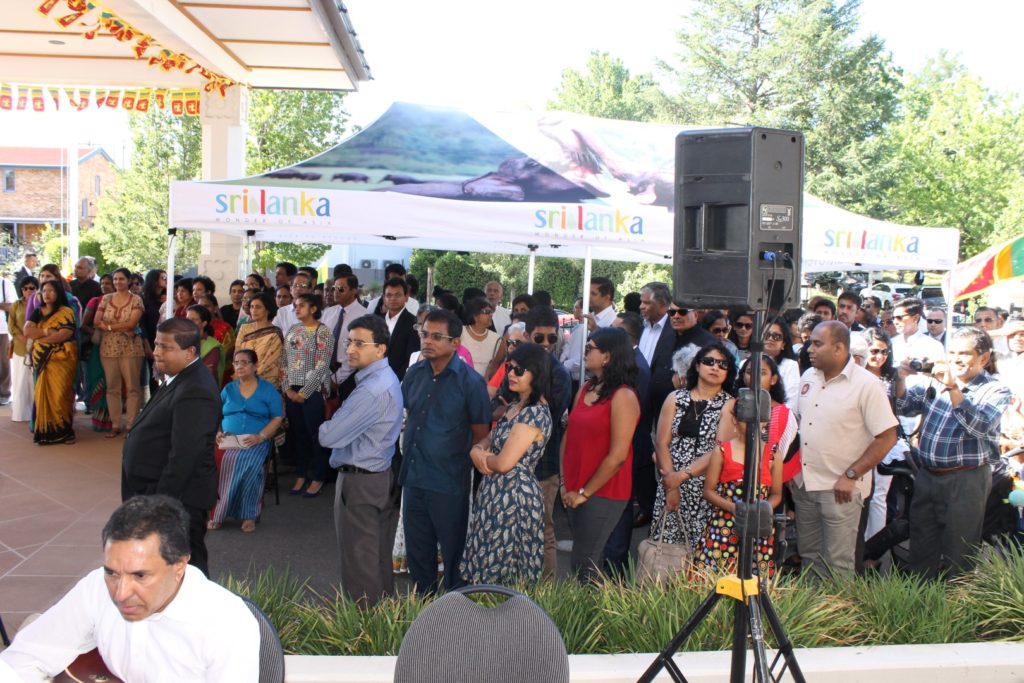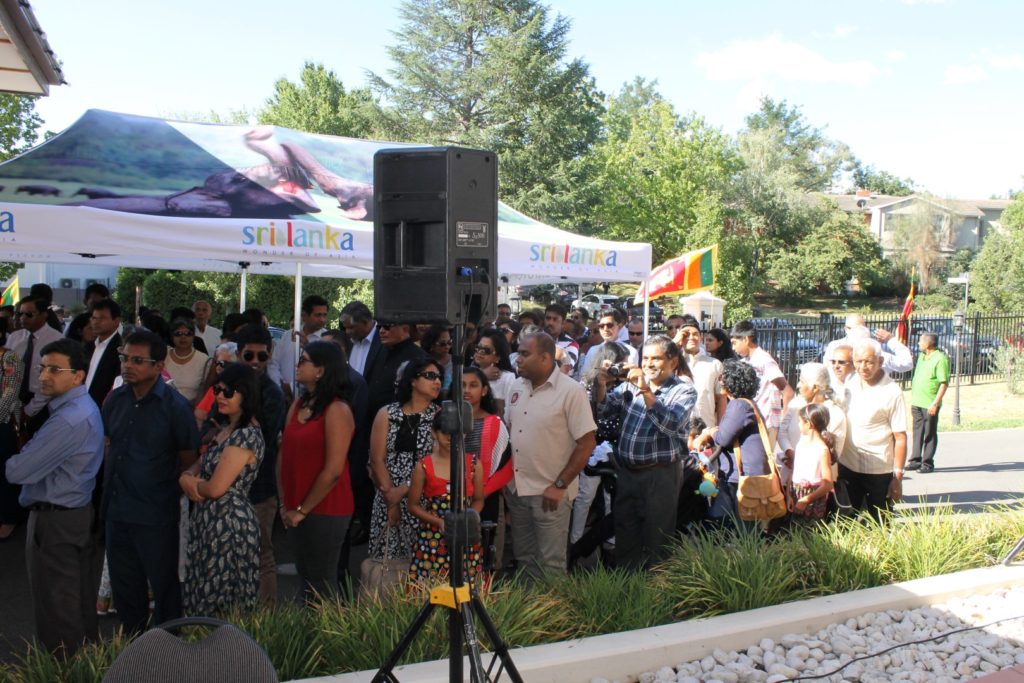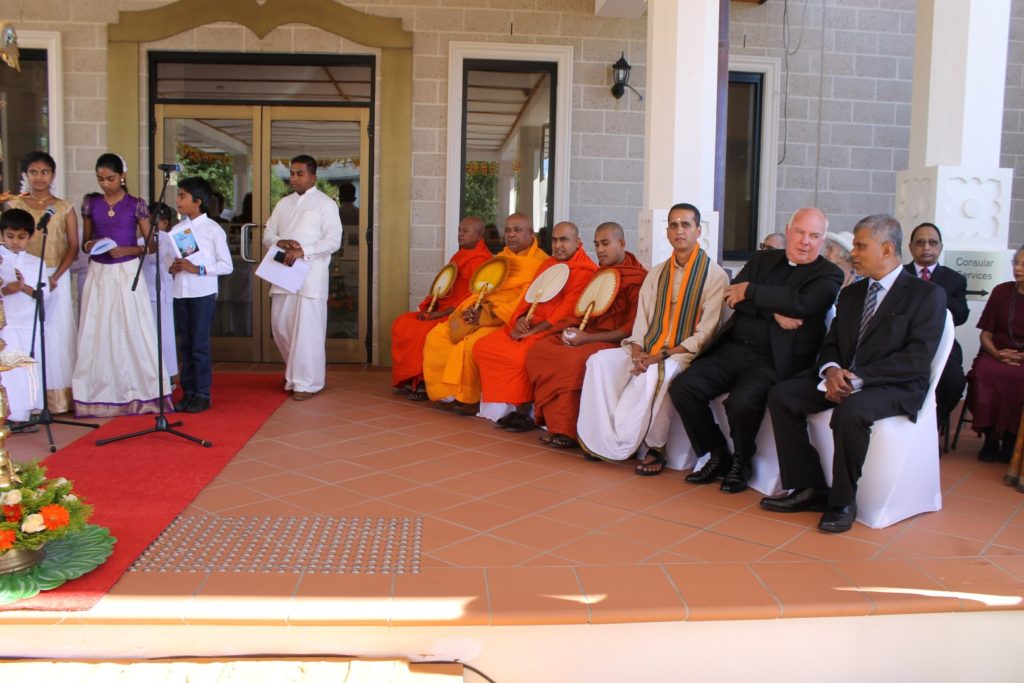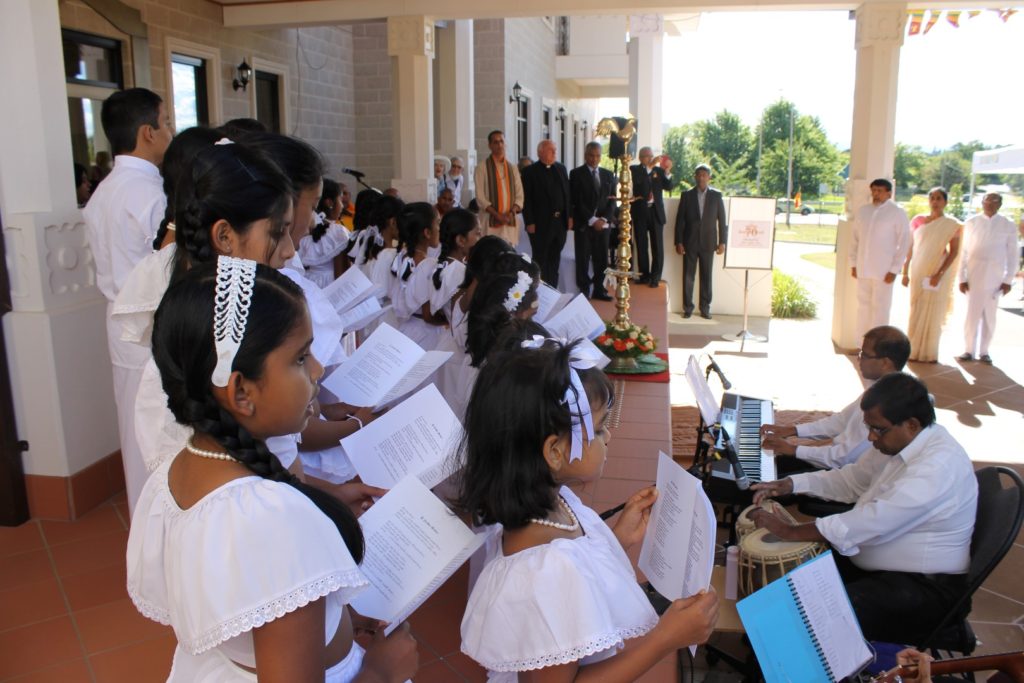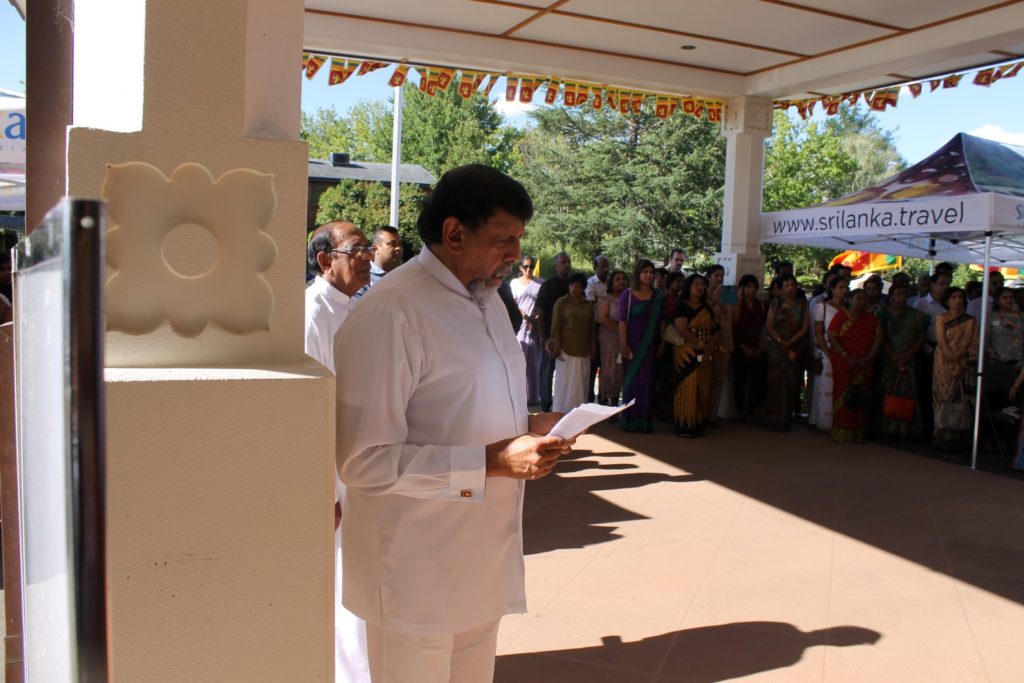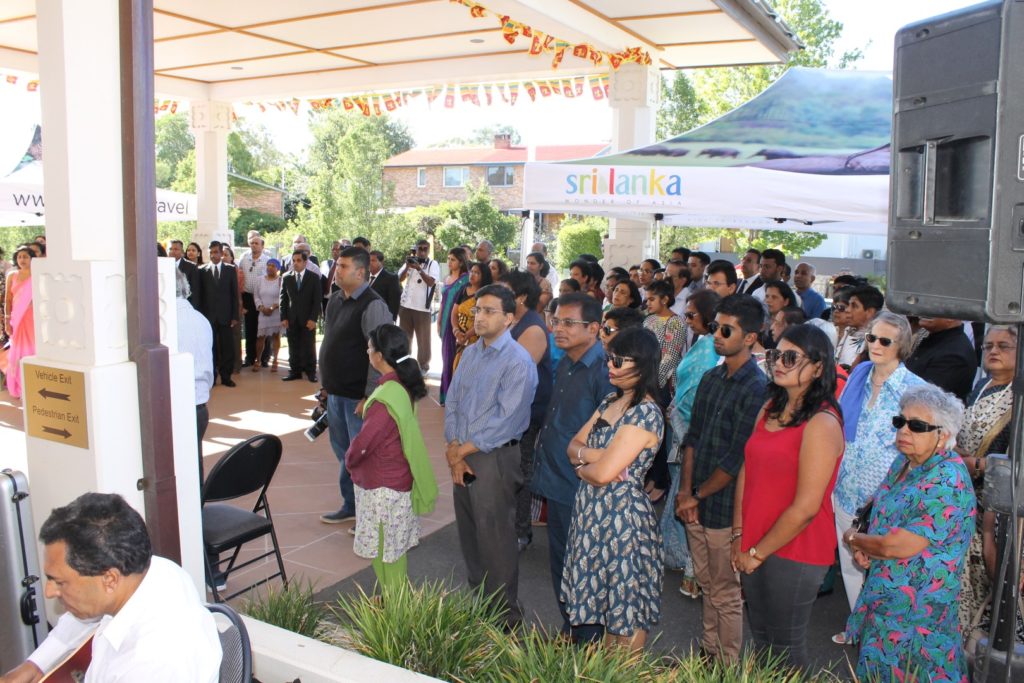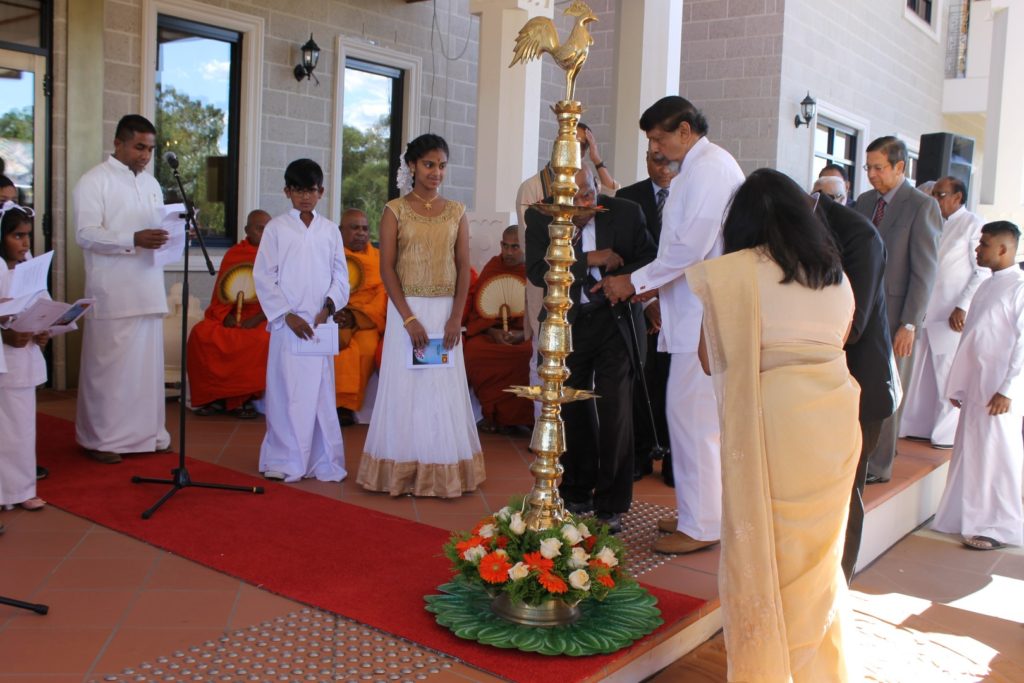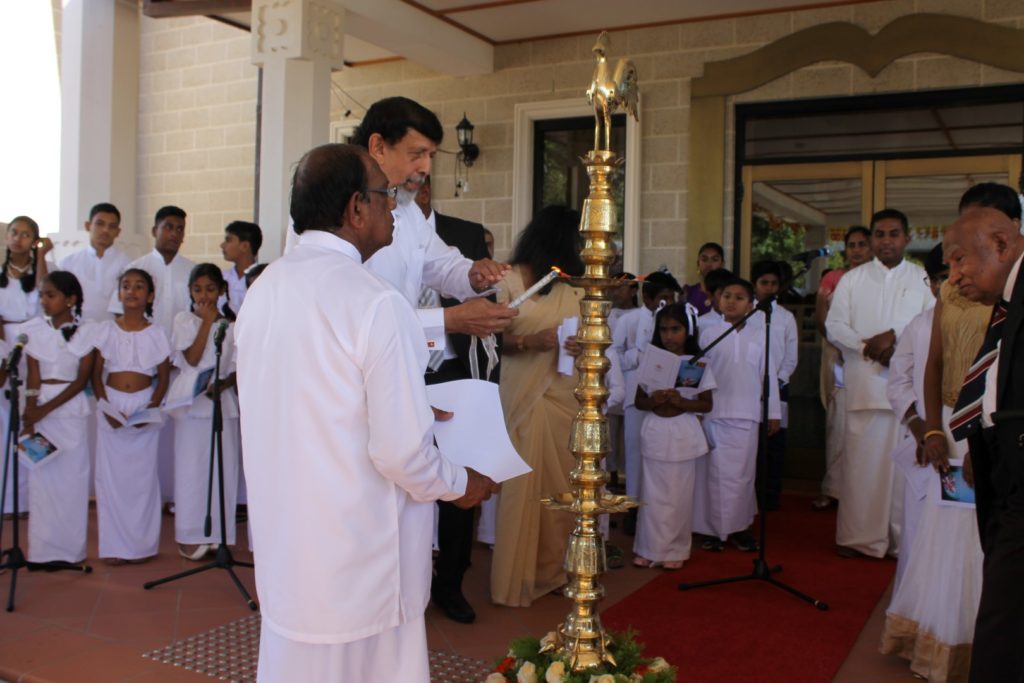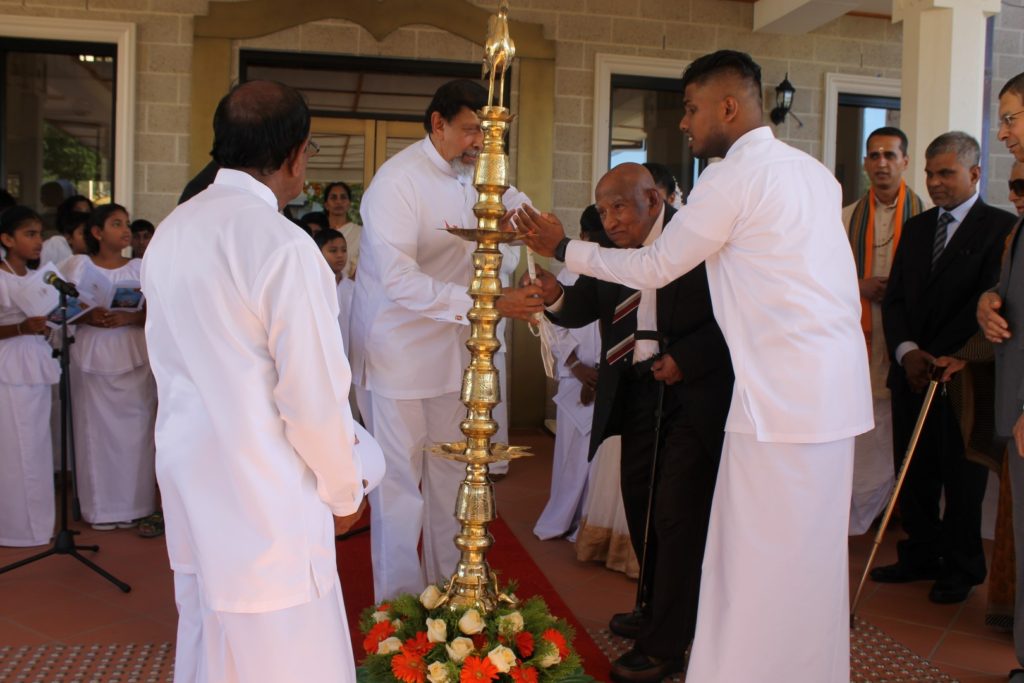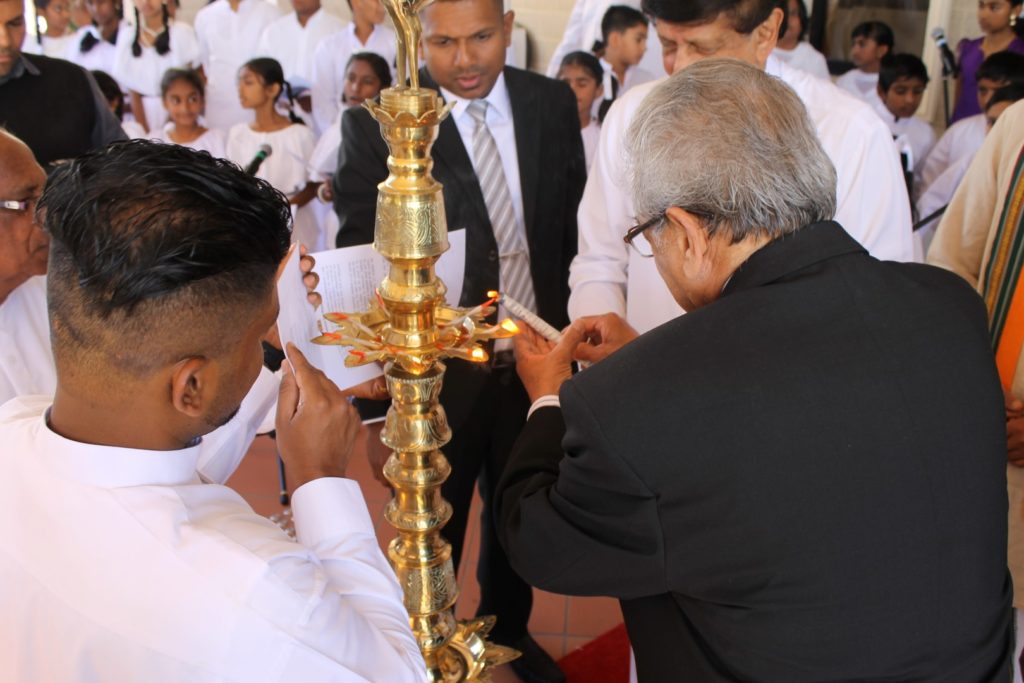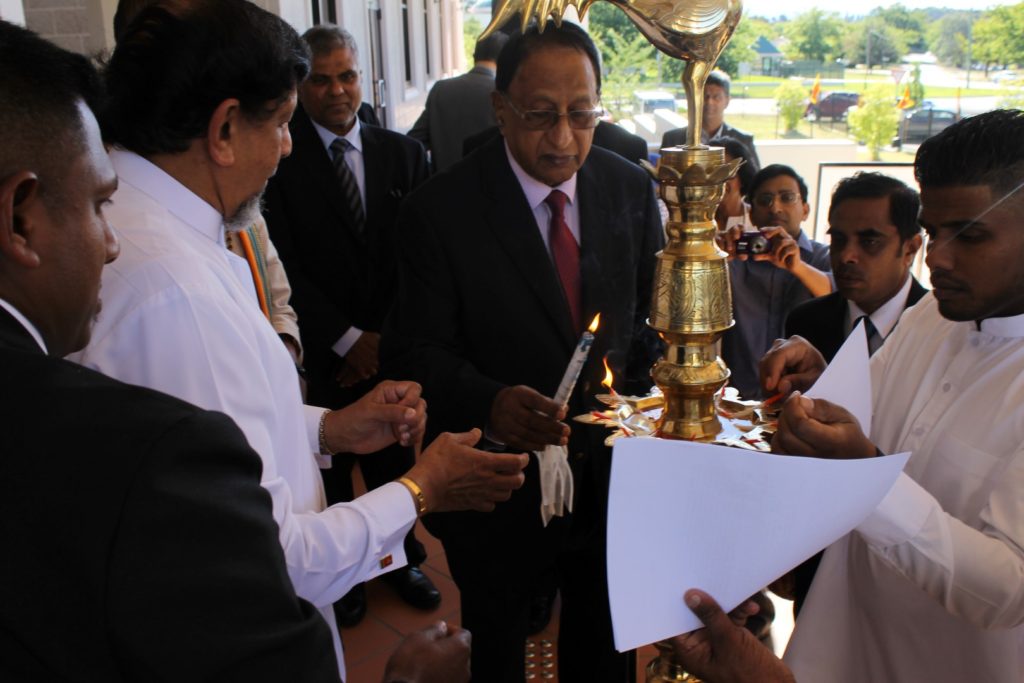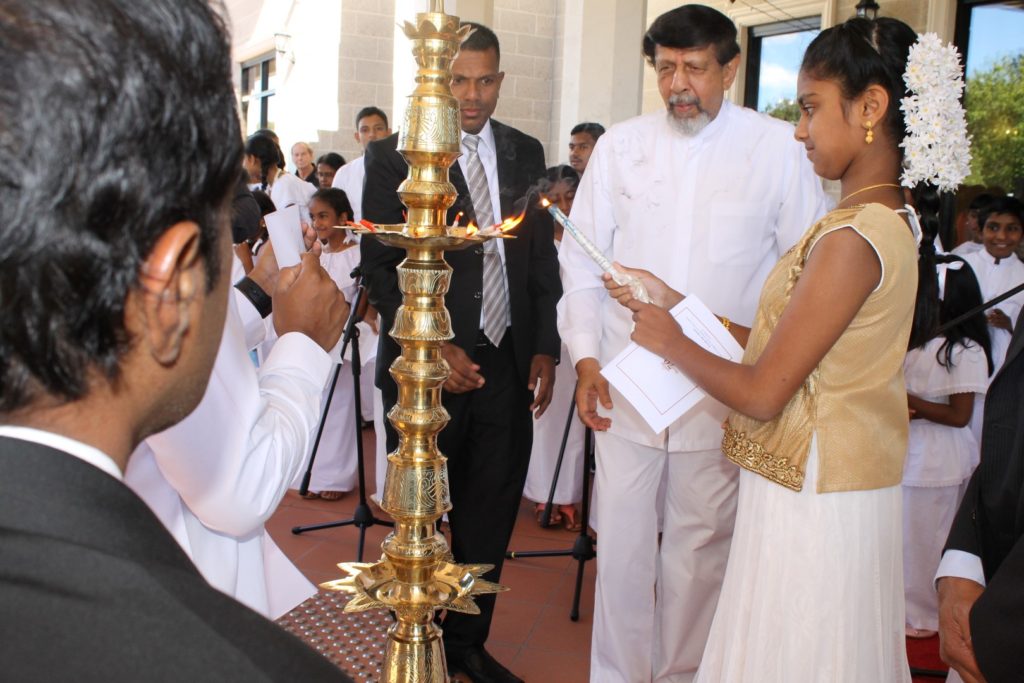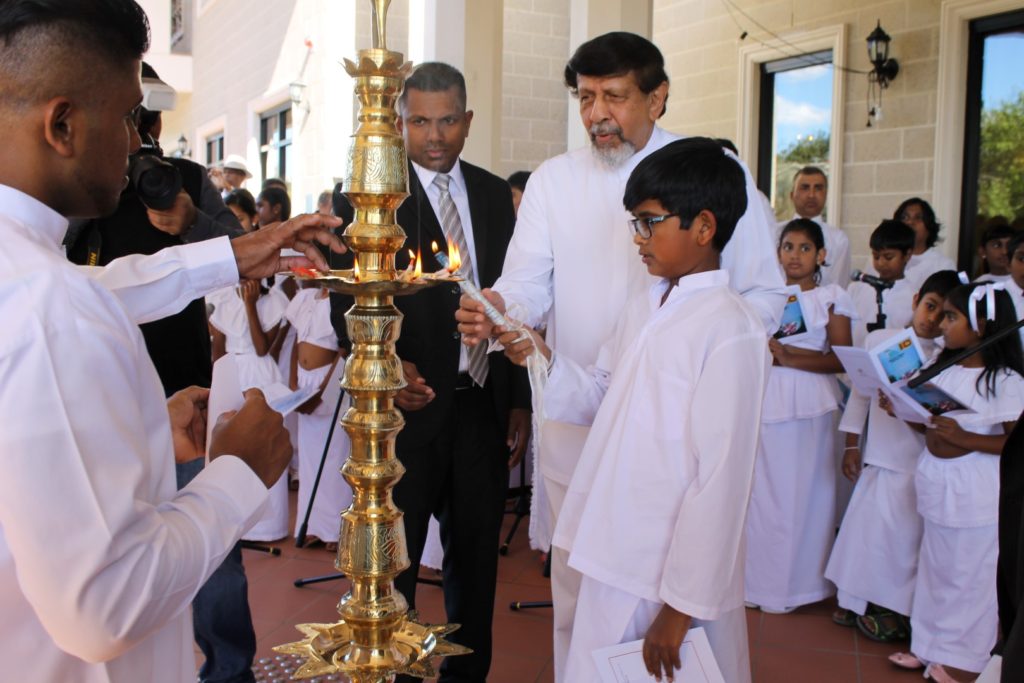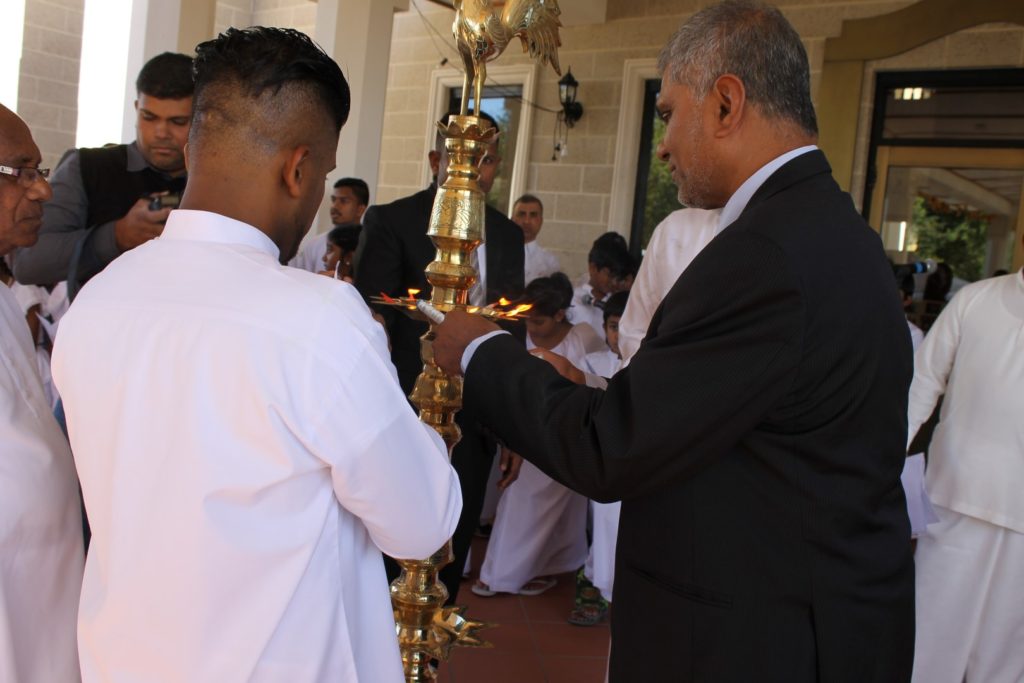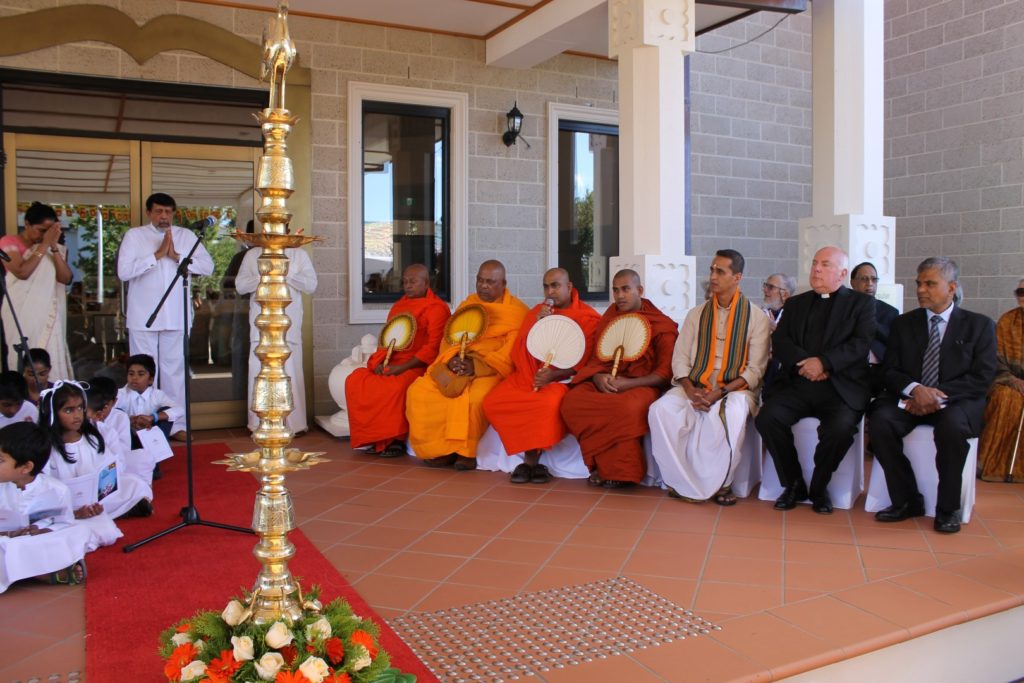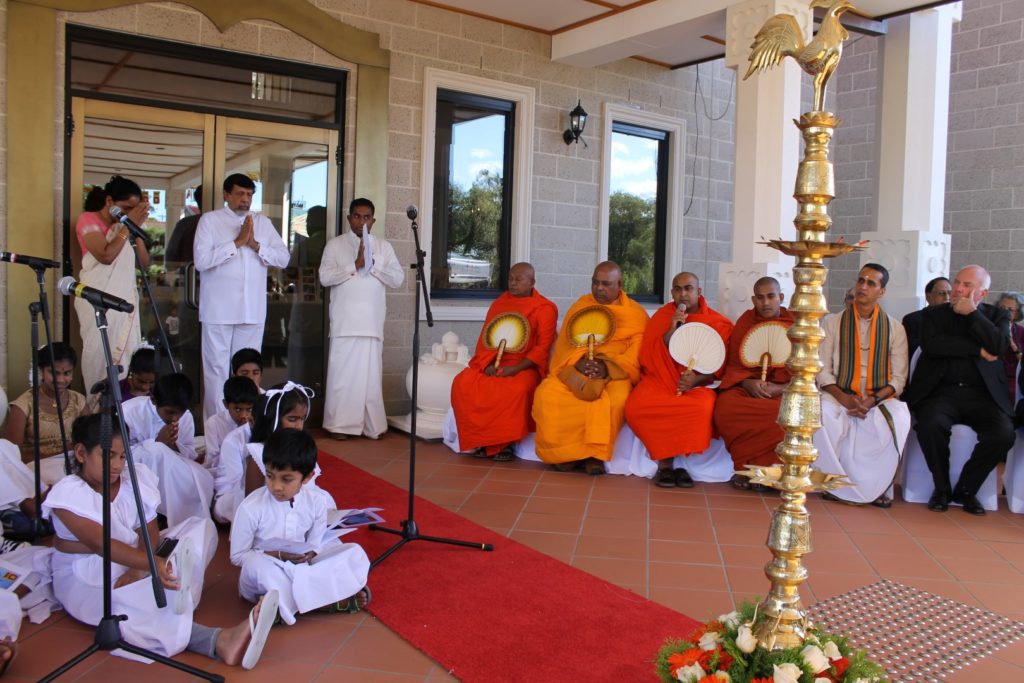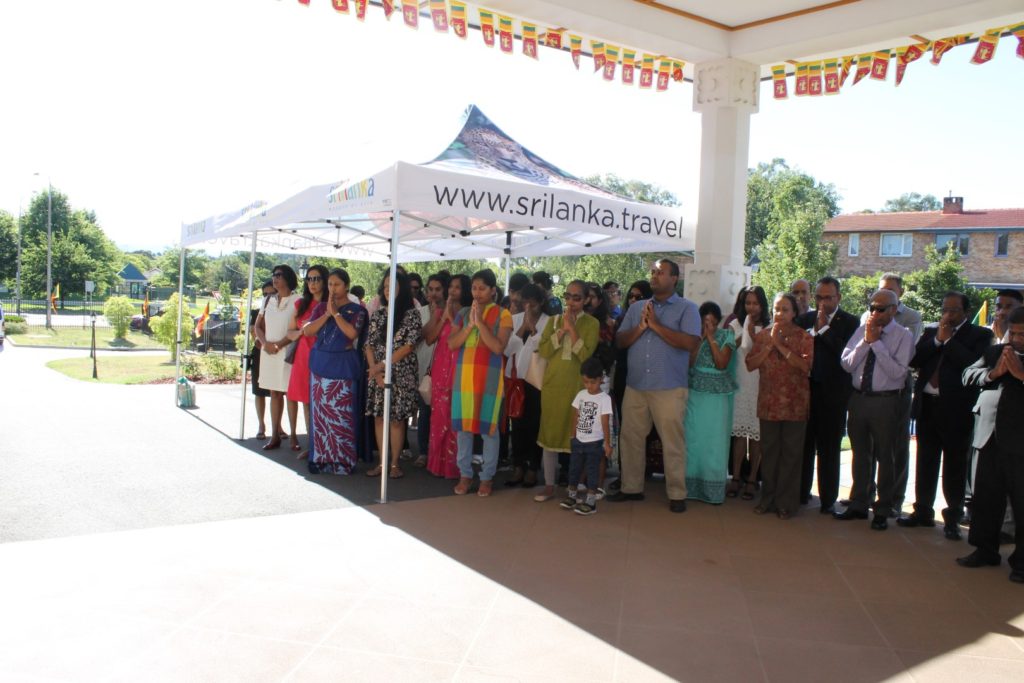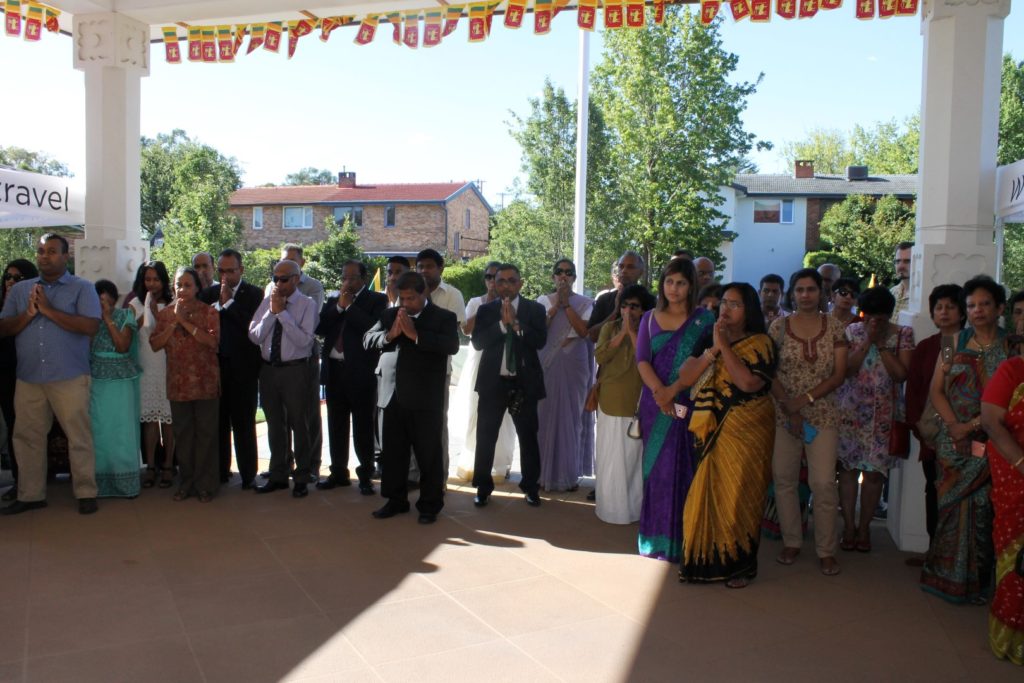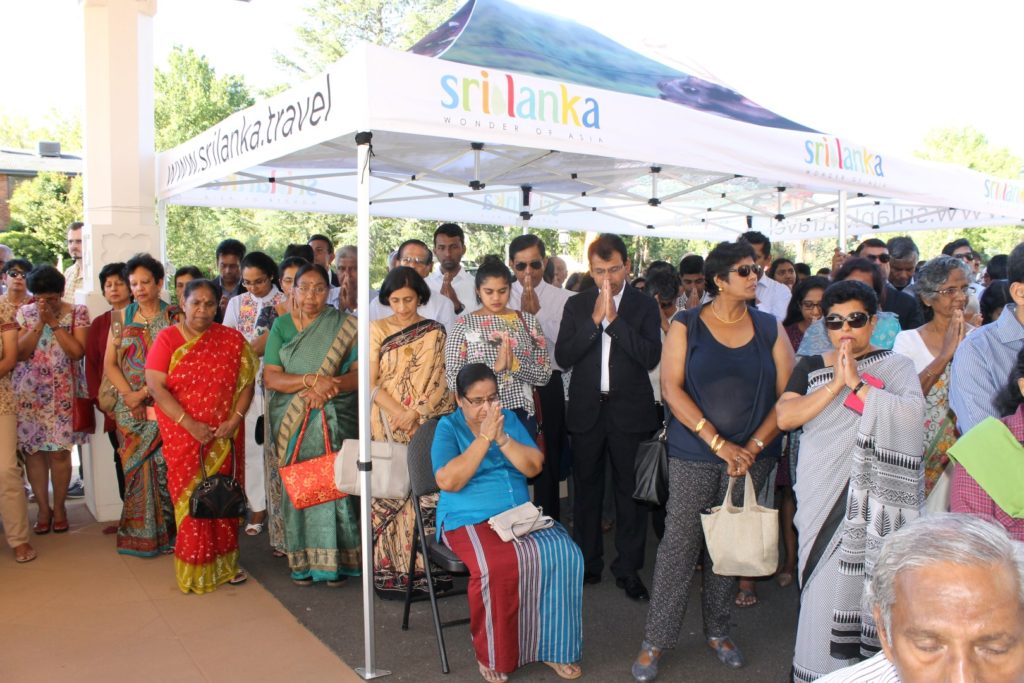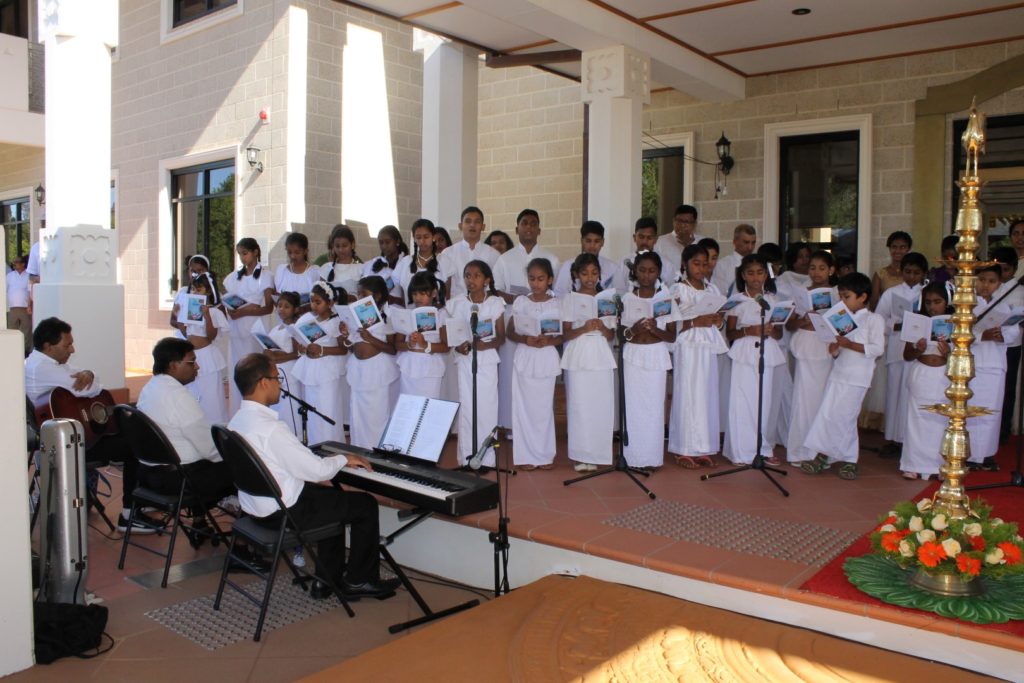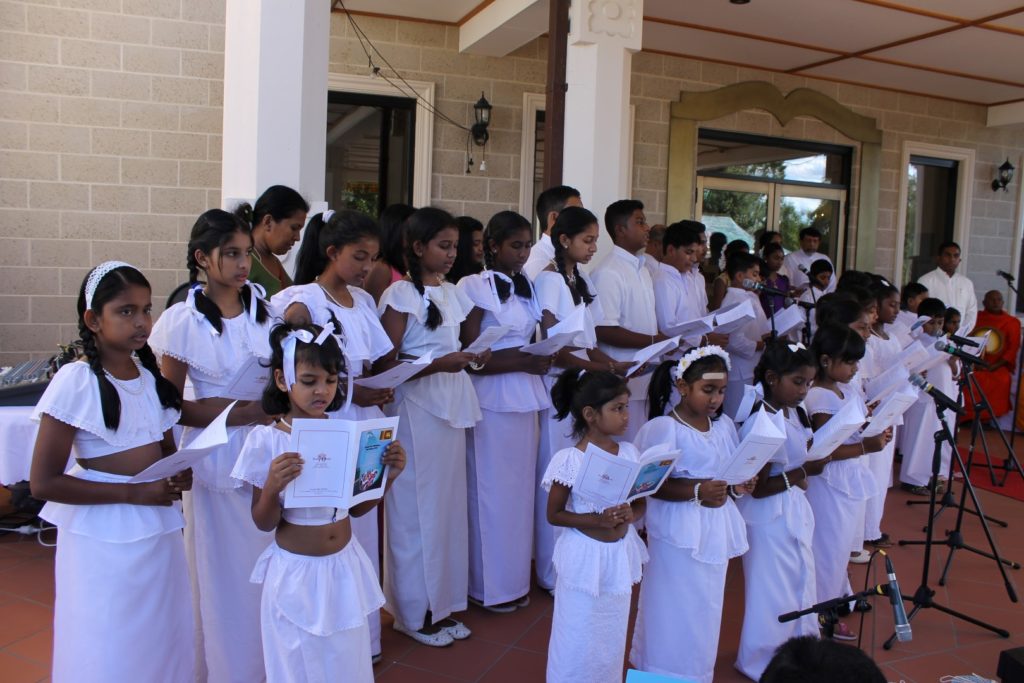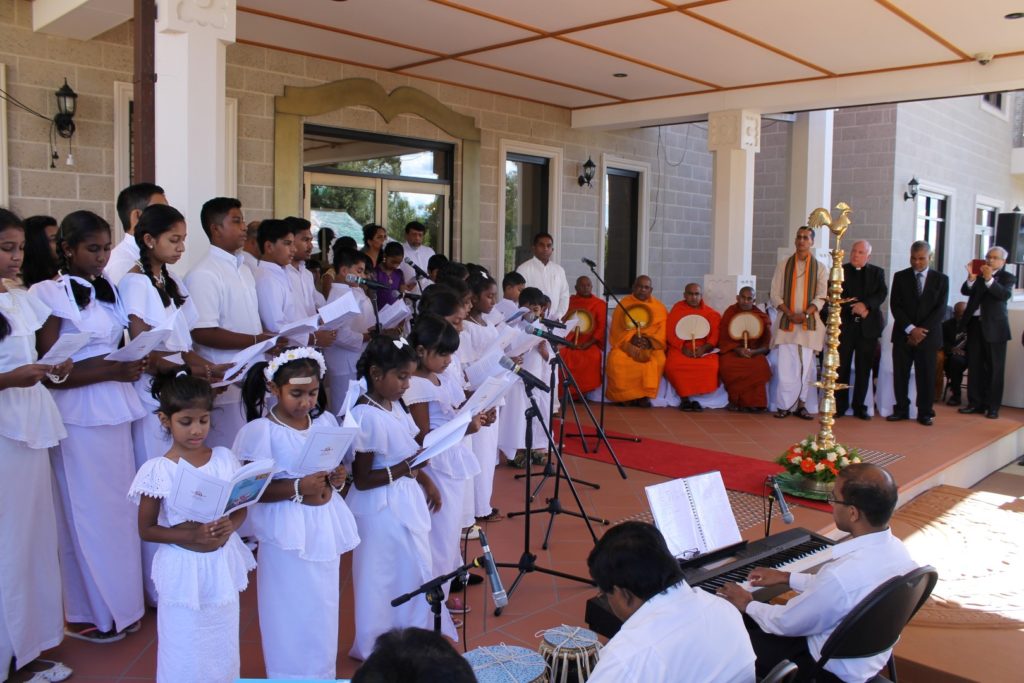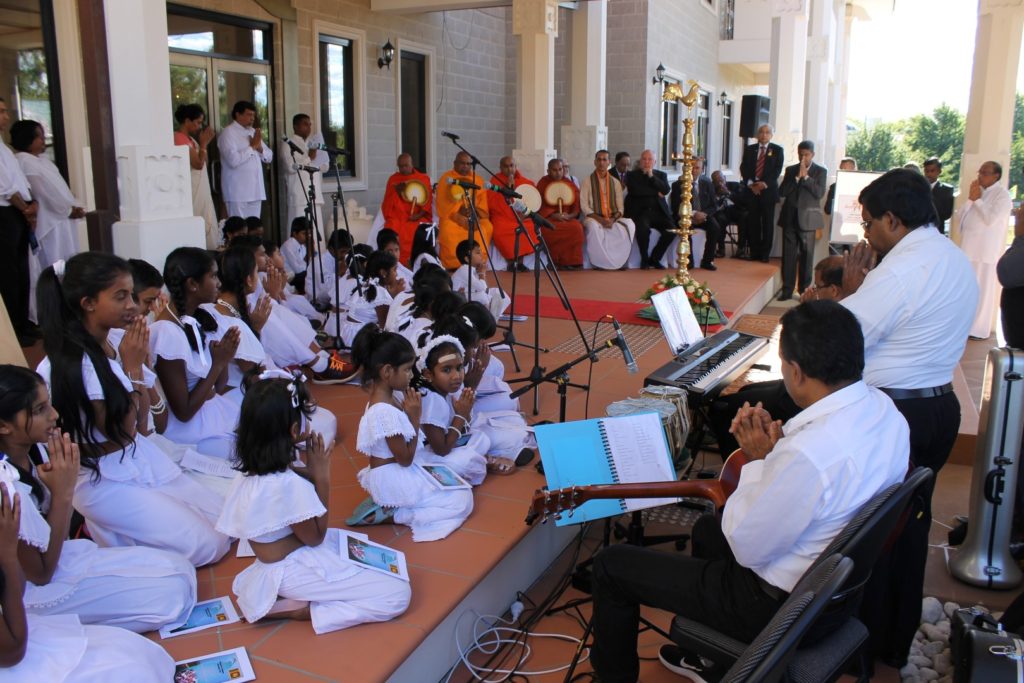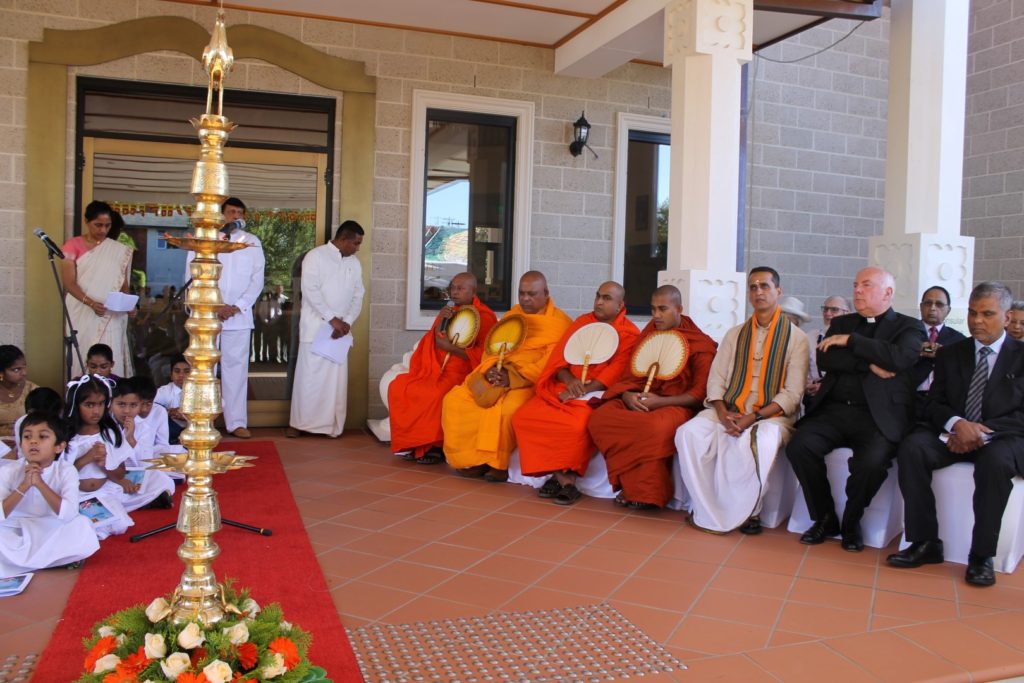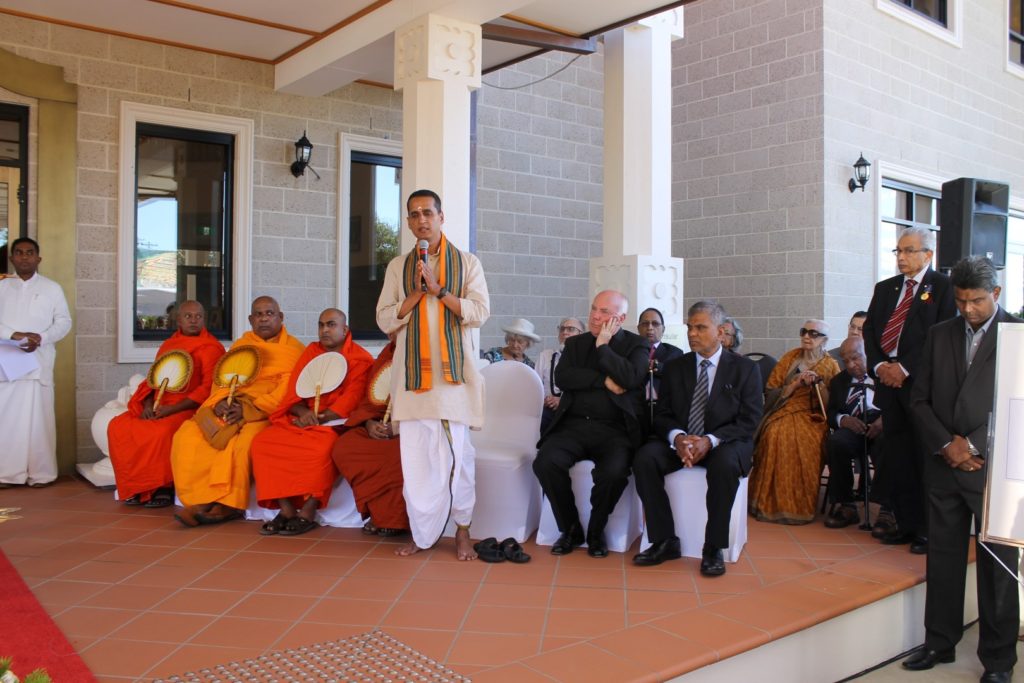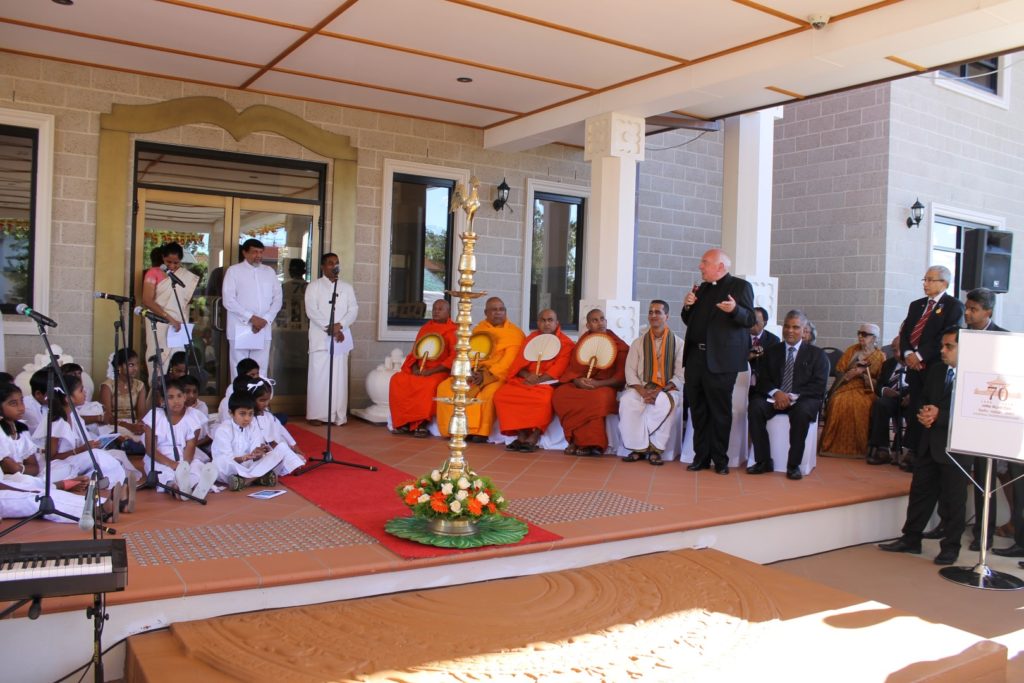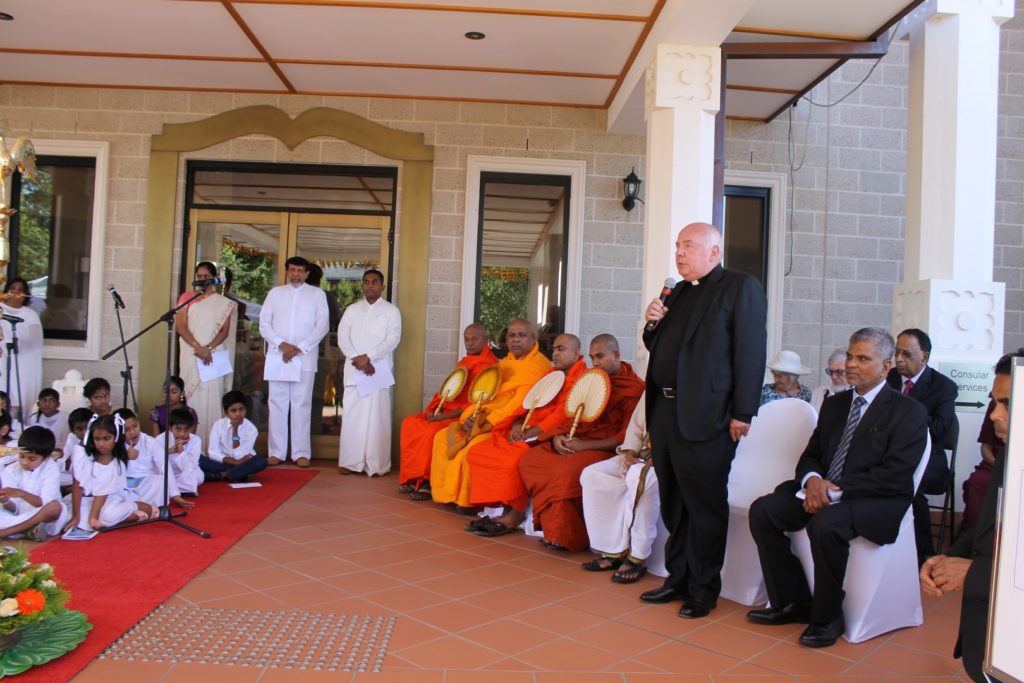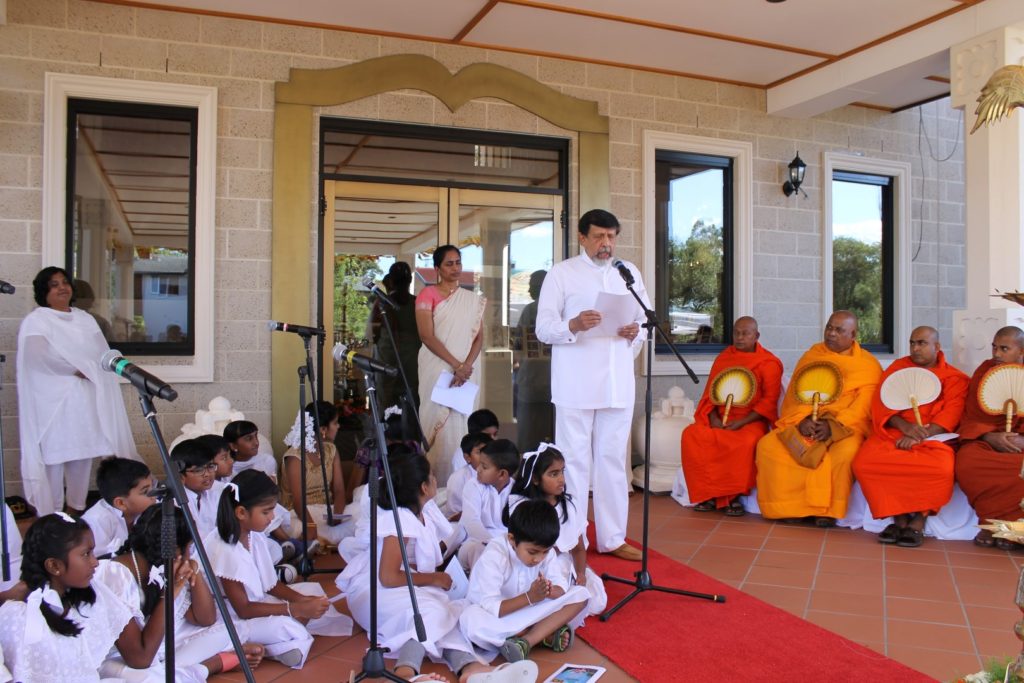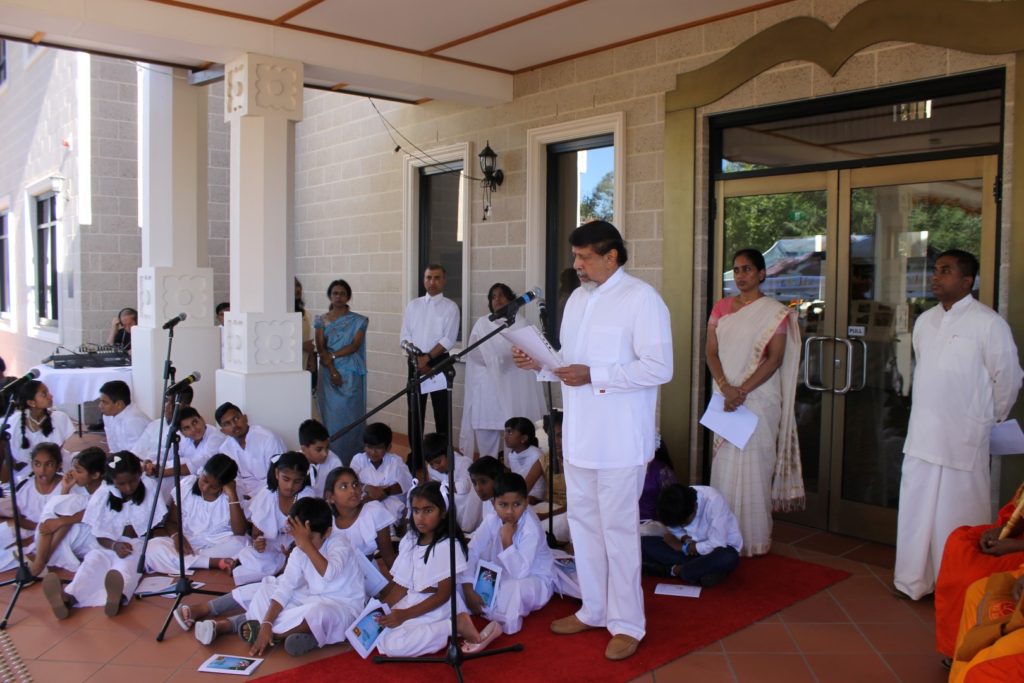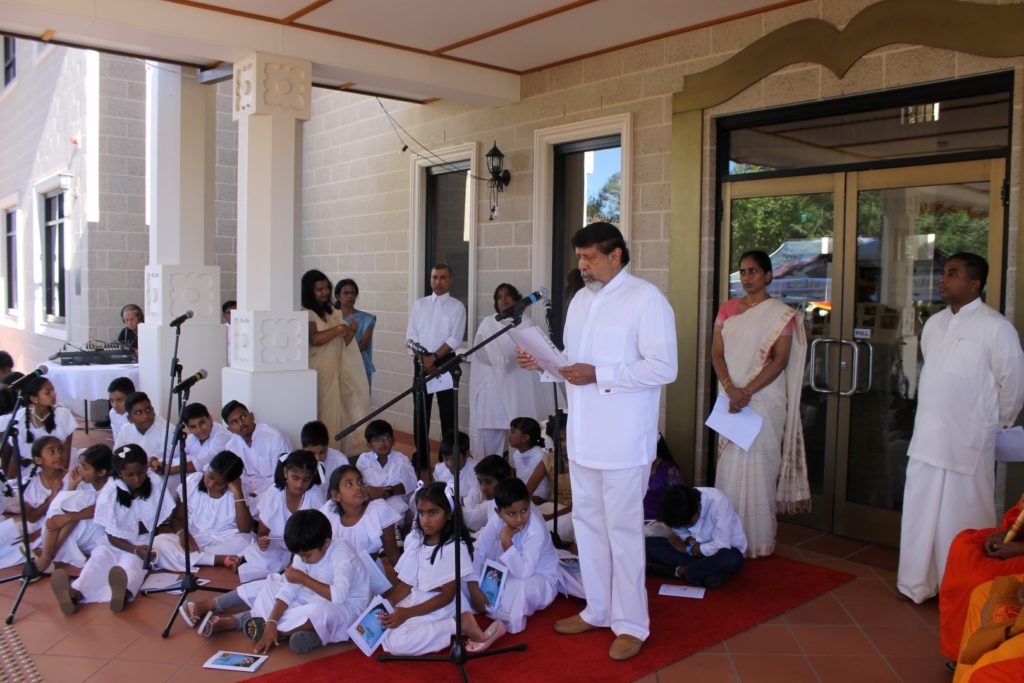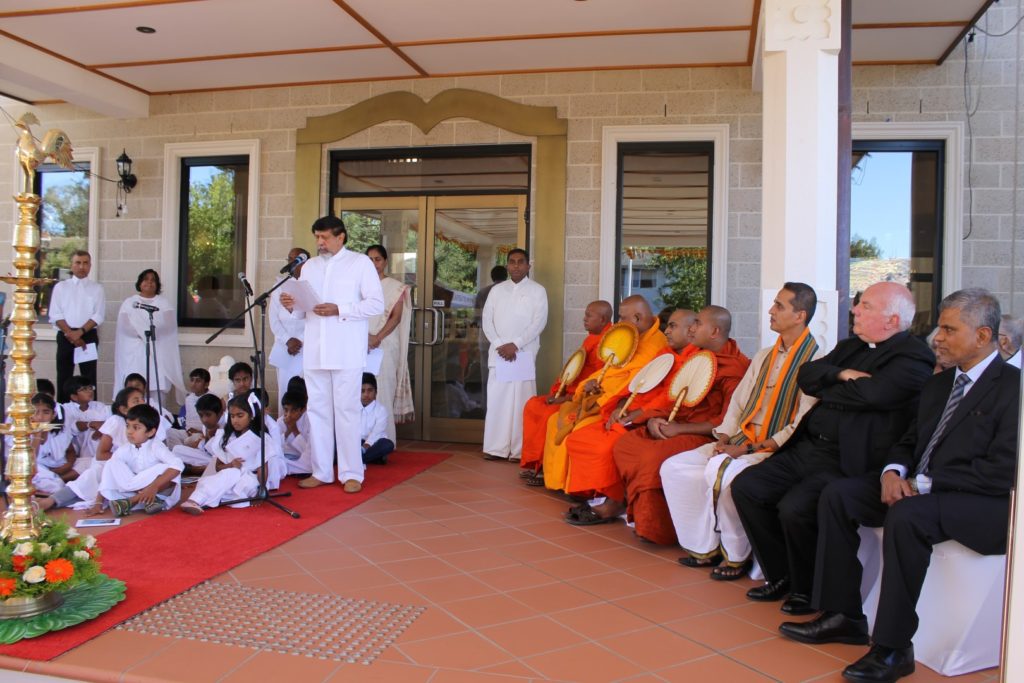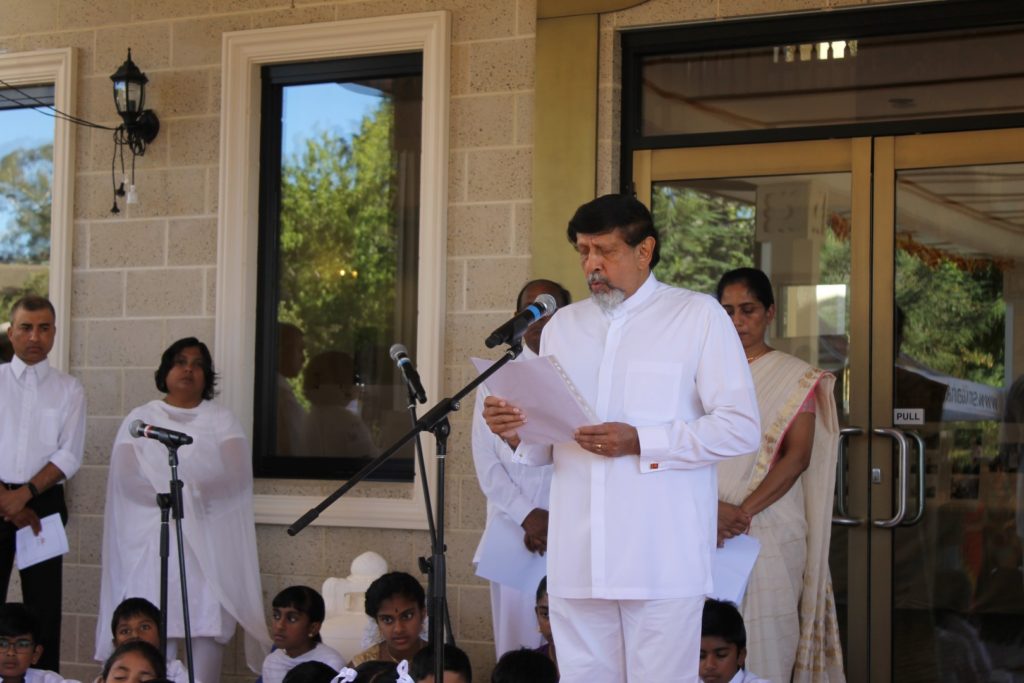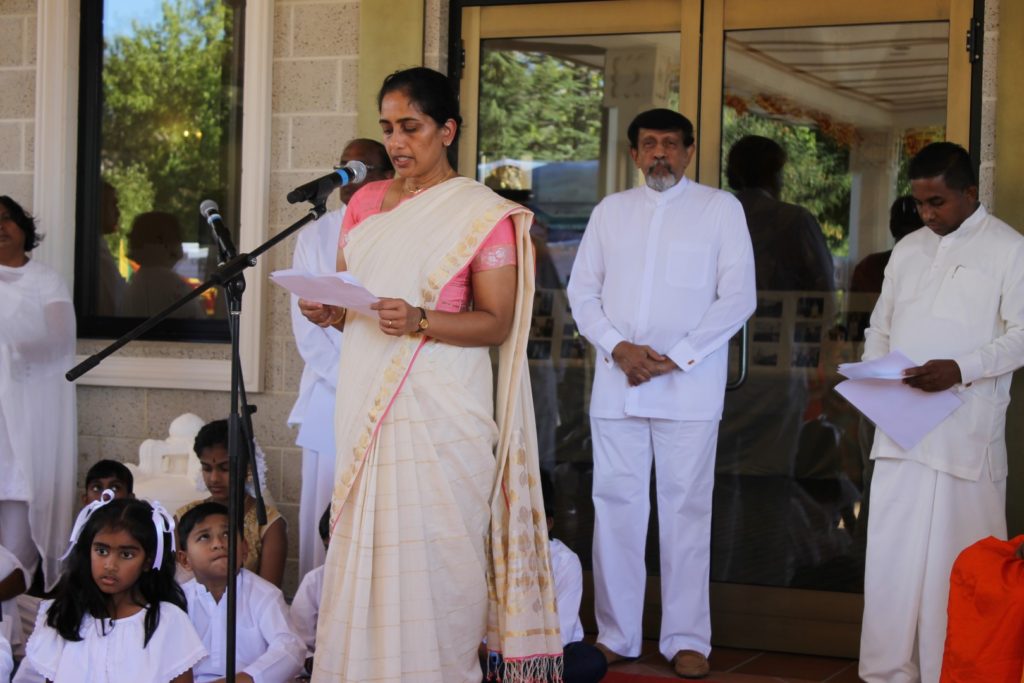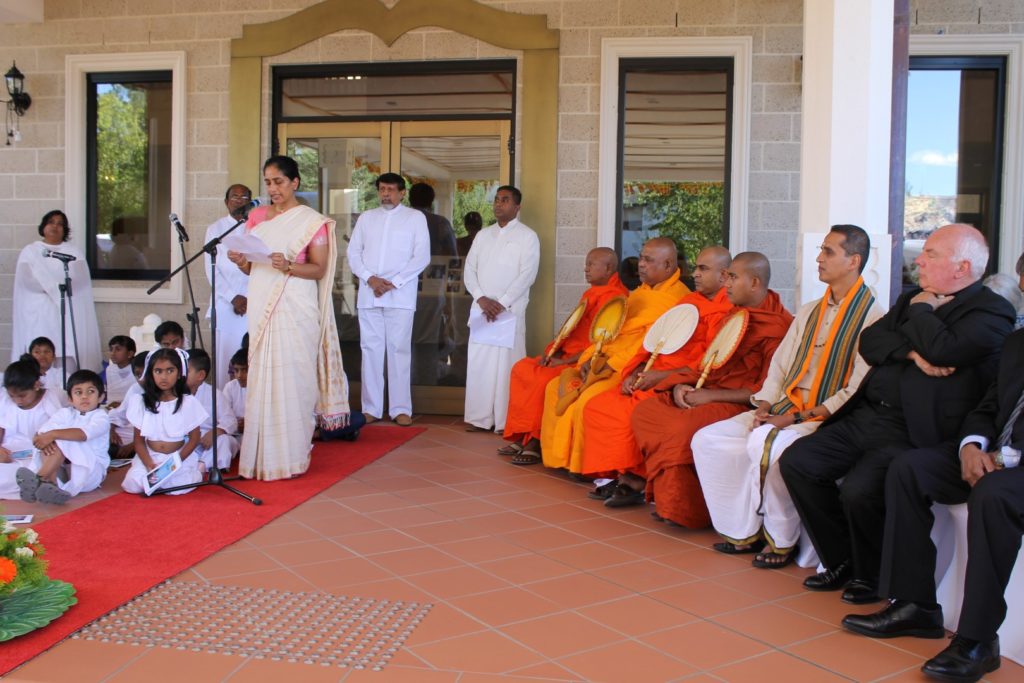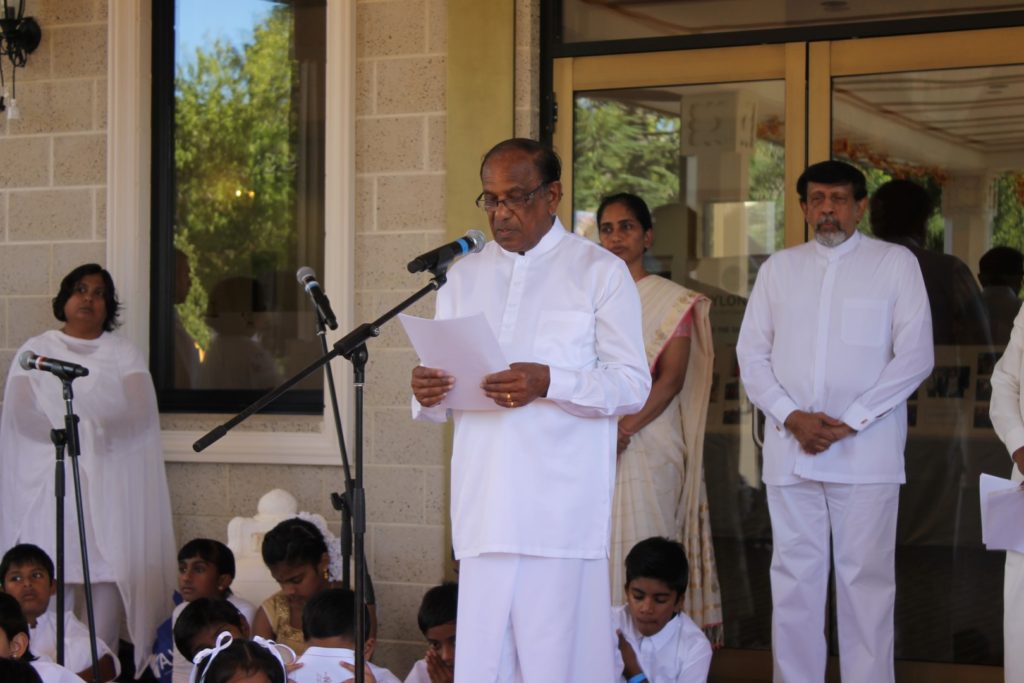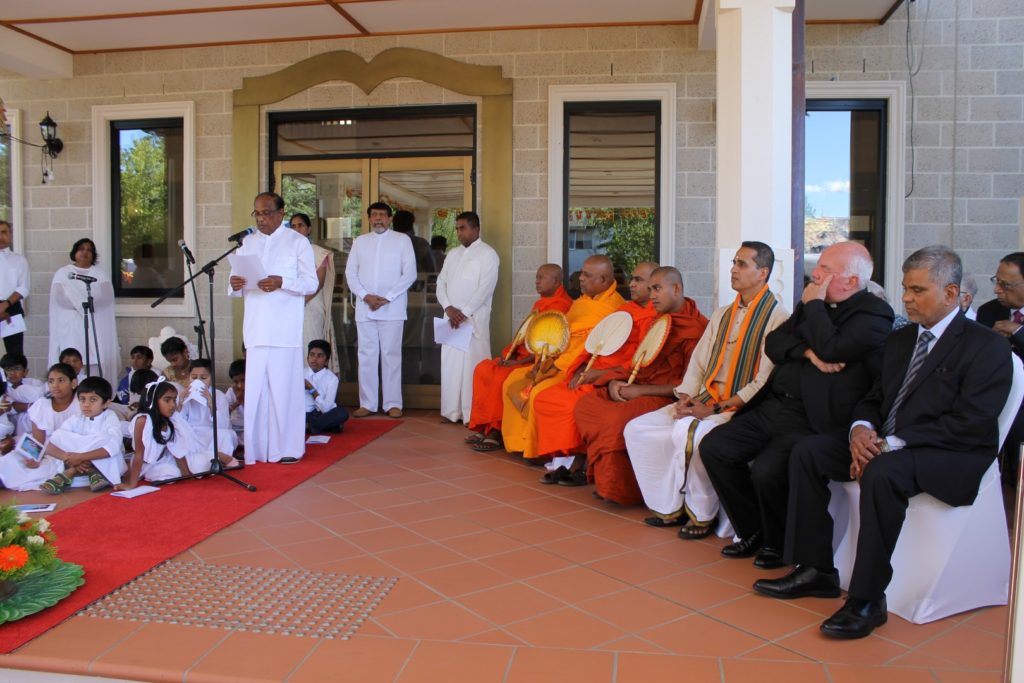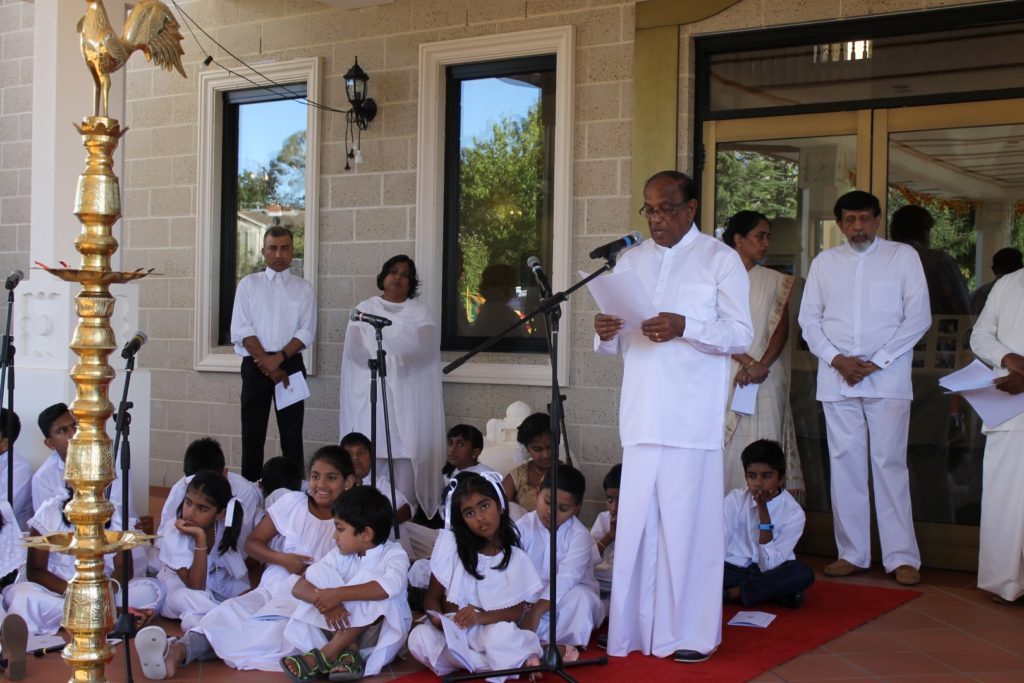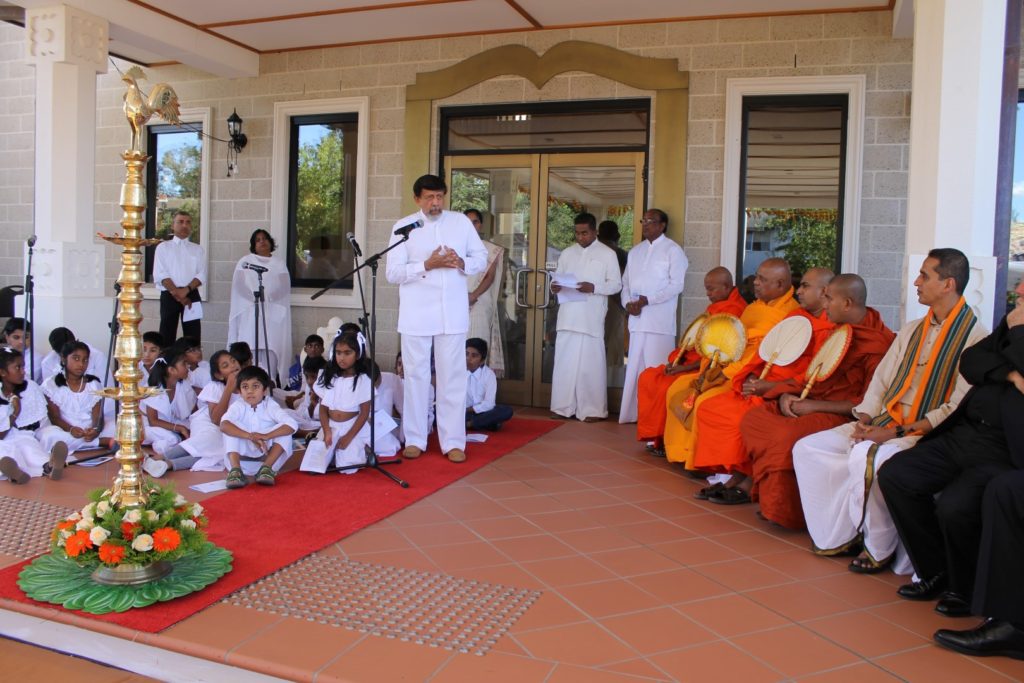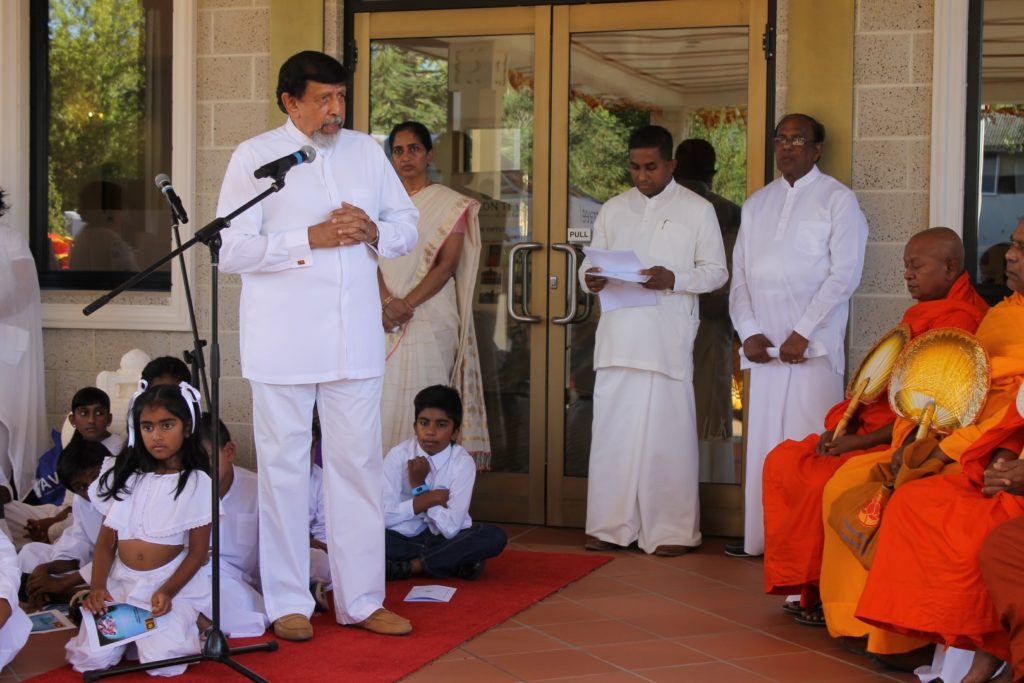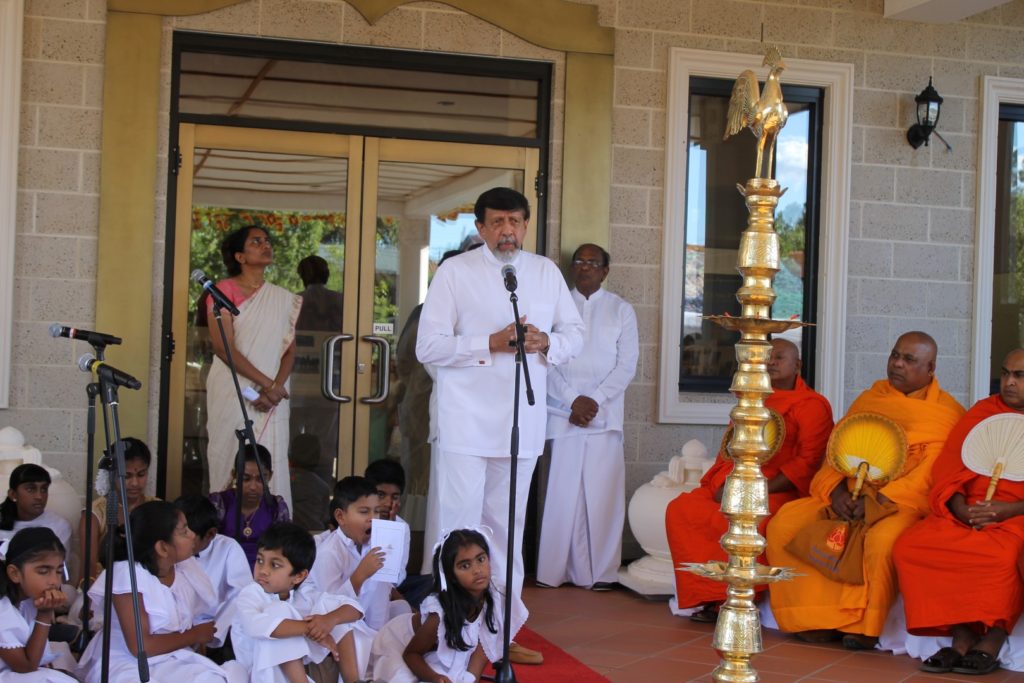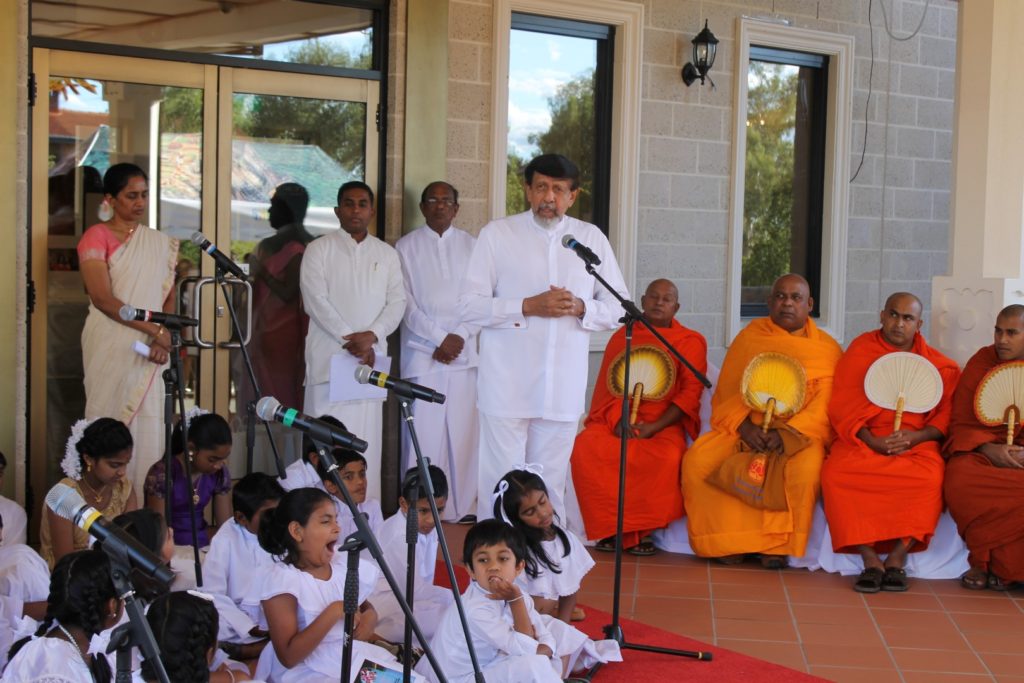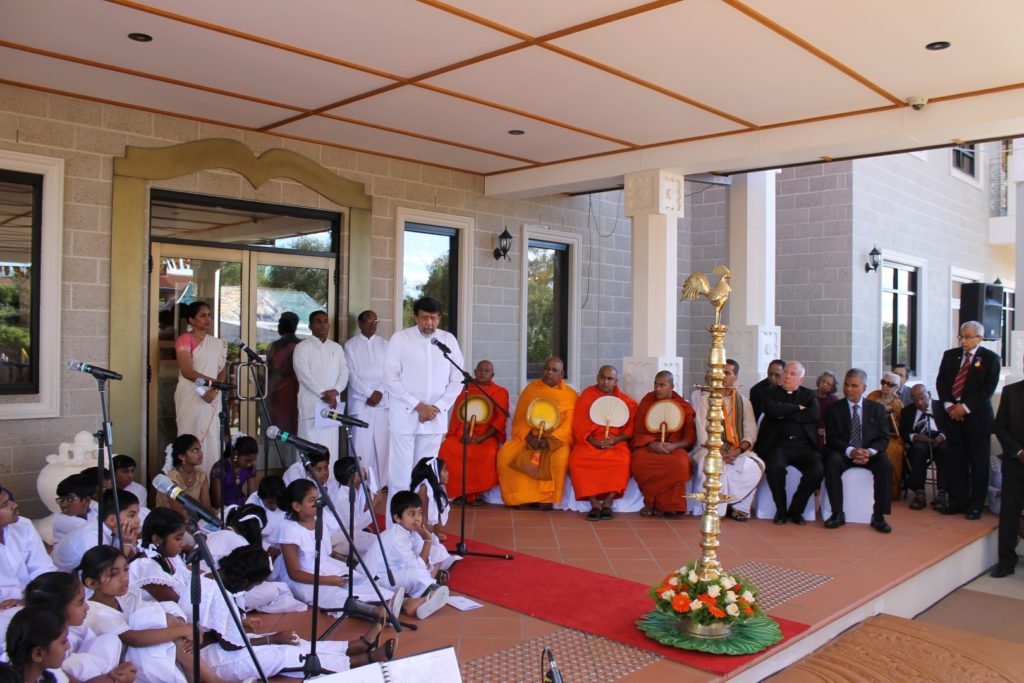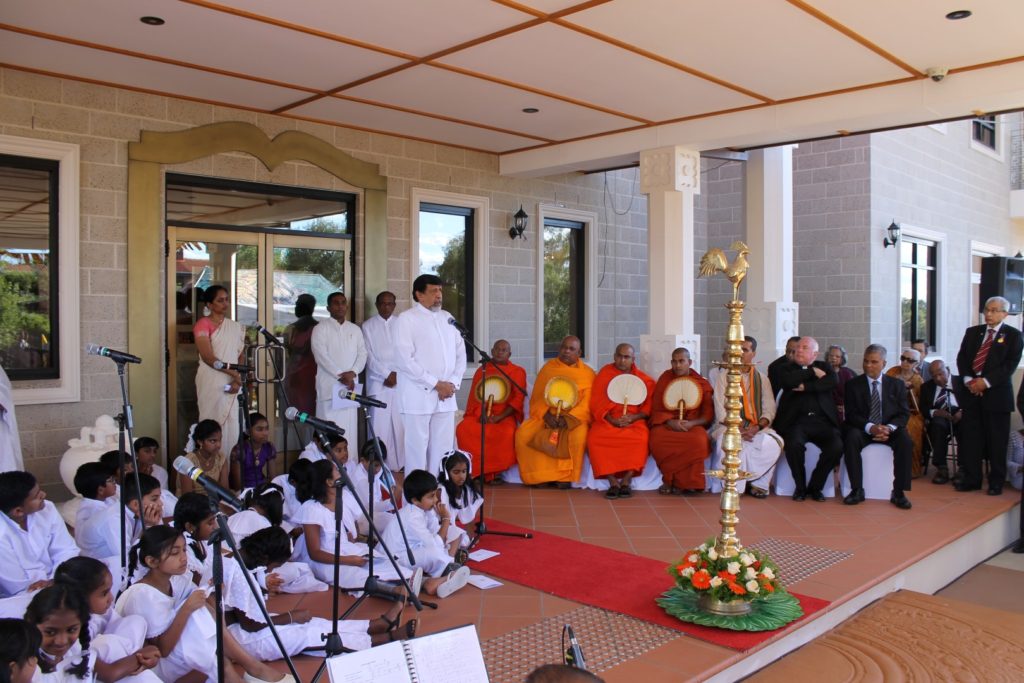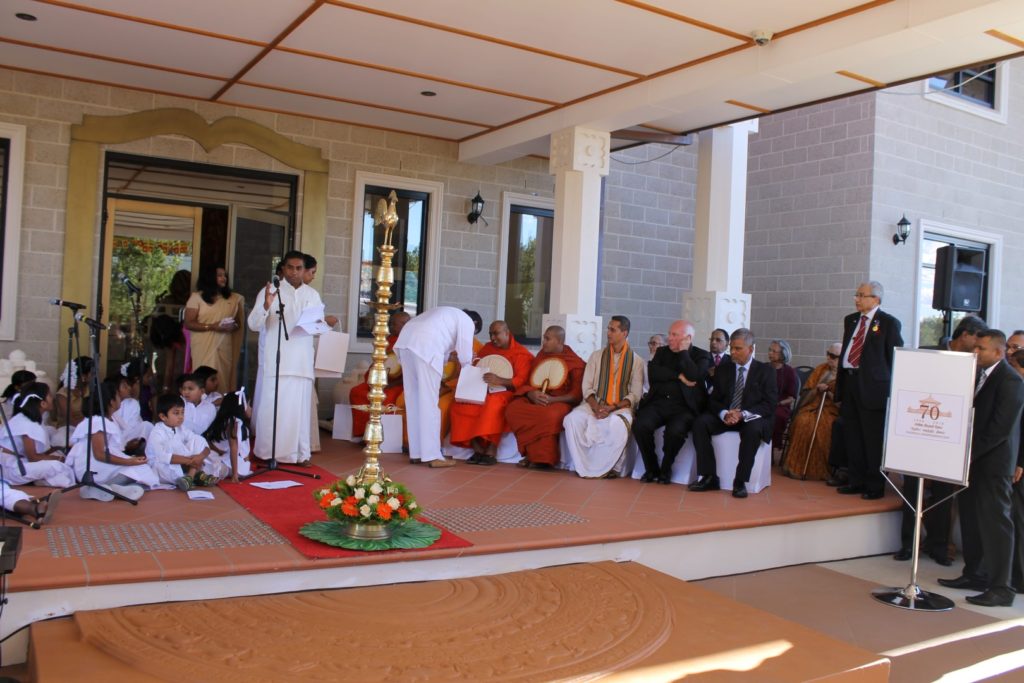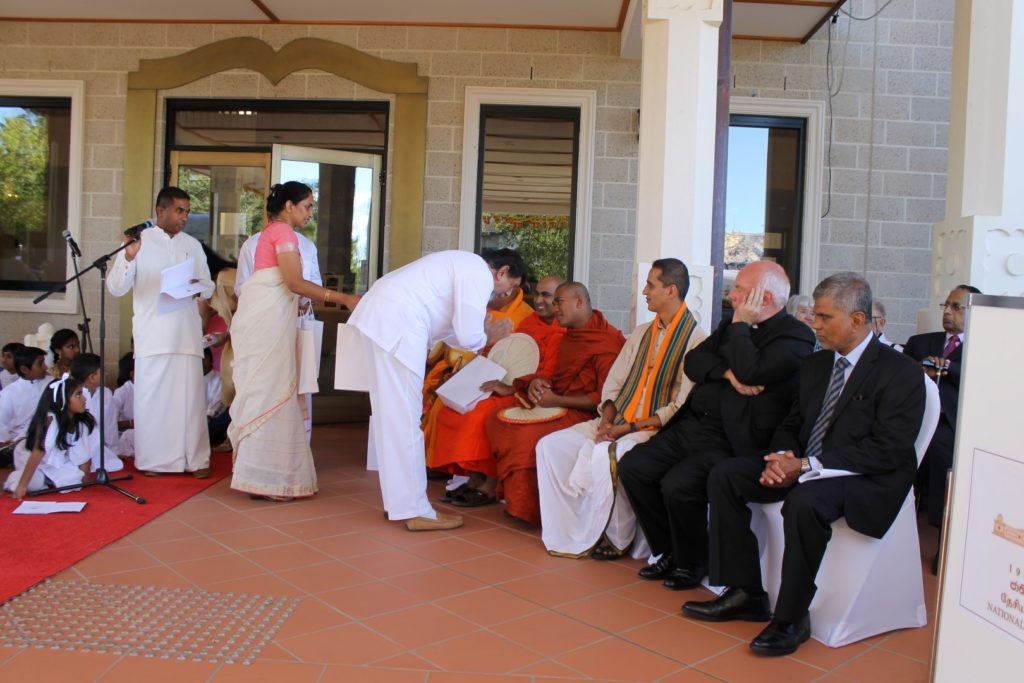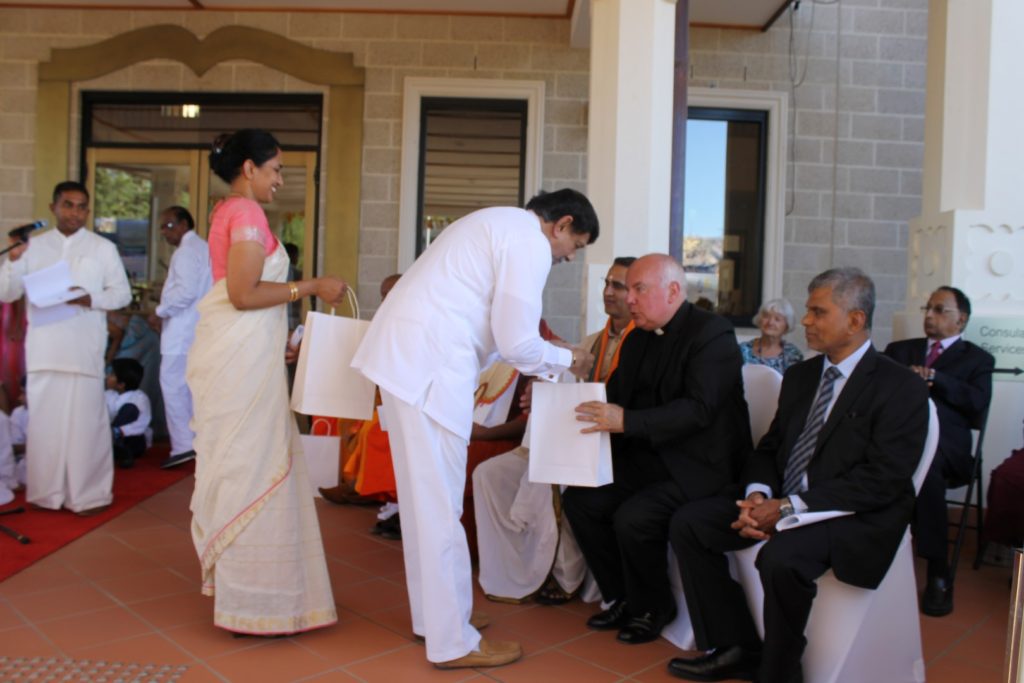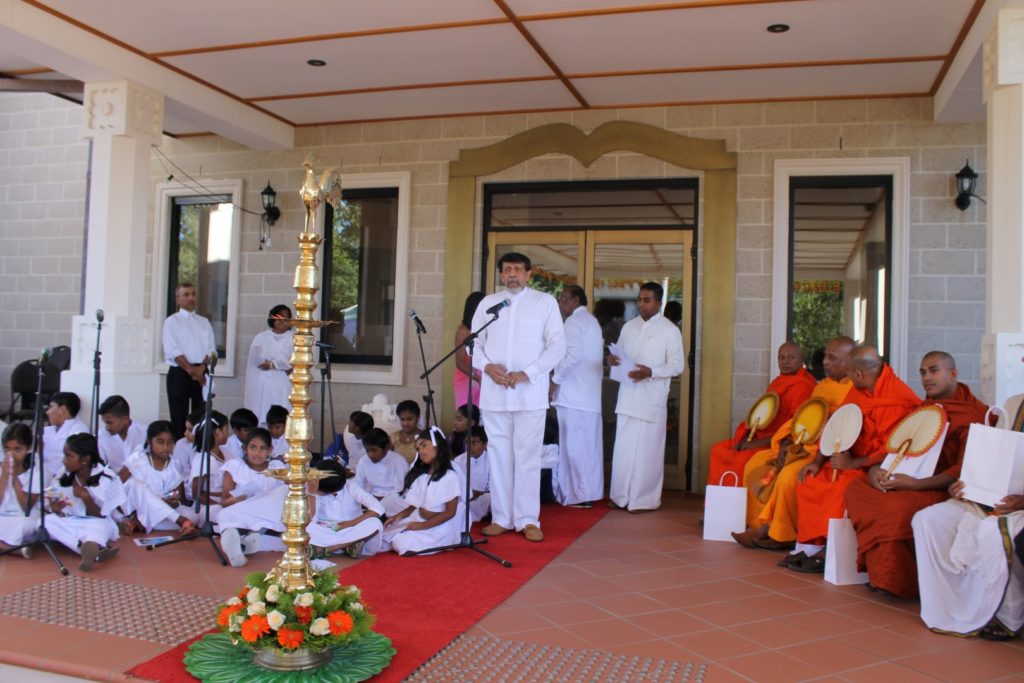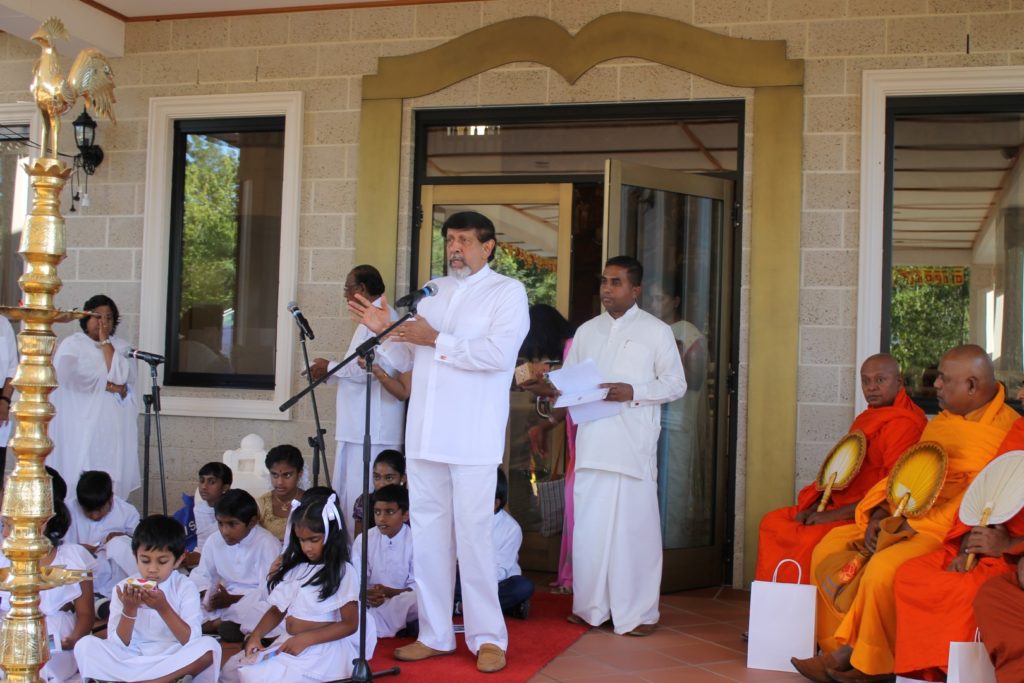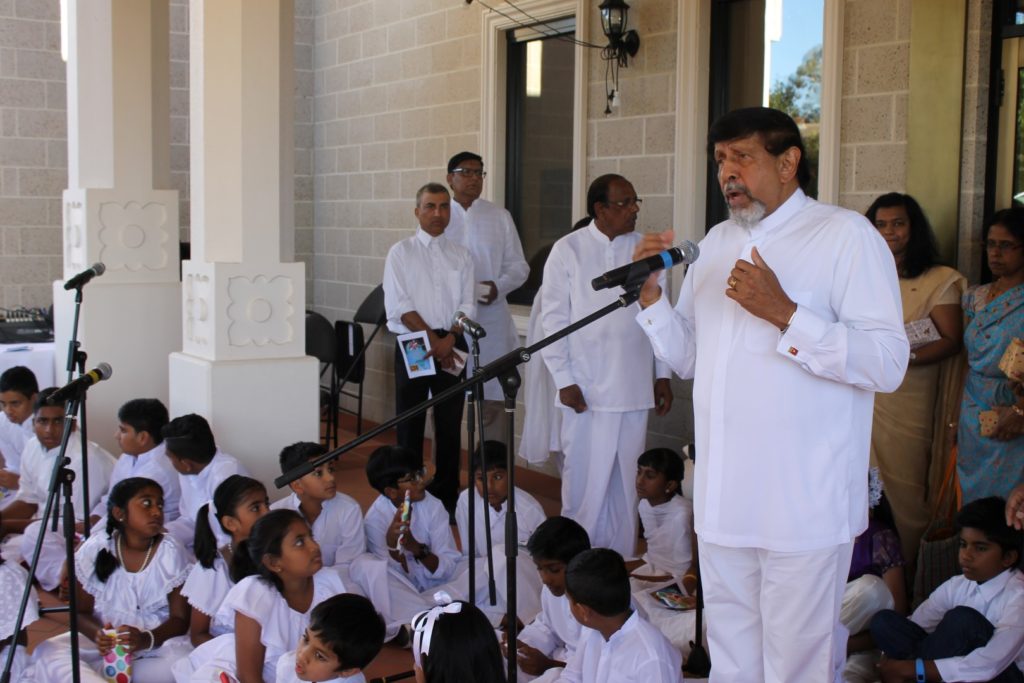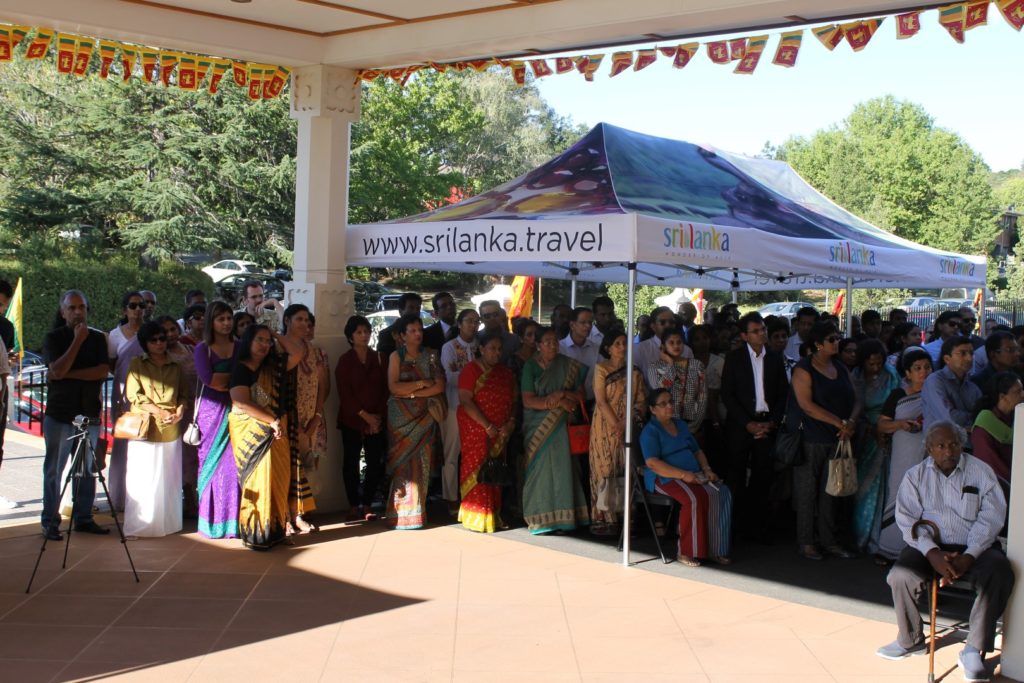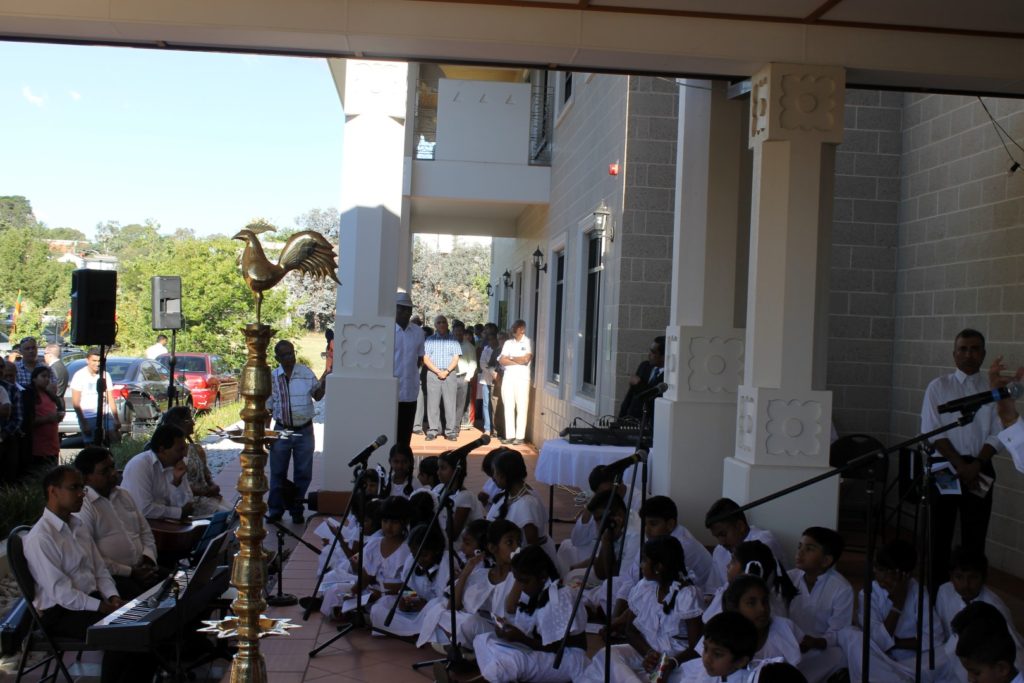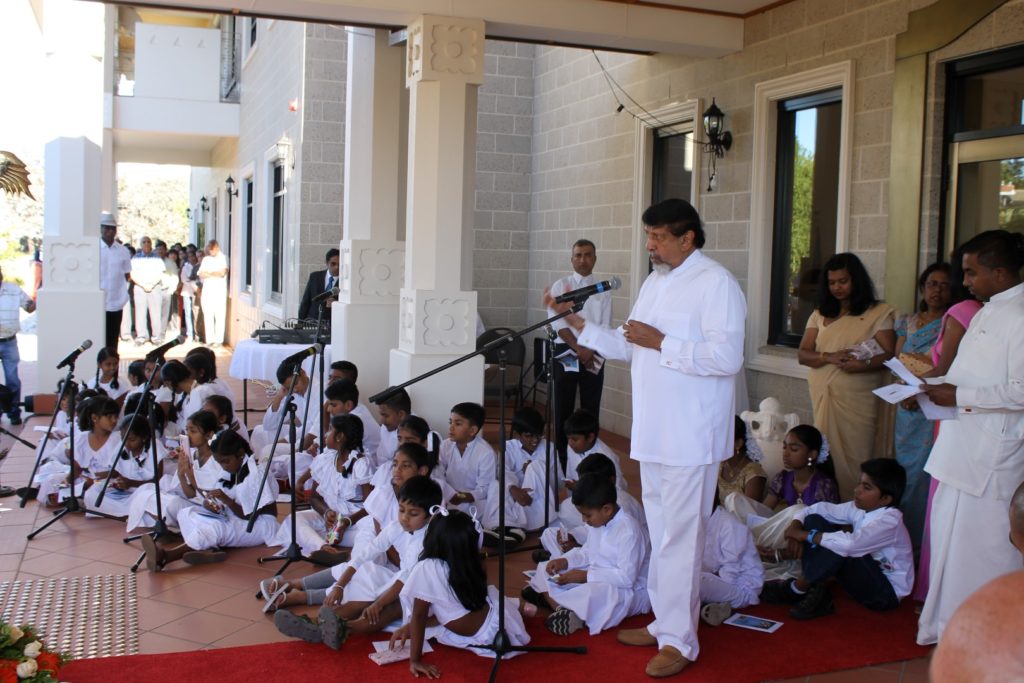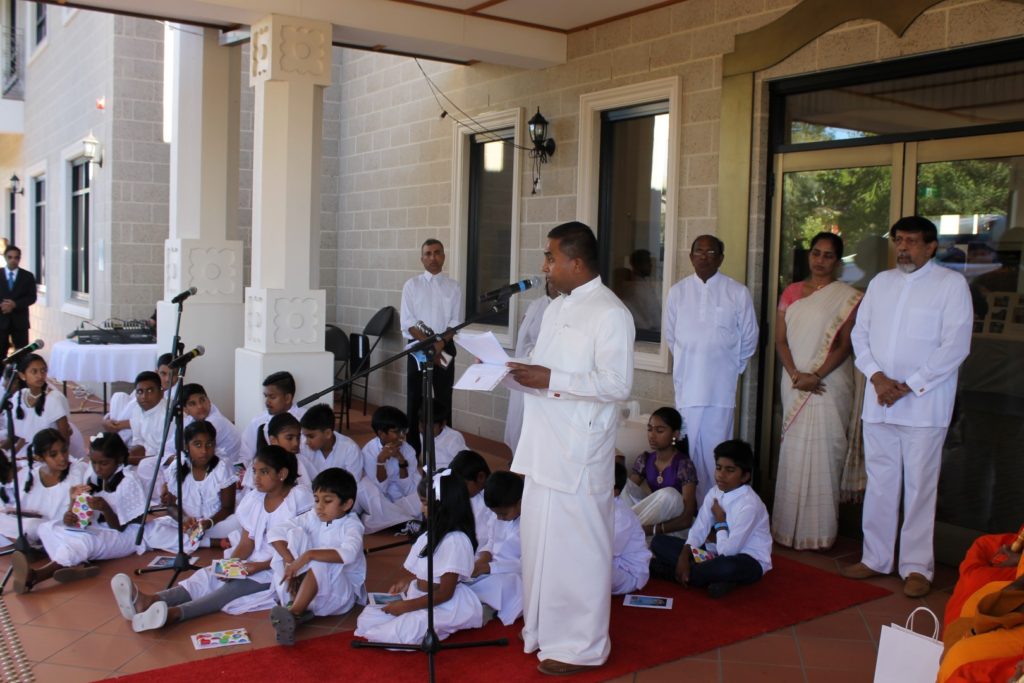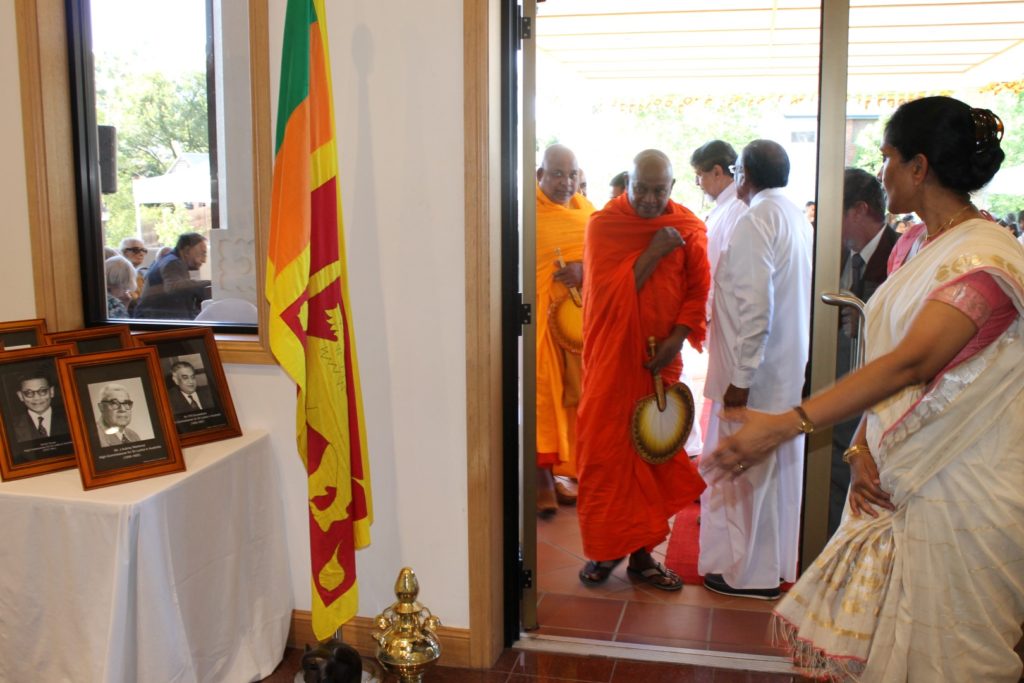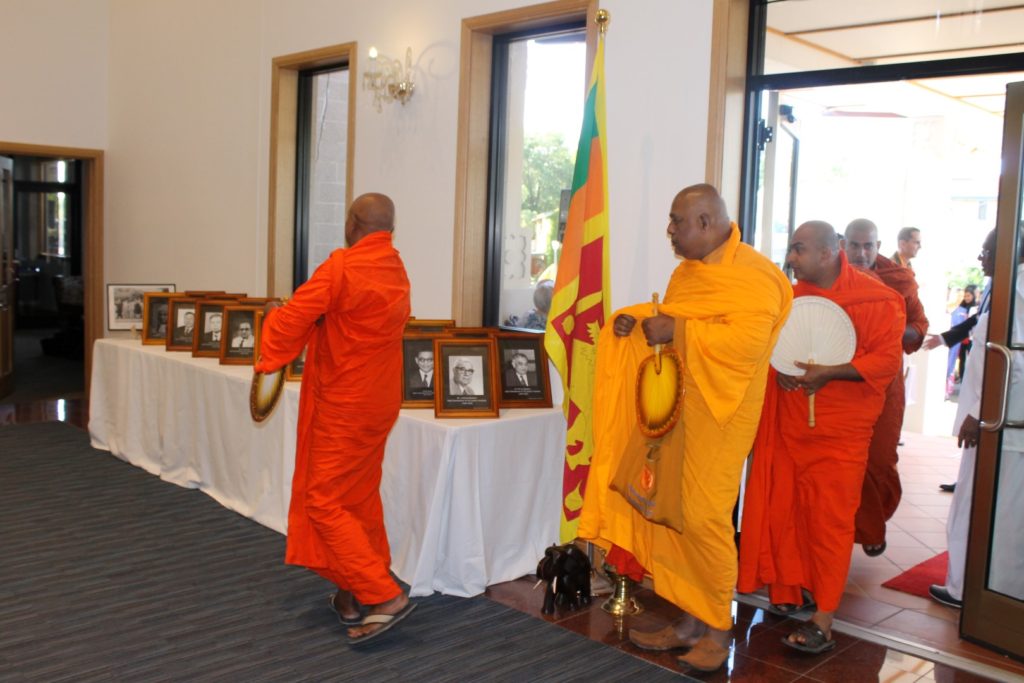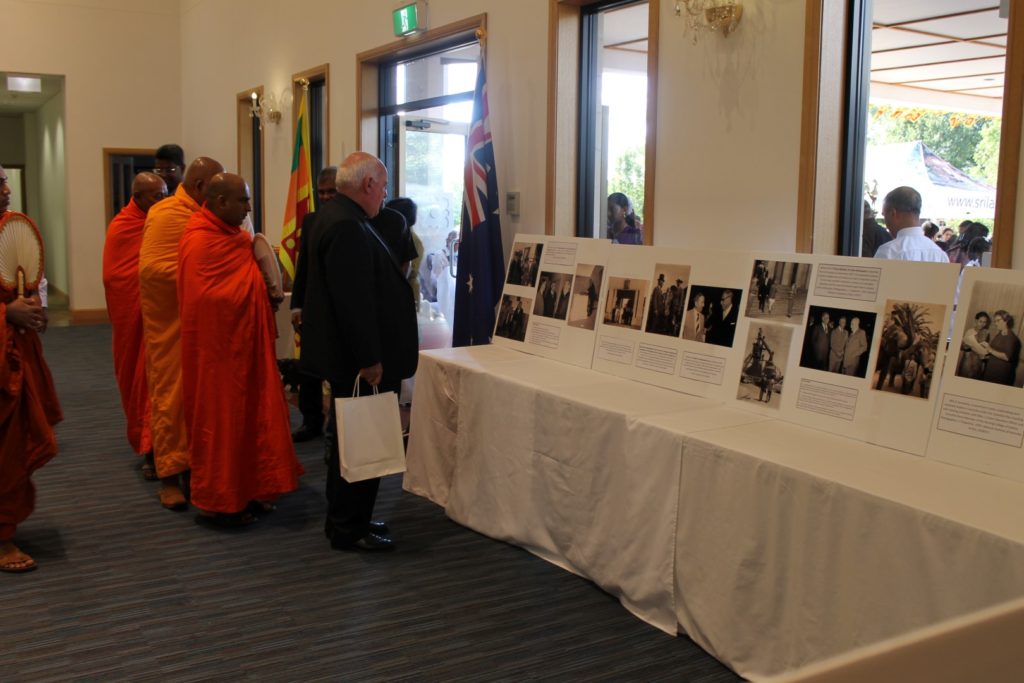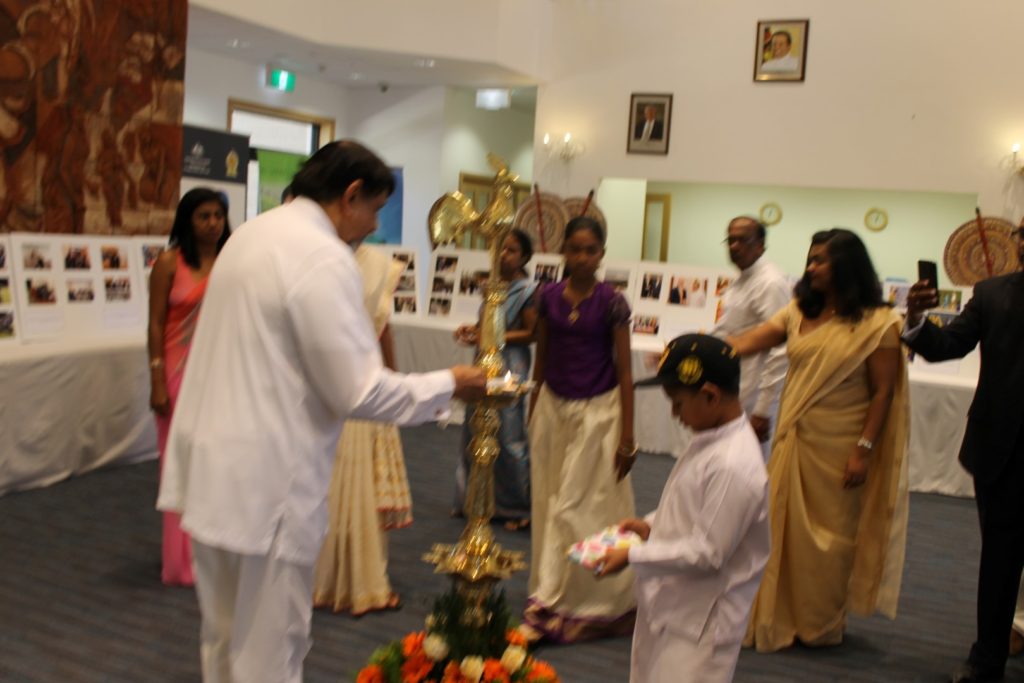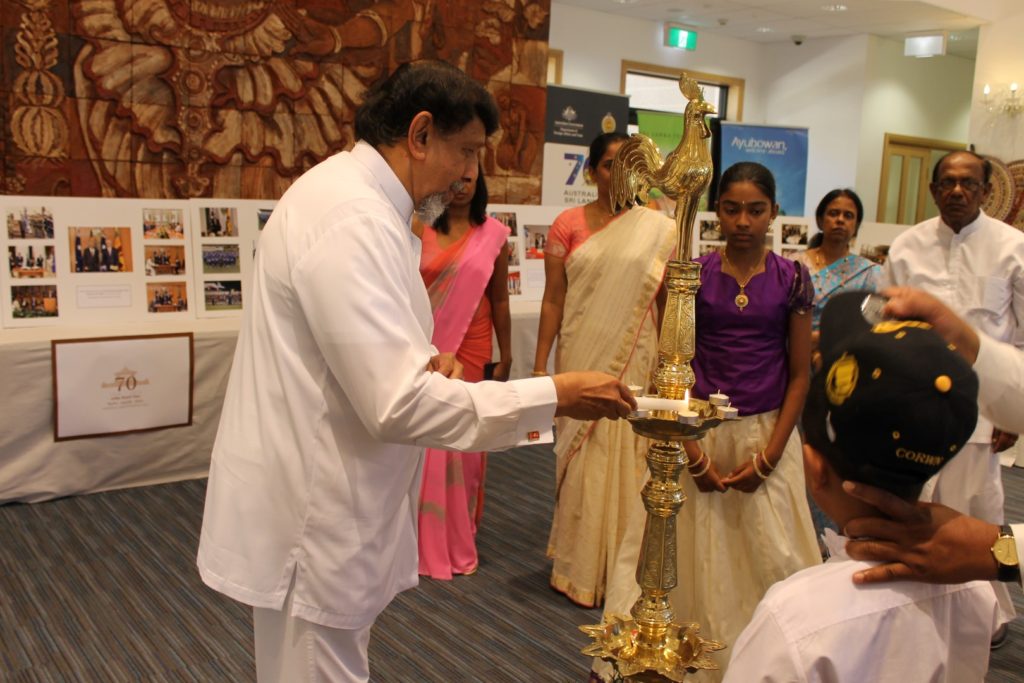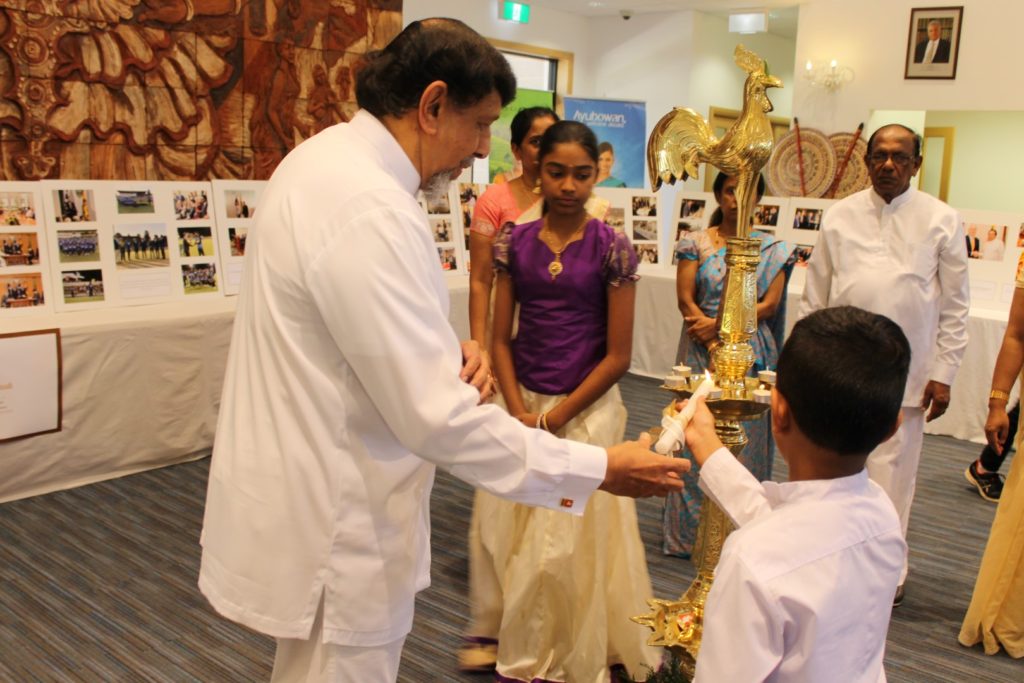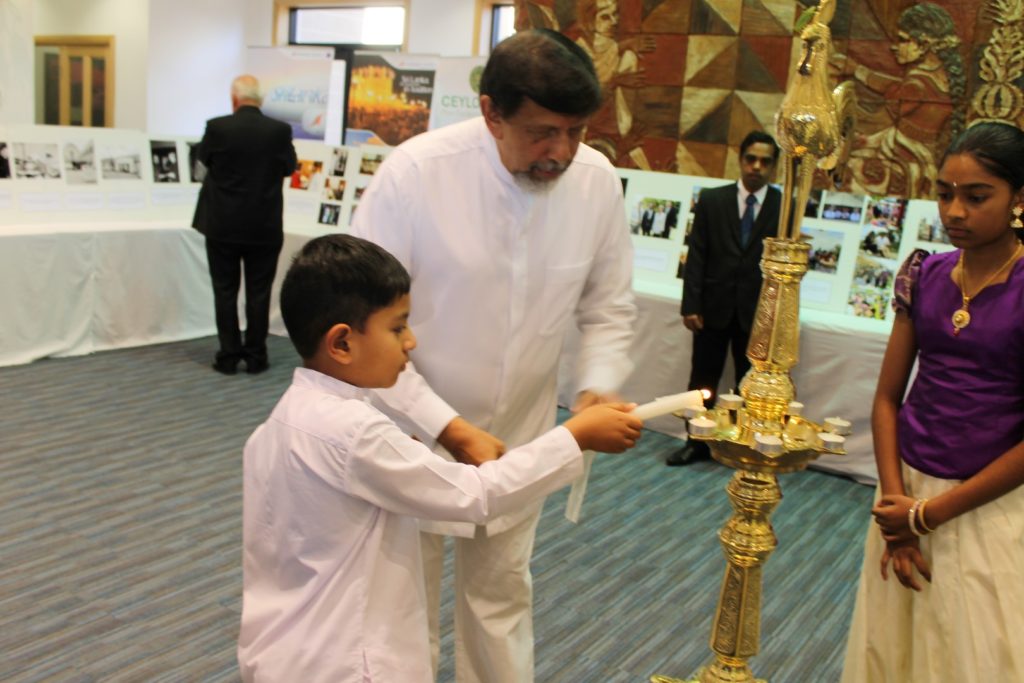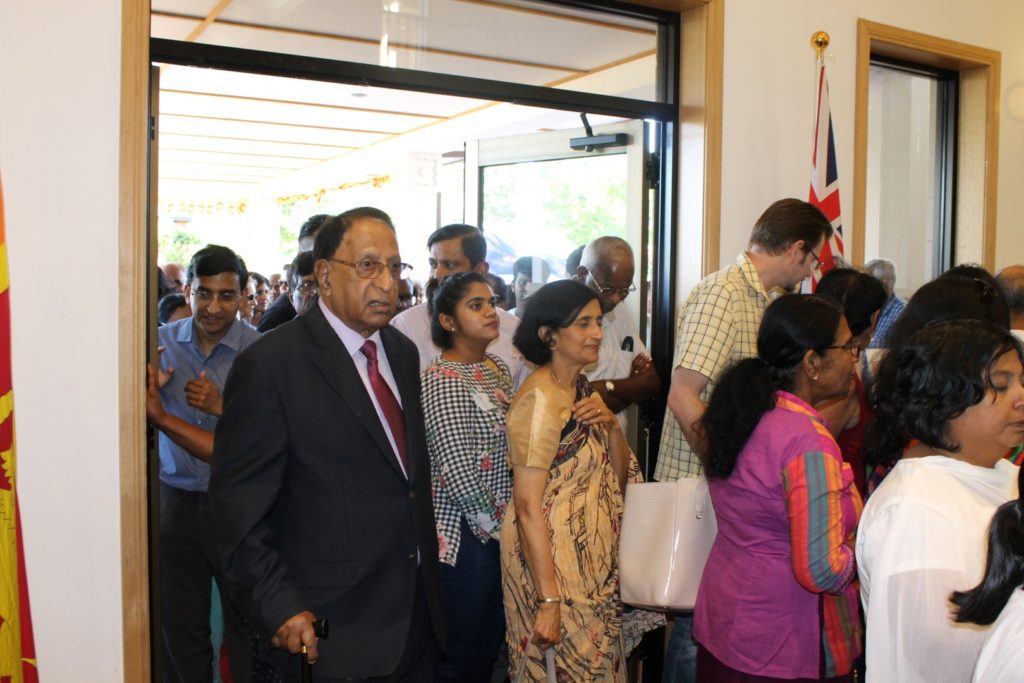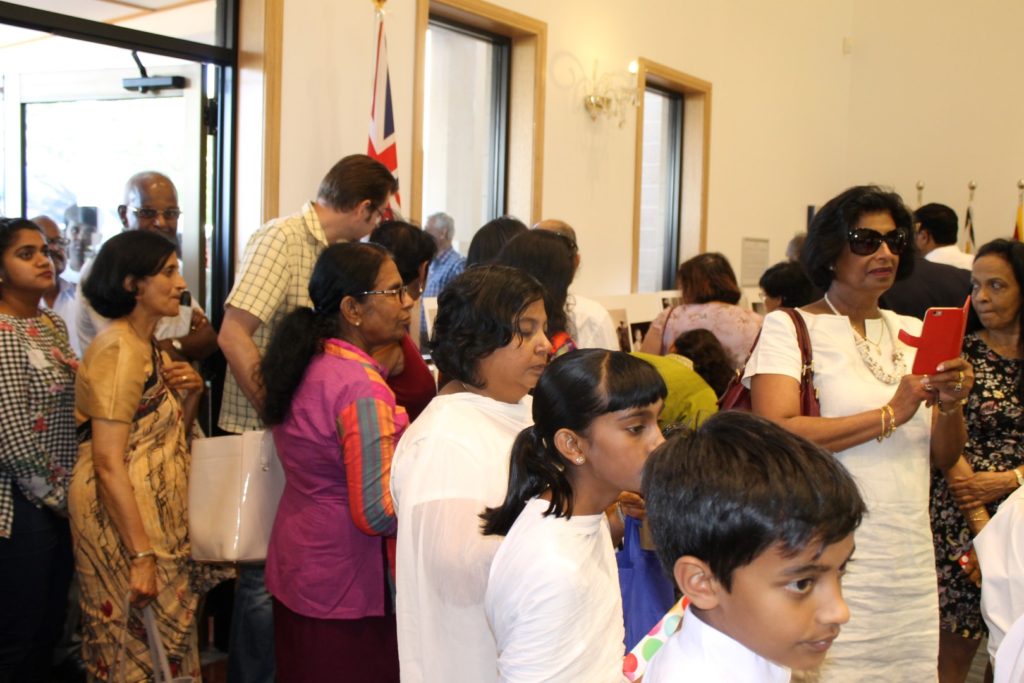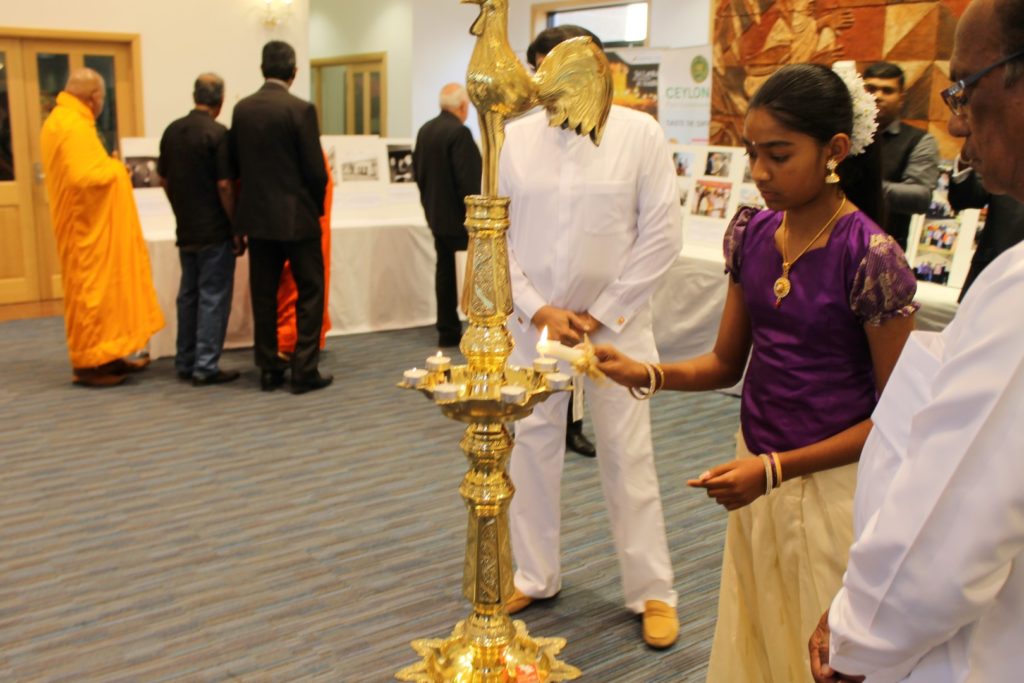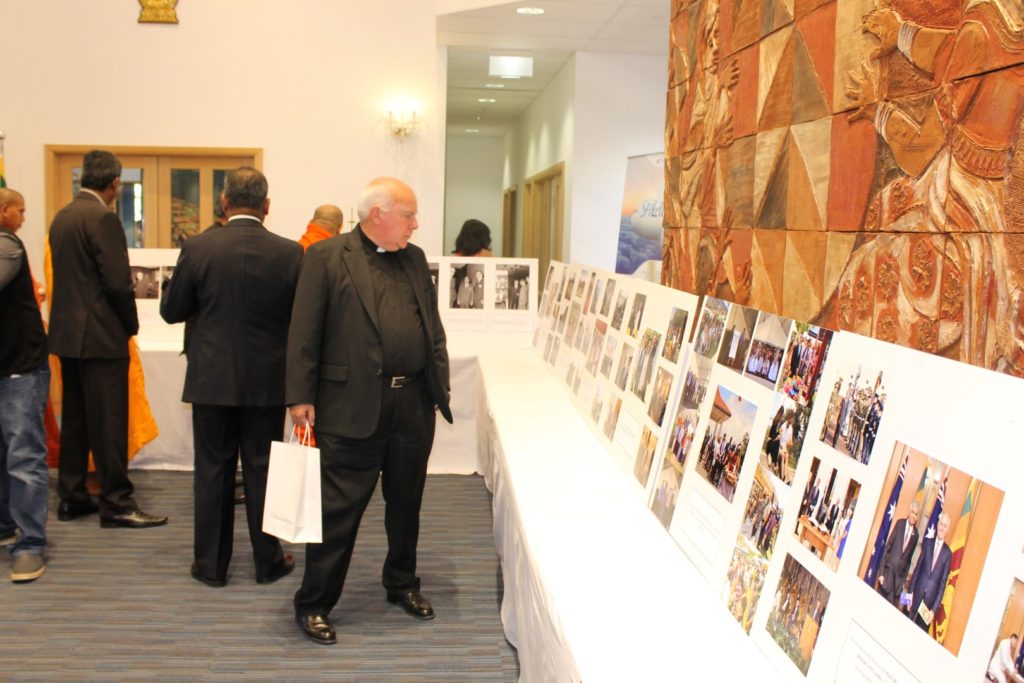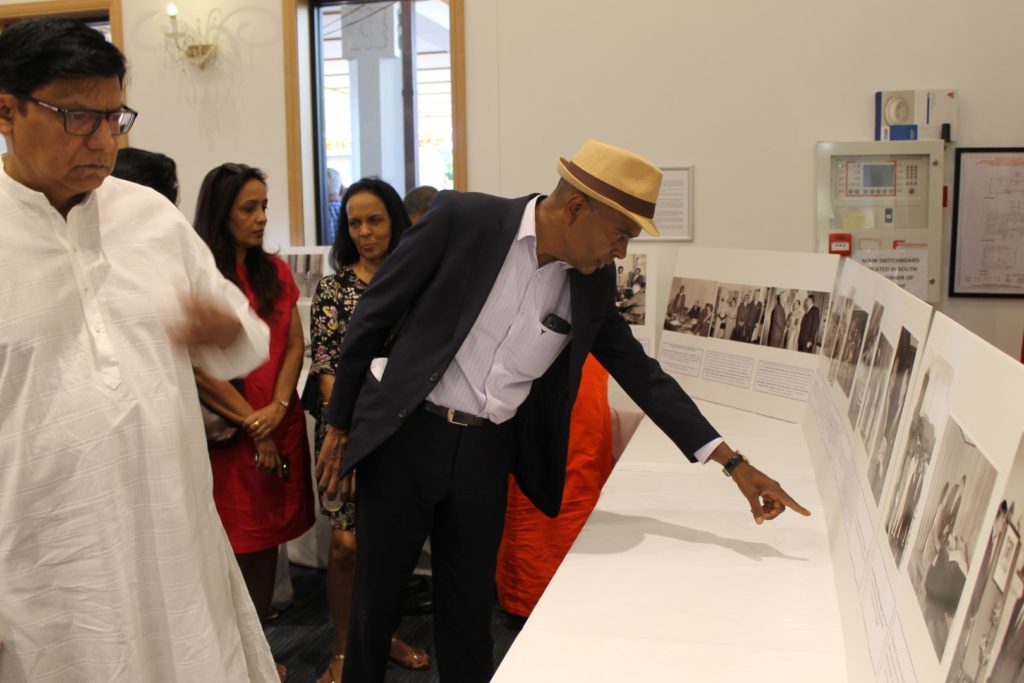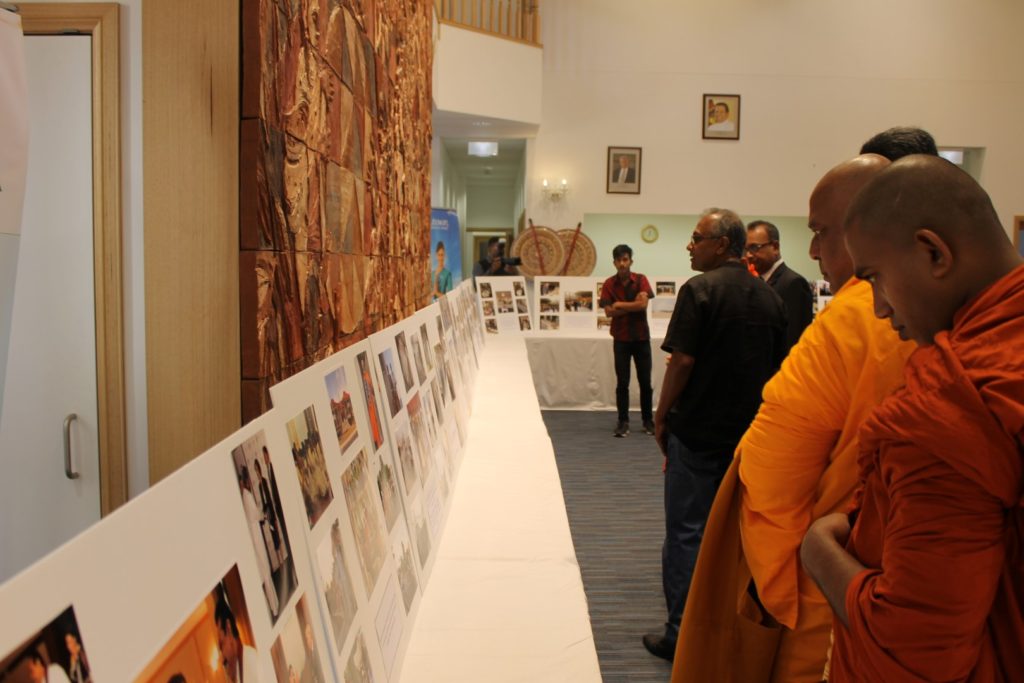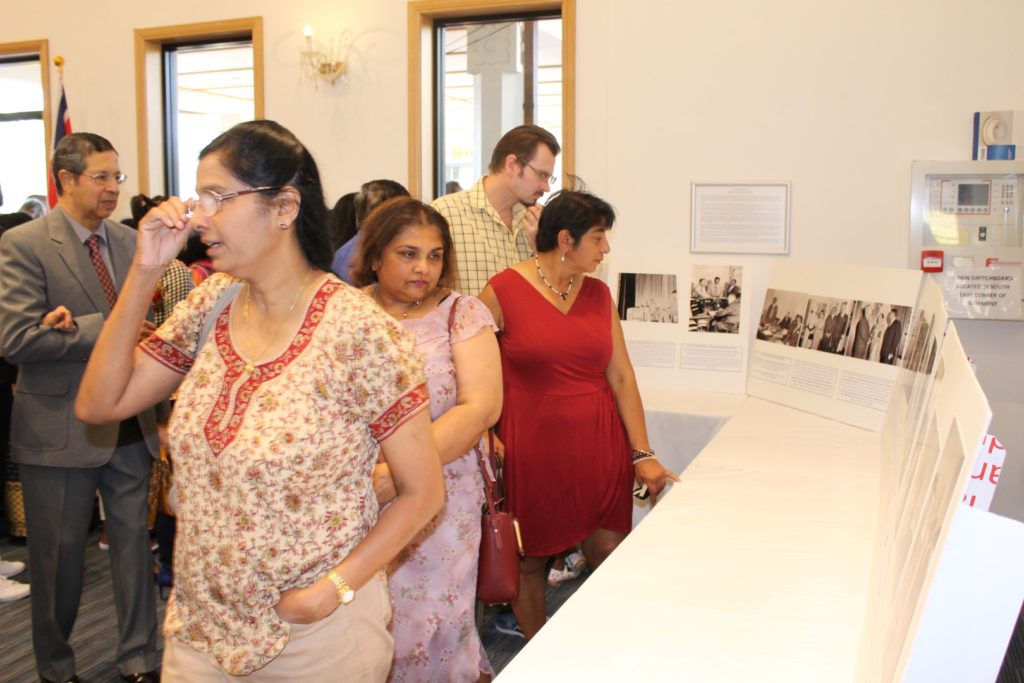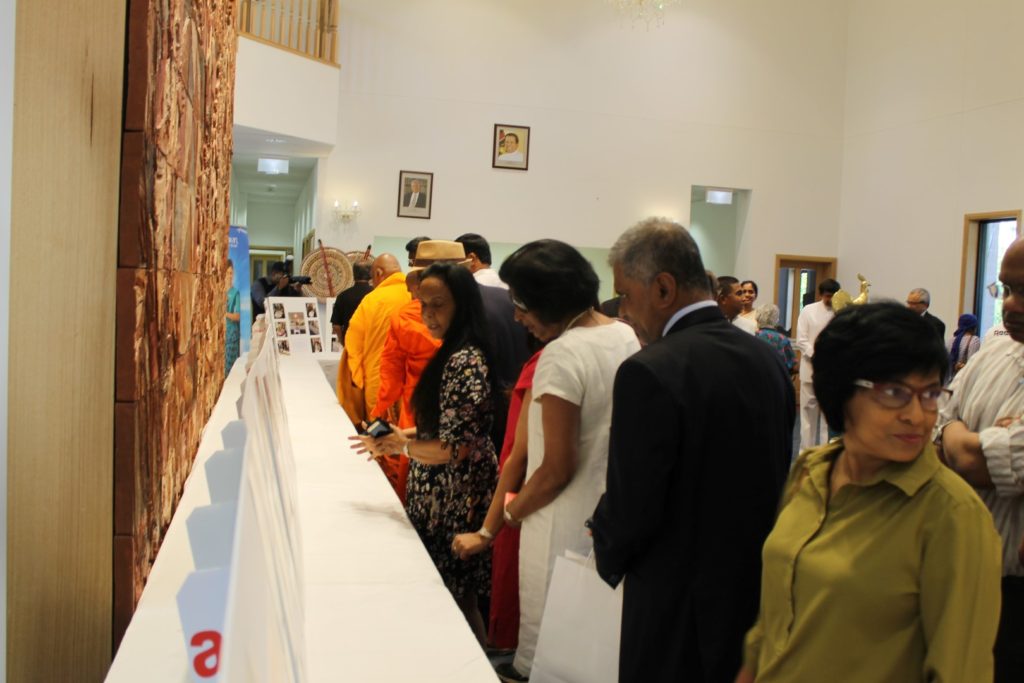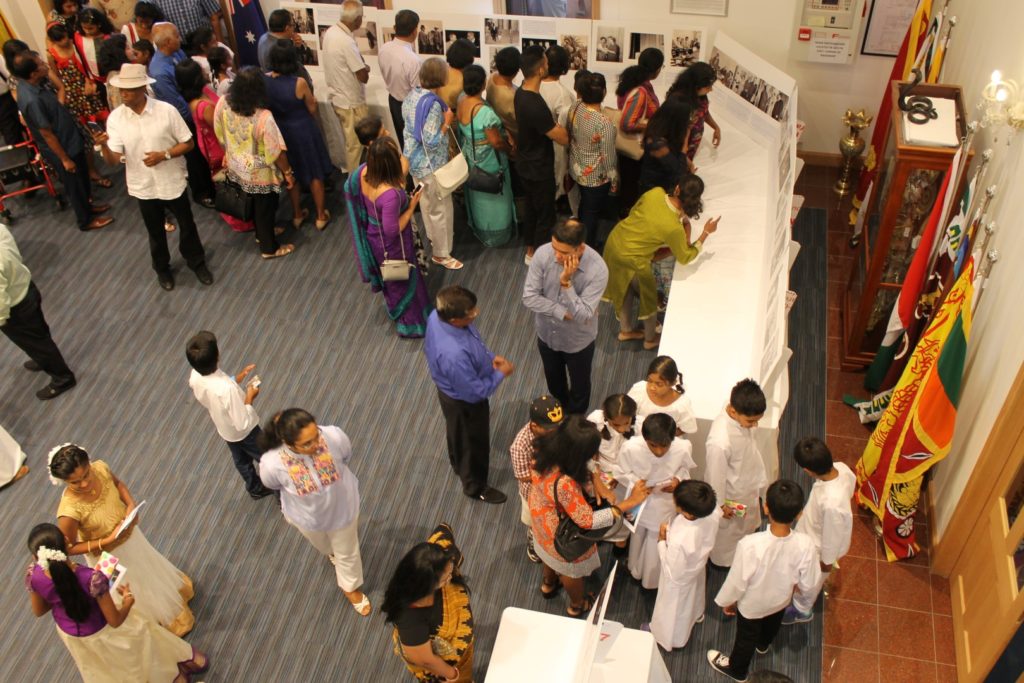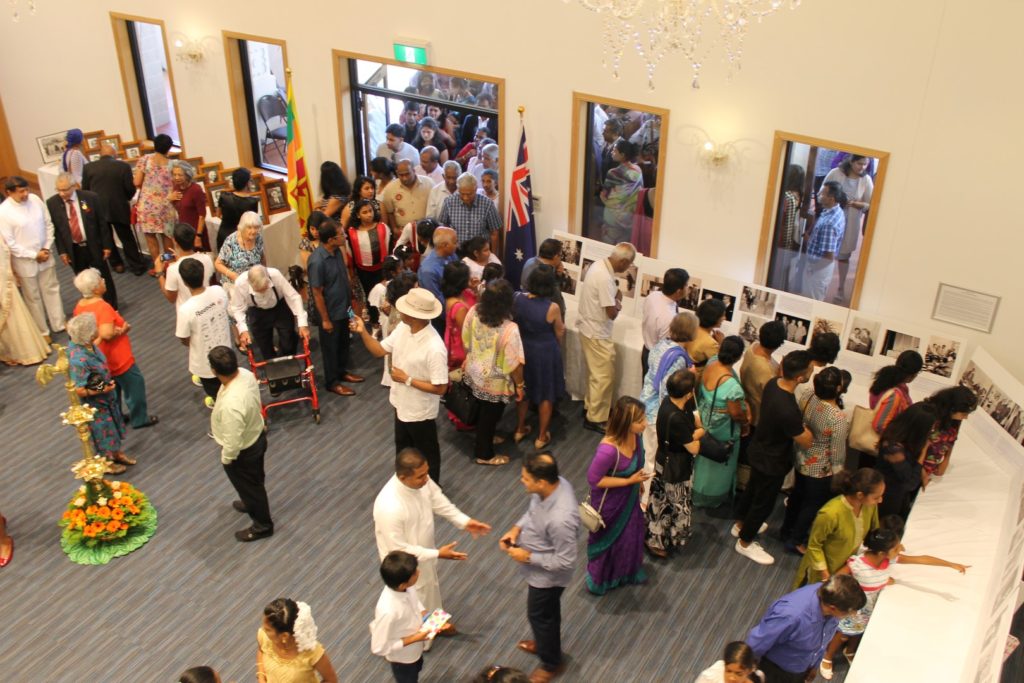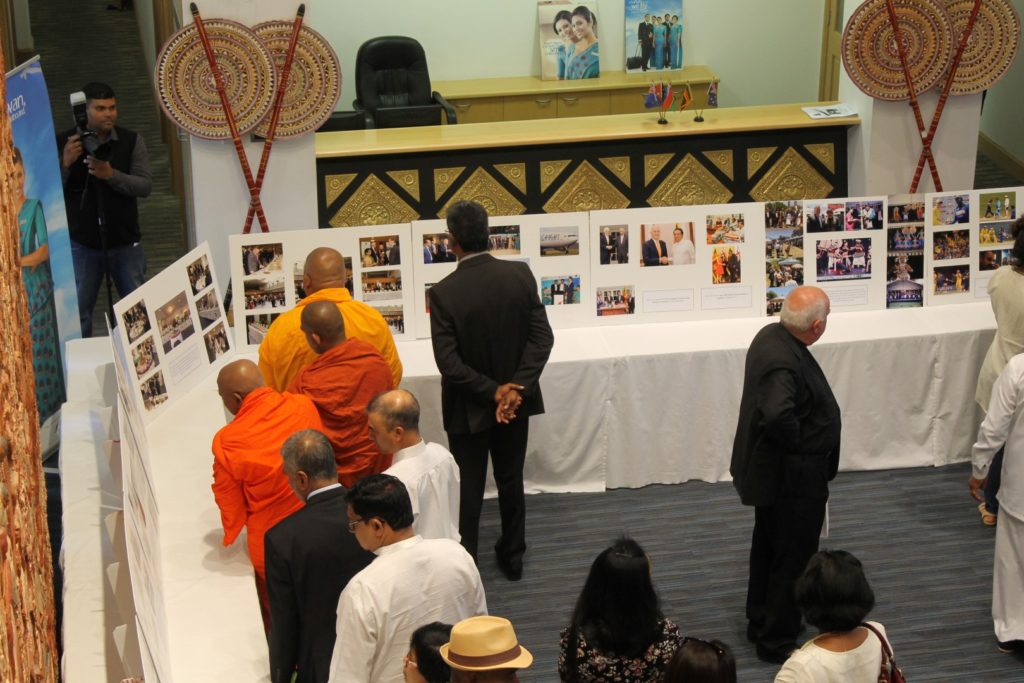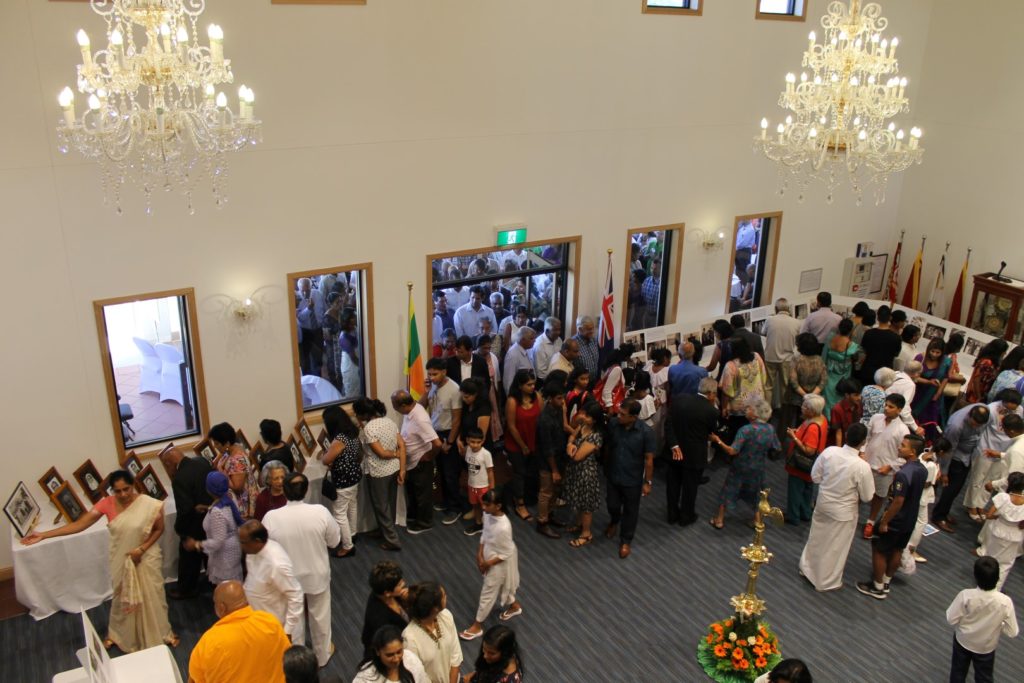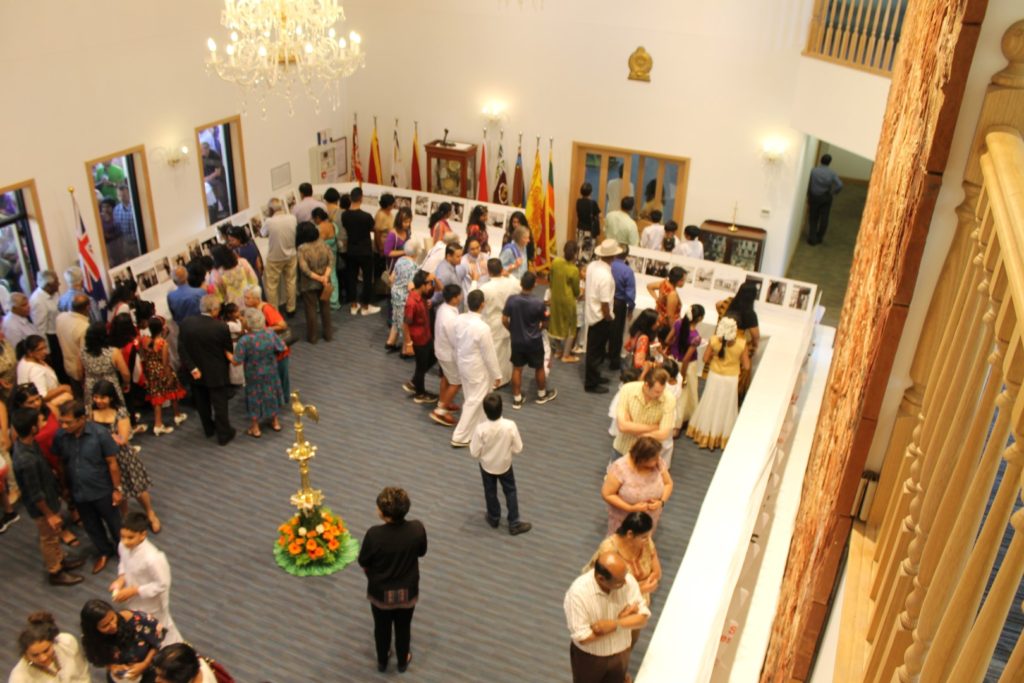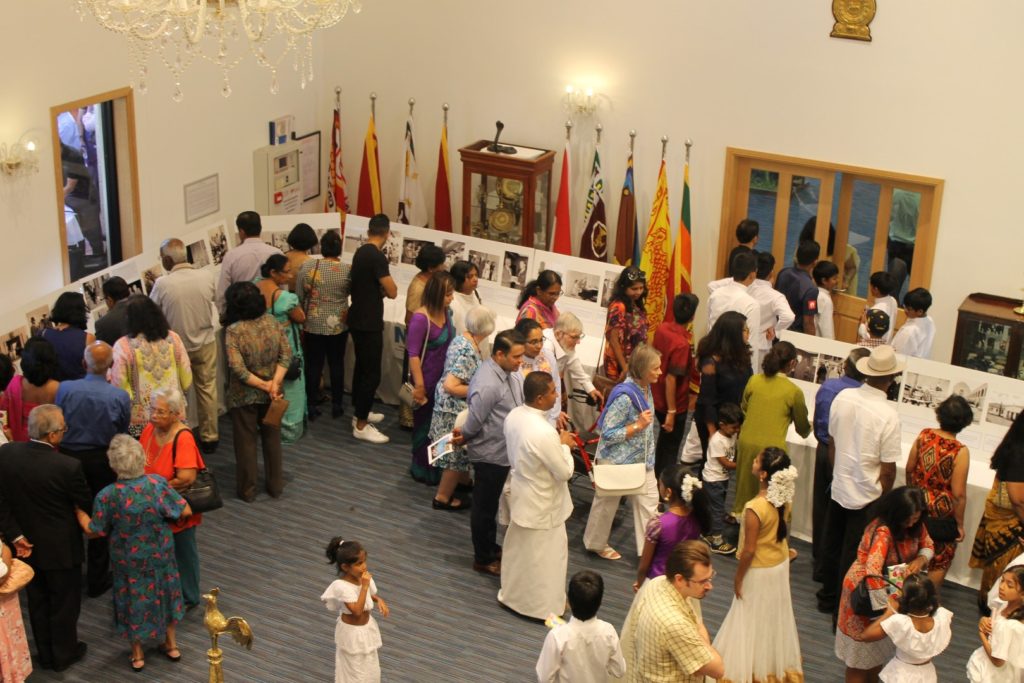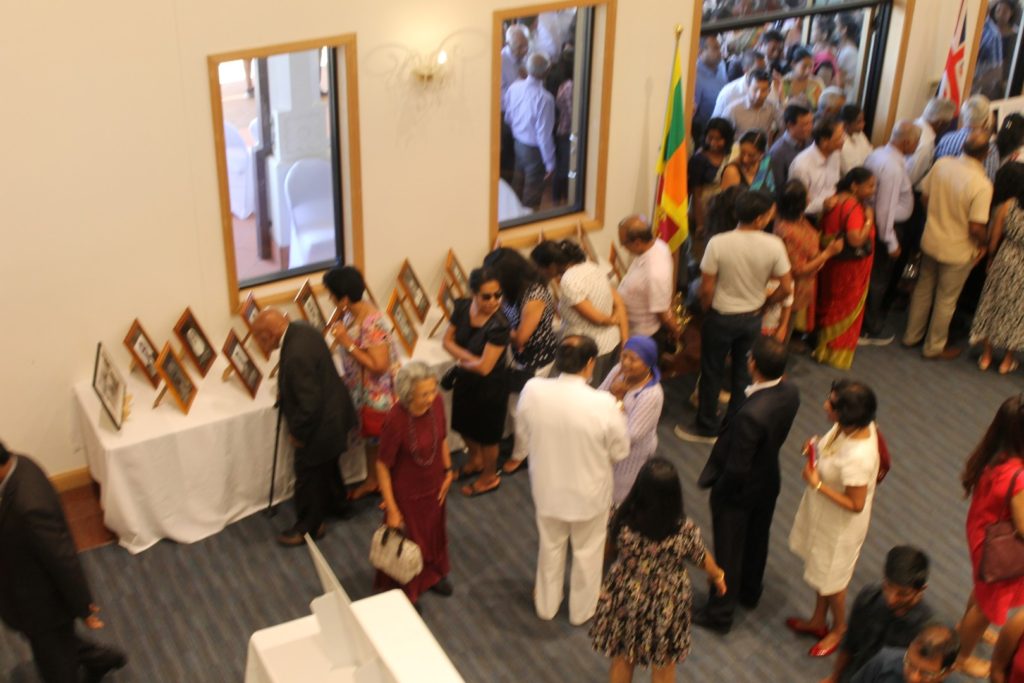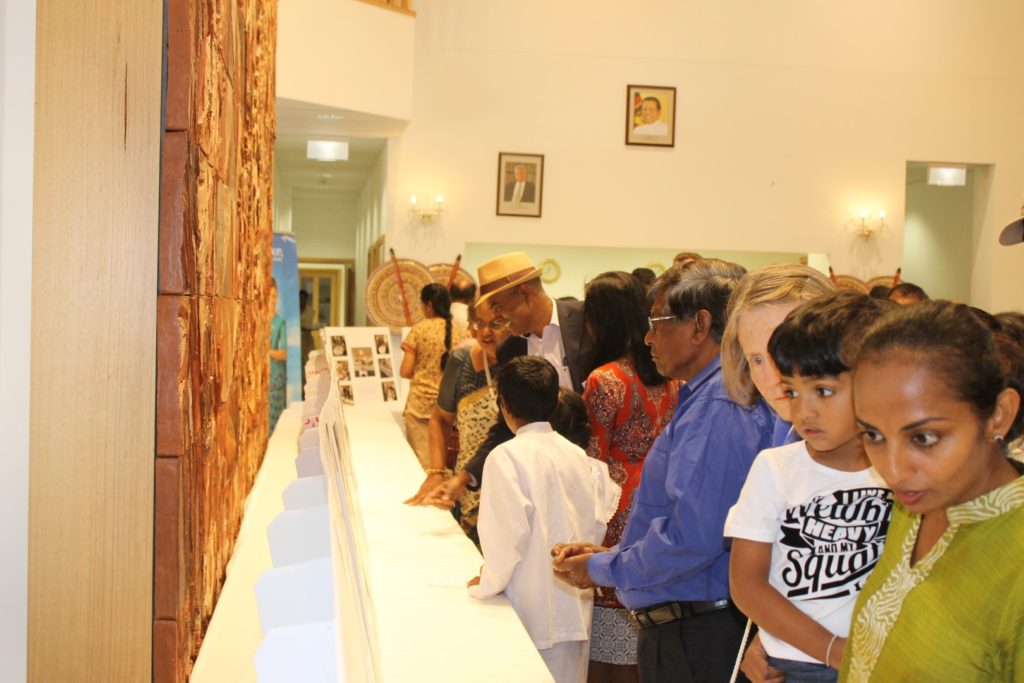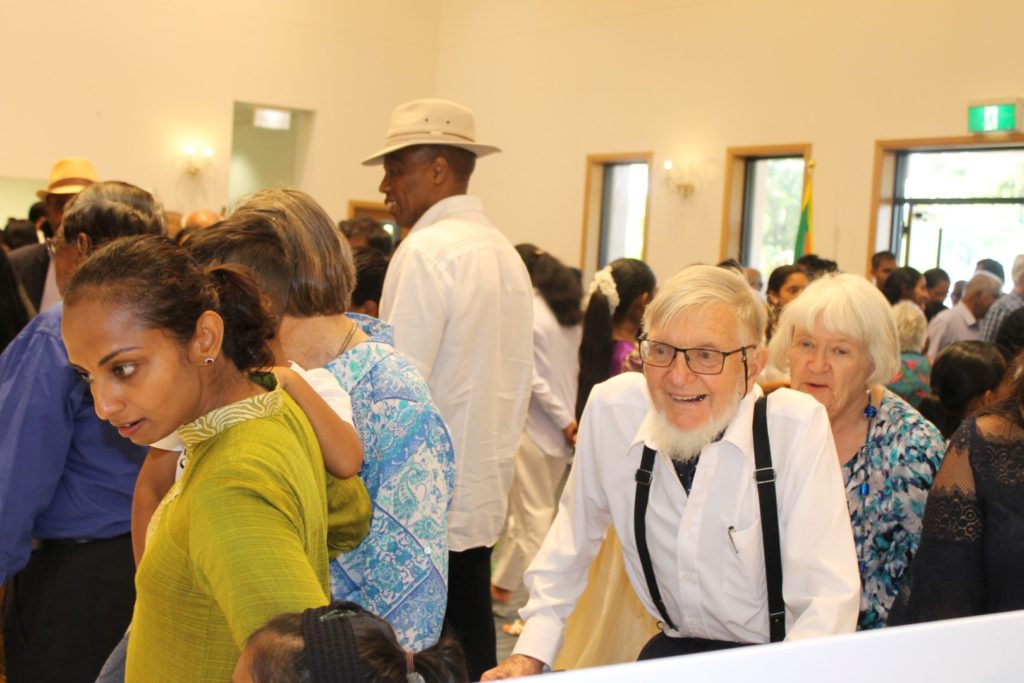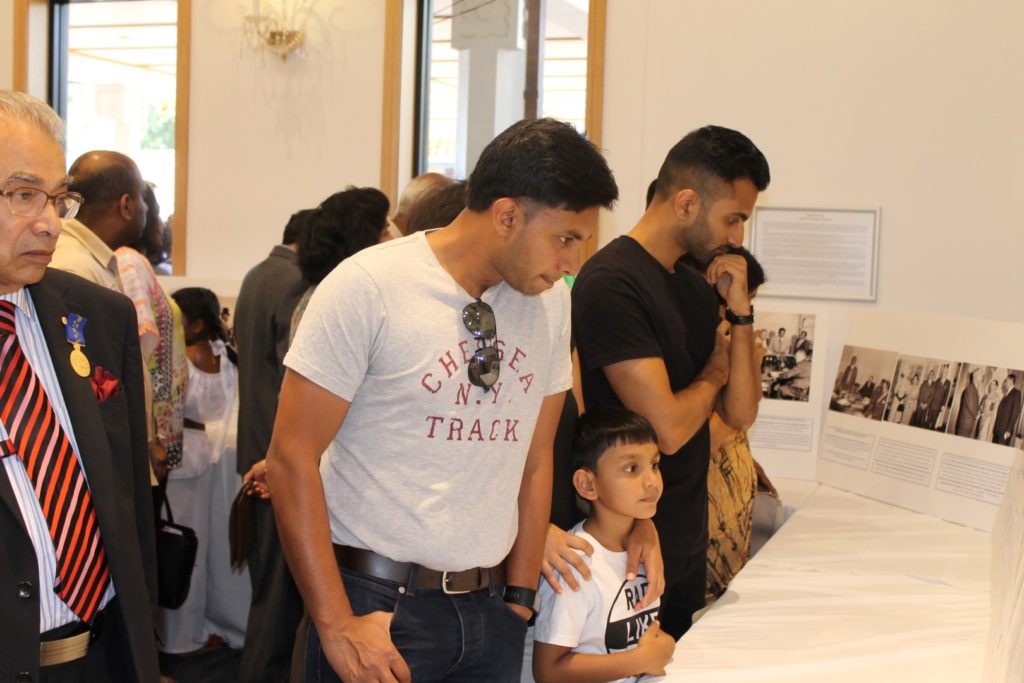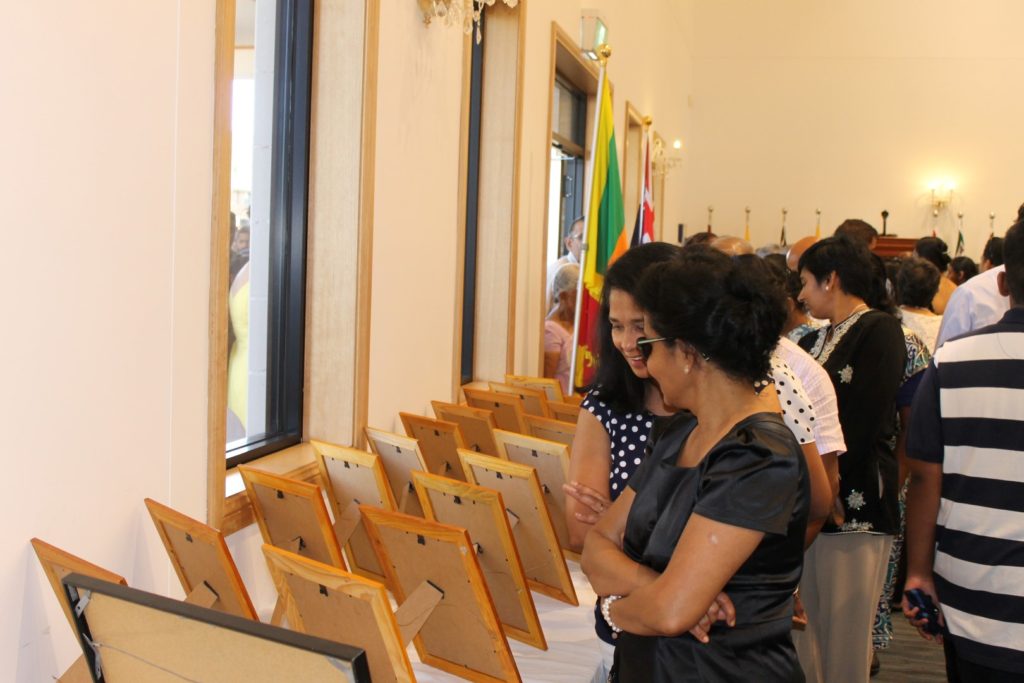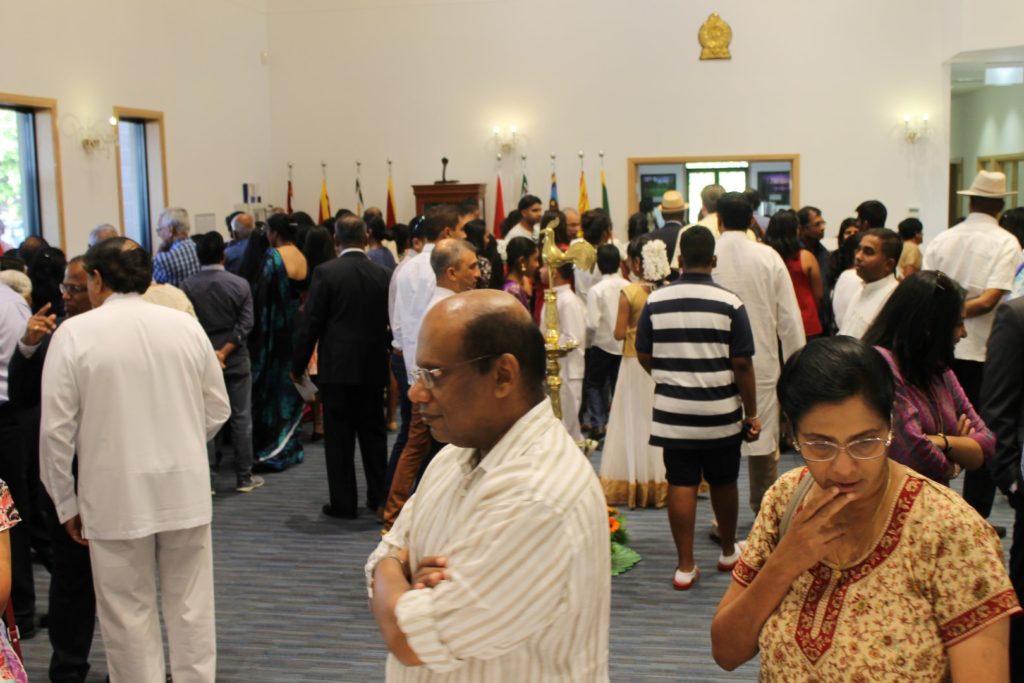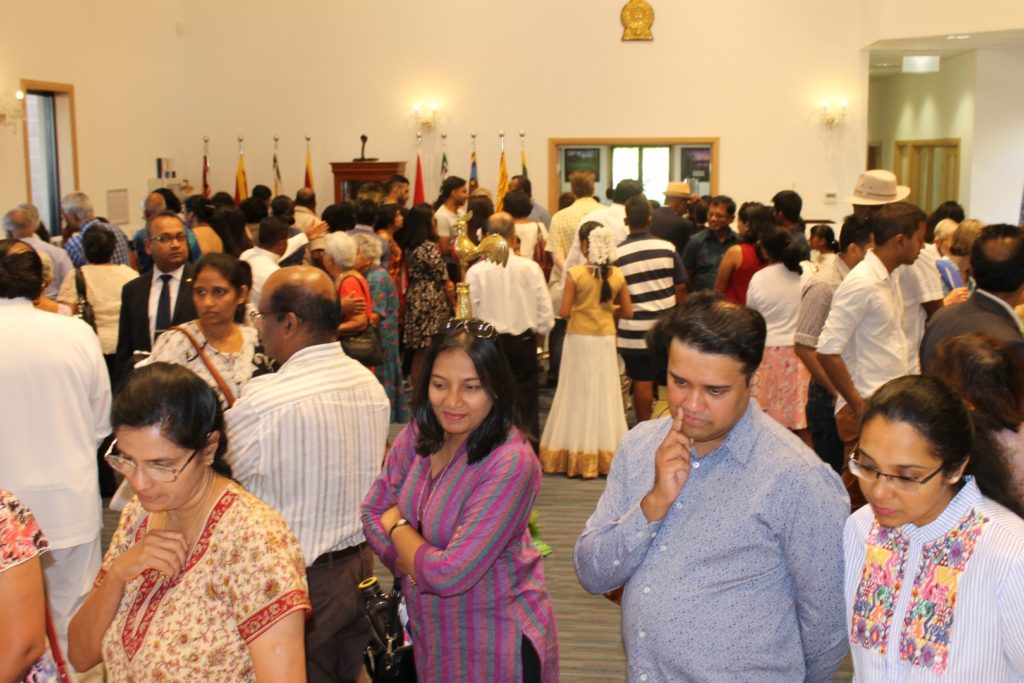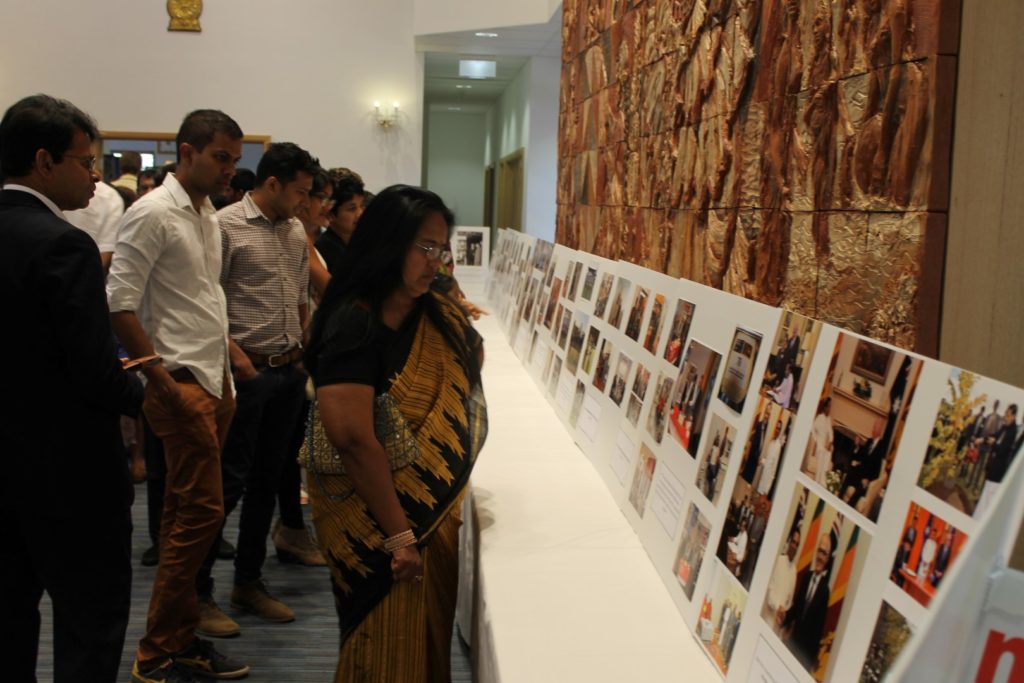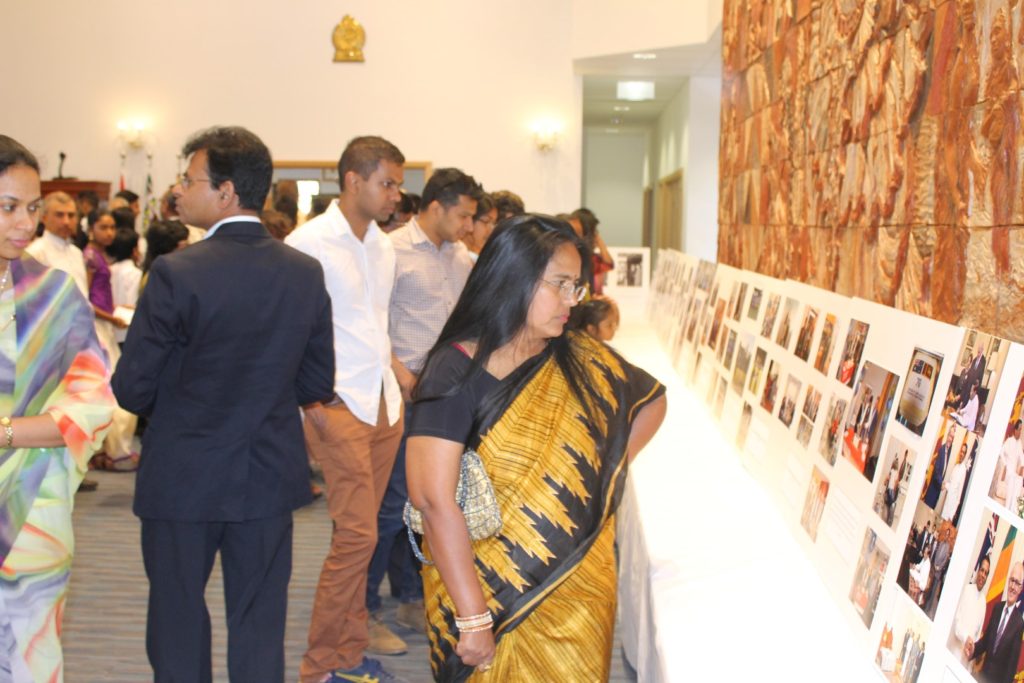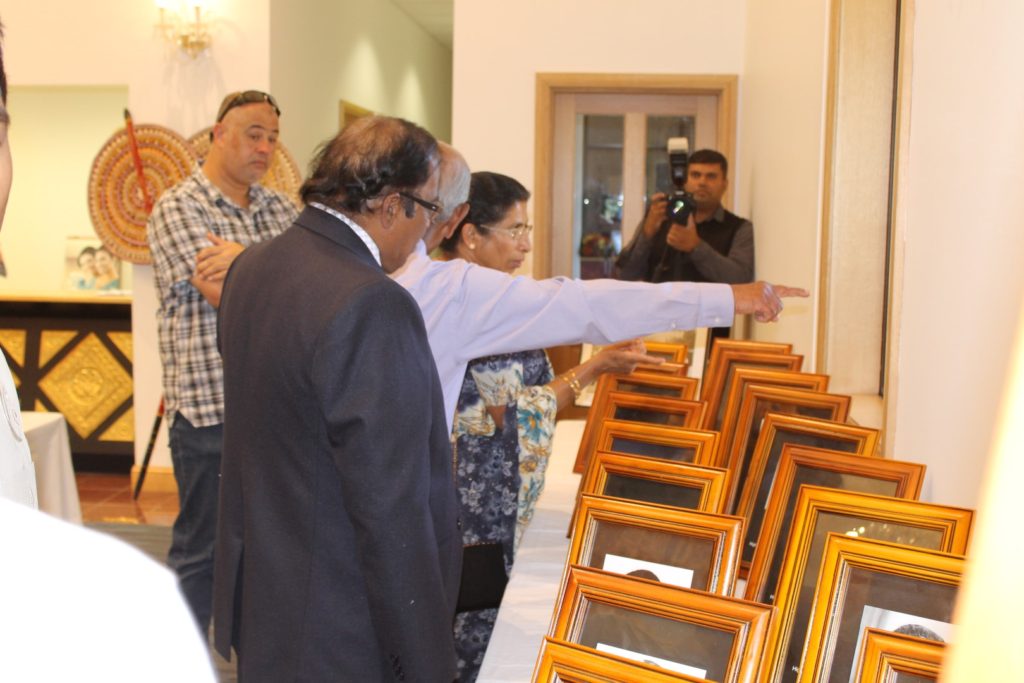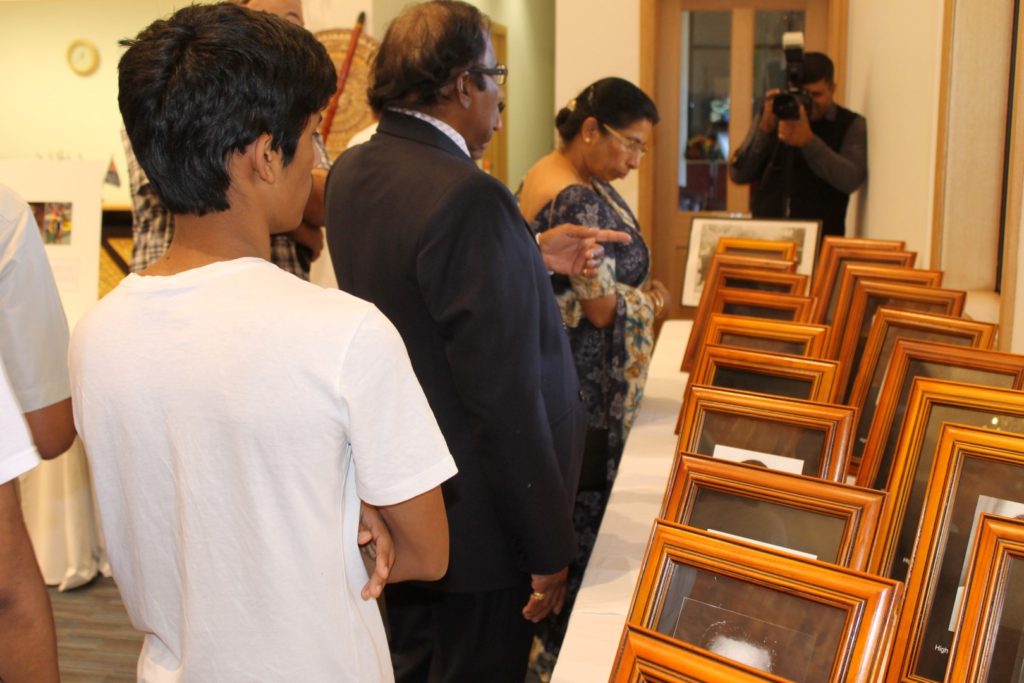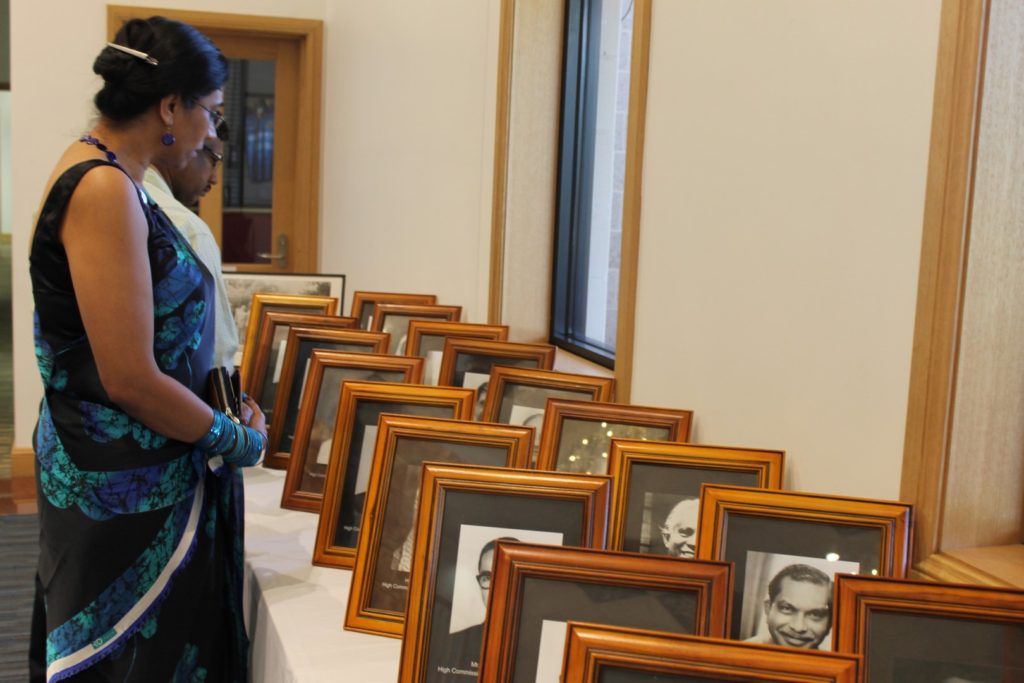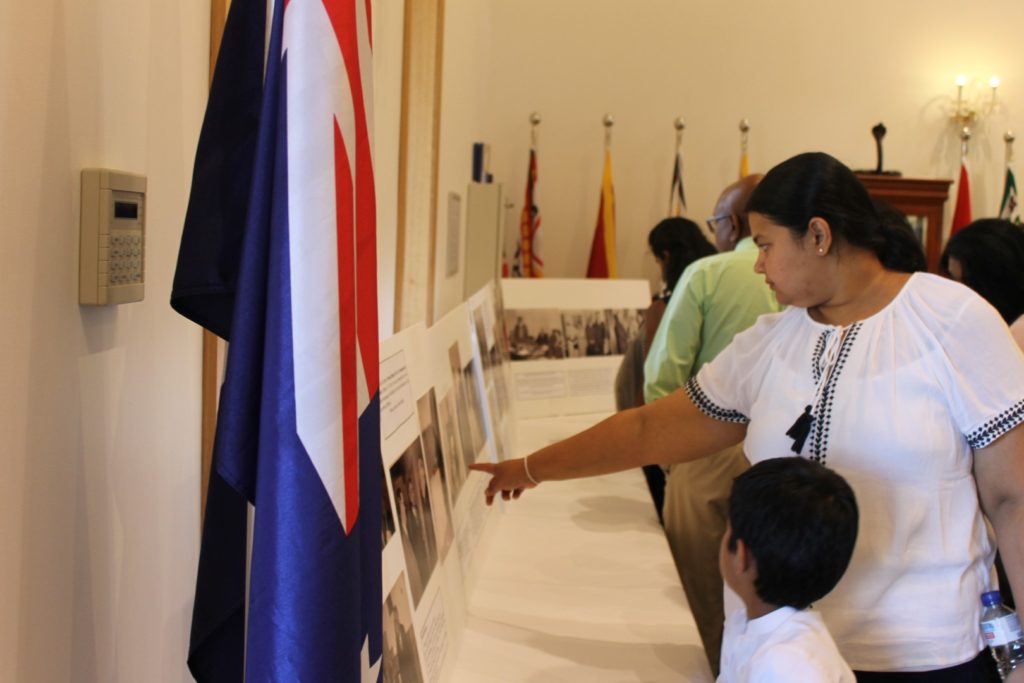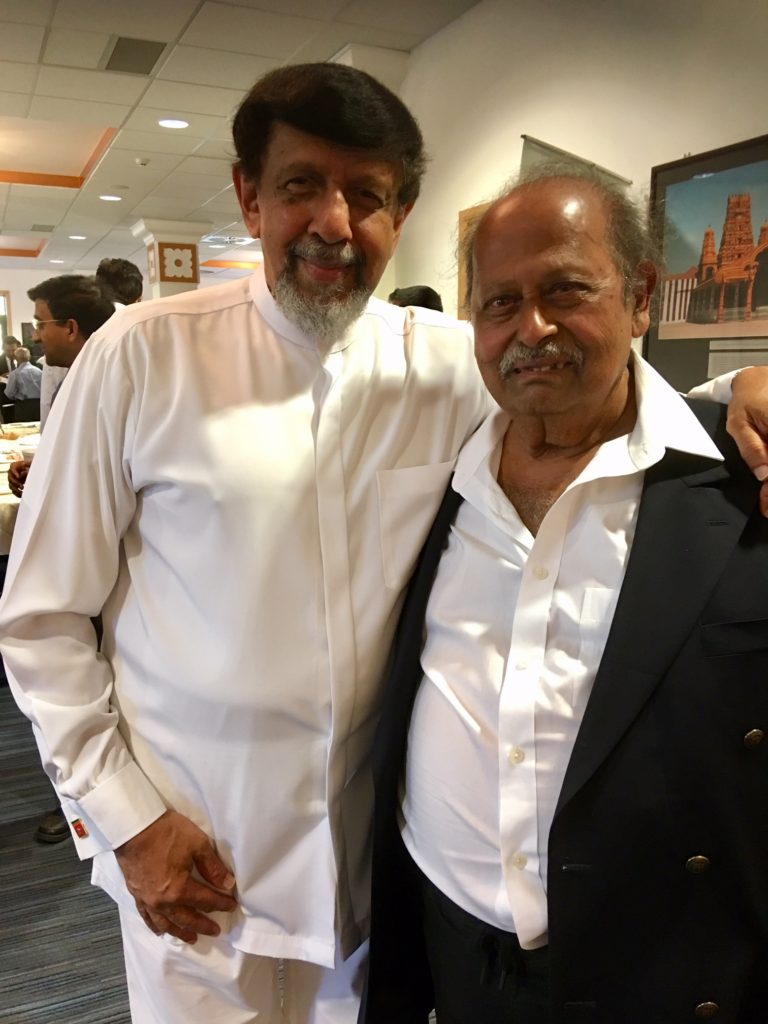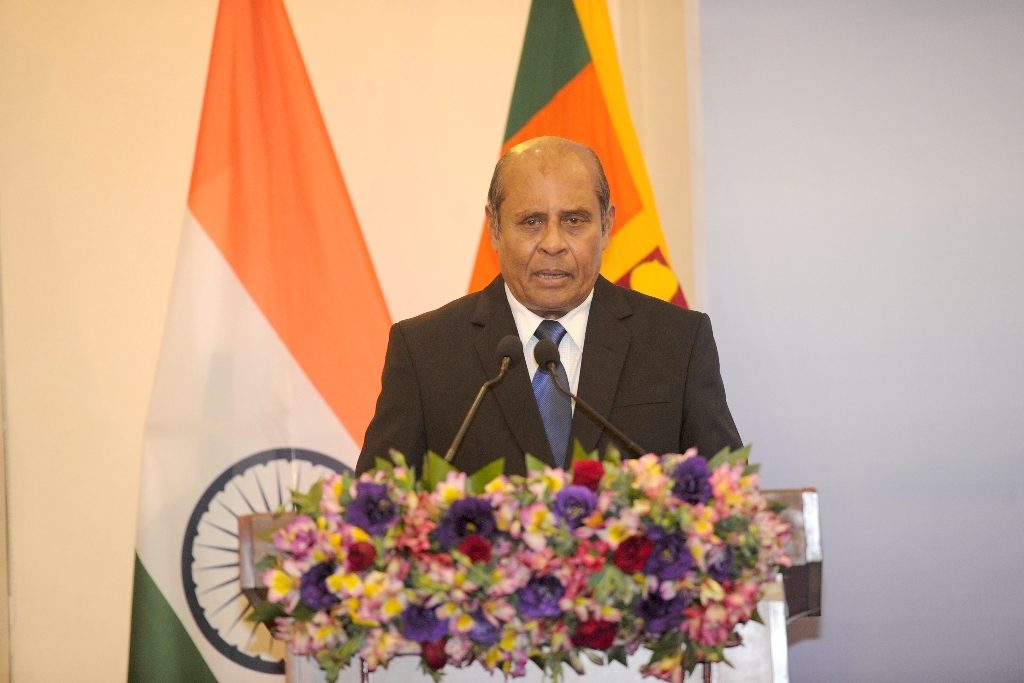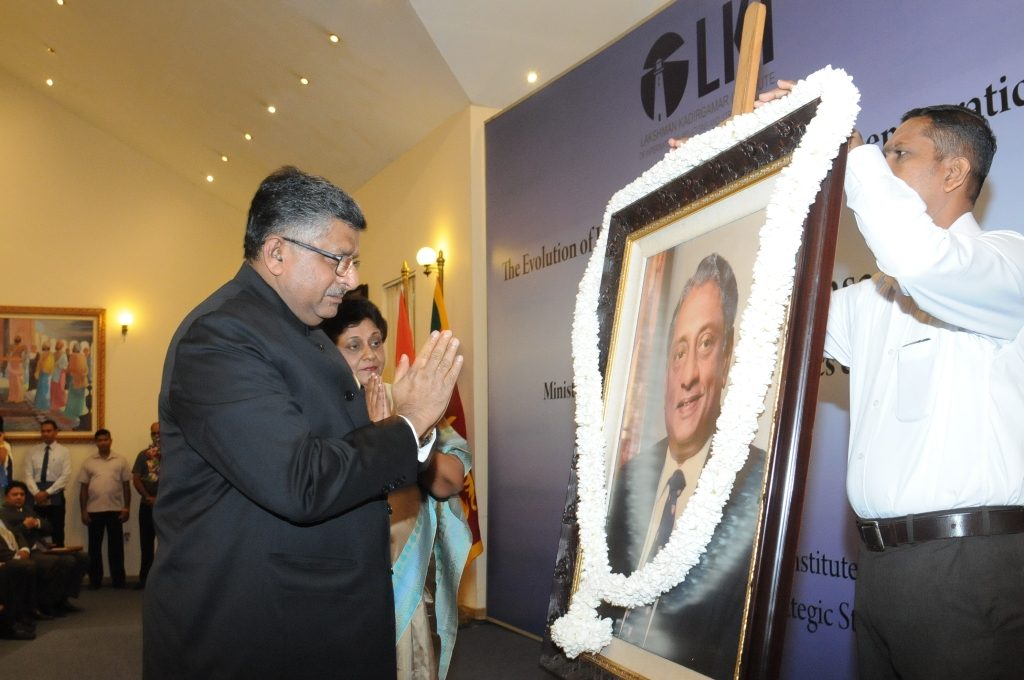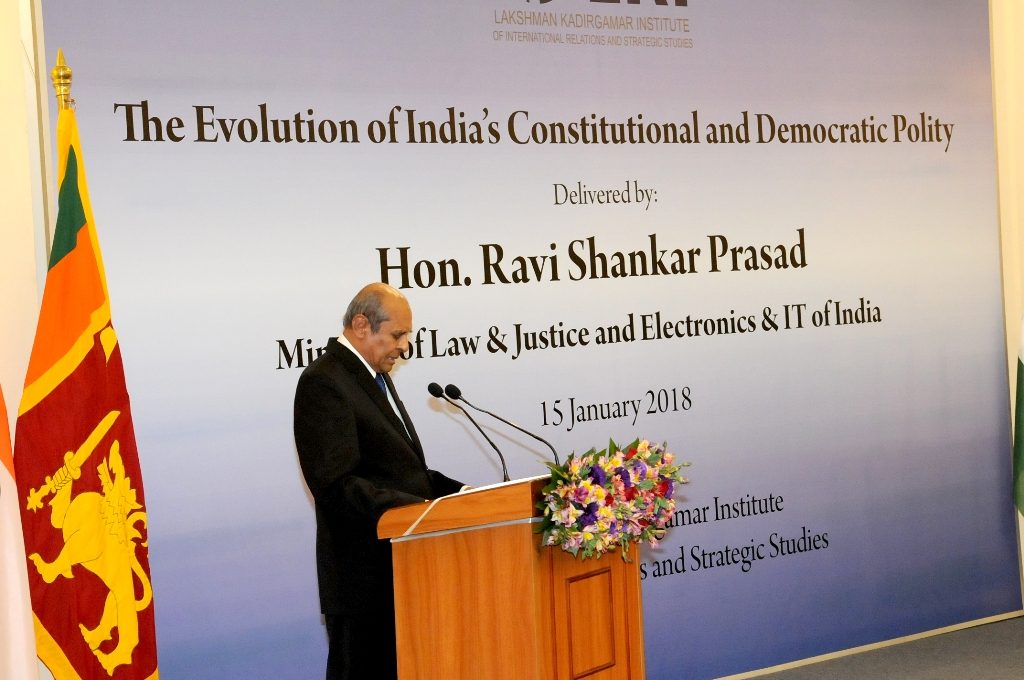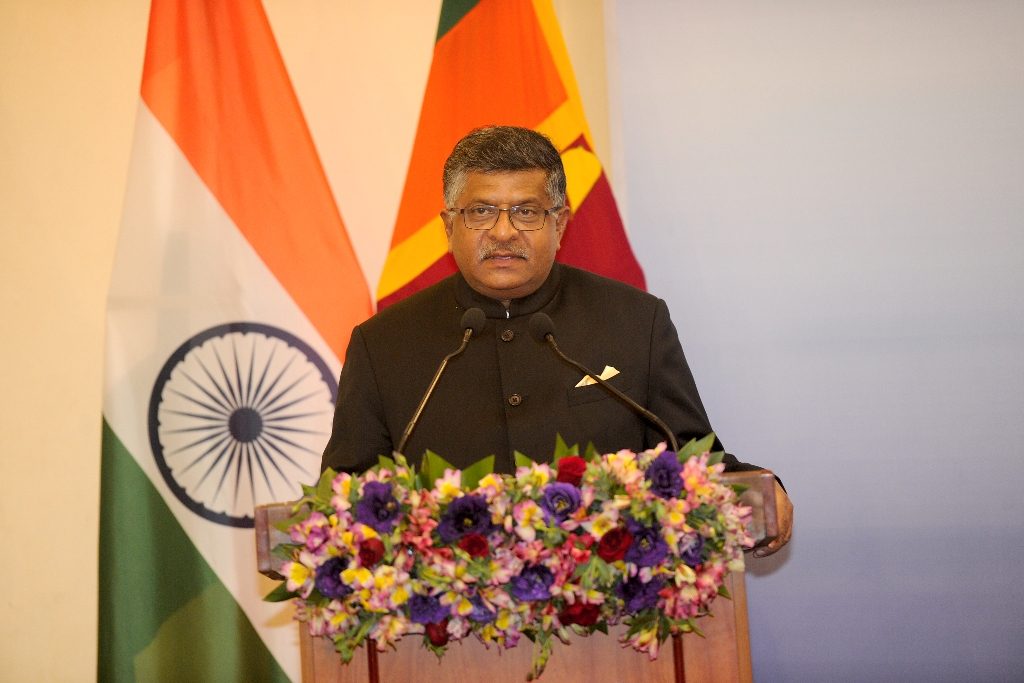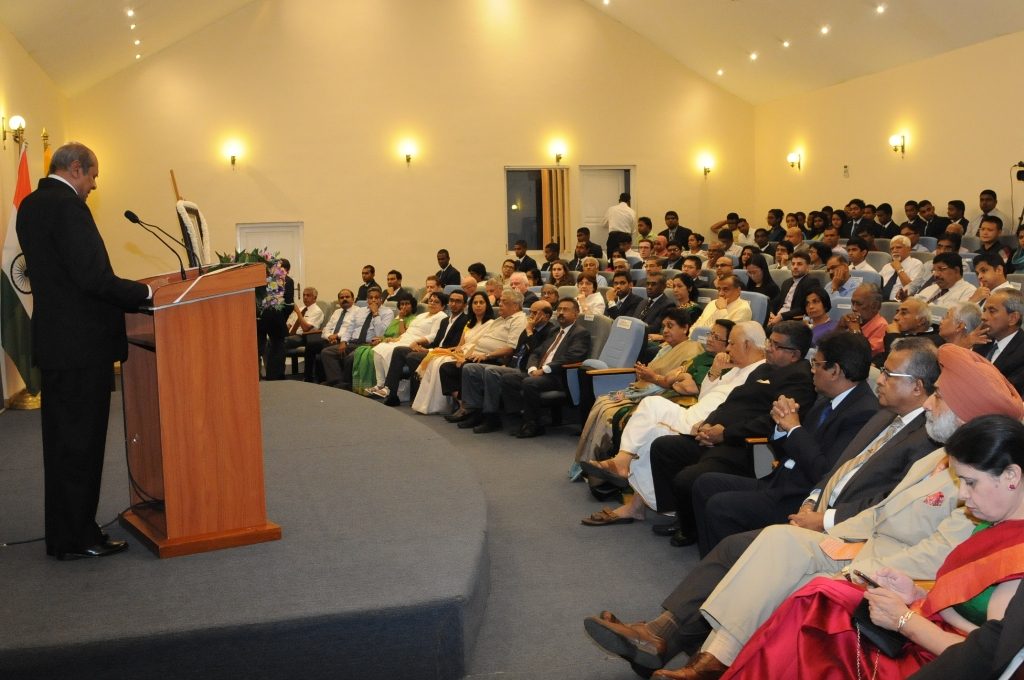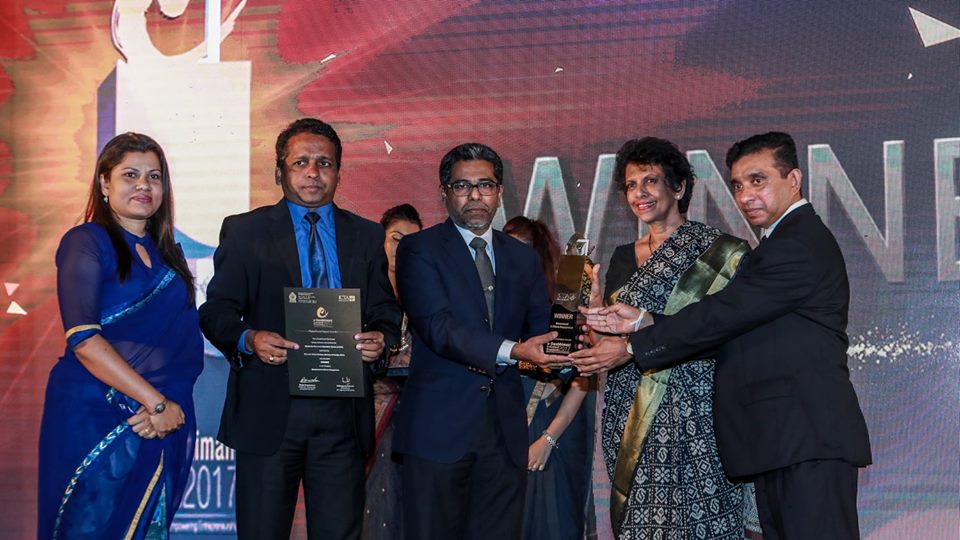


Dr Ben Dayaratne appointed Honorary Consul for Sri Lanka in Darwin
March 14, 2018
Sri Lanka has appointed Dr Ruhunage Don Bennet Dayaratne (Ben Dayaratne) as the Honorary Consul for Sri Lanka in Darwin, Northern Territory.
Dr Dayaratne is a Consultant Paediatrician and has been practicing in Darwin for over 40 years; first at the Royal Darwin Hospital and later in his own private practice where he continues to work. Dr Dayaratne has also worked in the United Kingdom and Sri Lanka where he received his education. He is a graduate of the University of Ceylon Faculty of Medicine and continued post graduate education in the United Kingdom. Read More »
Mr Panditha Bandara appointed Hony Consul for Sri Lanka in Papua New Guinea
February 27, 2018
Mr. Panditha Mudiyanselage Nawaratne Bandara, Senior Lecturer in Accounting & Head of Accounting, Banking & Finance Division of the School of Business and Public Policy in the University of Papua New Guinea has been appointed as the Honorary Consul for Sri Lanka in Papua New Guinea.
Mr Bandara holds a Master of Business Administration from the Postgraduate Institute of Management, Sri Jayewardenepura University (1994) and a Bachelor of Arts from University of Sri Lanka, Vidyodaya Campus (1977). He is an Associate Member of the Certified Practicing Accountants, Papua New Guinea (CPA, PNG), Associate Member, Chartered Institute of Public Finance and Accountancy, (CIPFA) UK.
He has written many text books on accounting and business studies for educational institutions in PNG. Mr Bandara received the ‘Member of Logohu’ award by the Governor General of Papua New Guinea Grand Chief Sir Bob Dadae for his contribution to higher education, in particular the accounting profession and accounting education in PNG over the last 16 years.
Sri Lanka High Commission
Canberra
27 February 2018
Tea Party to celebrate 70th anniversary of independence
February 14, 2018
The Sri Lanka High Commission hosted a tea party to diplomatic envoys in Canberra and Australians government officials on 12th February to commemorate the 70th anniversary of Sri Lanka’s Independence.
The envoys were served a refreshing glass of iced tea on arrival to quench their thirst on a hot February afternoon in Canberra. They were then invited to browse the photo exhibition depicting significant moments from Sri Lanka Australia relations spanning over 70 years. Following the formal proceedings High Commissioner S. Skandakumar and the Chief of Protocol Ms Lyndall Sachs cut the special cake to mark the occasion. Read More »
Life Saving Victoria partners with Sri Lanka Life Saving on drowning prevention and water safety
February 9, 2018
A group of 13 female members of the tourism industry, business community, media and those within Sri Lanka Life Saving are currently in Australia on a two week Fellowship under the Department of Foreign Affairs and Trade’s Australia Awards to take part in a two week programme. The programme is divided into two streams: a technical stream to empower female leaders to develop skills and knowledge in water safety where the Fellows will participate in a range of lifesaving and water safety skills workshops to gain qualifications that meet international standards, and a management stream, for representatives from tourism operators and media who play an integral part in water safety development and awareness, that is aimed at using water related assets for tourism development.
The Sri Lanka High Commission hosted the visiting delegation, officials of Life Saving Victoria, International Life Saving Federation, Department of Foreign Affairs and Trade, Royal Life Saving Society Australia and Surf Life Saving Australia to afternoon tea following the official opening of the programme in Canberra on 8th February. Welcoming the delegation and other participants, High Commissioner Somasundaram Skandakumar commended the noble work being carried out by those involved in Life Saving, usually working as volunteers, and appreciated LSV’s partnership with Sri Lanka which will help prevent drownings as well as improve water safety thereby facilitating better utilisation of water assets to develop the tourism industry. The delegation will visit a range of locations in Victoria, New South Wales and Queensland to experience how lifesaving services integrate with businesses and communities to help promote tourism. Two members from Bahrain Life Saving who are also taking part in the programme were also present.
Life Saving Victoria (LSV) has been working with Sri Lanka Life Saving (SLLS) since 2011 in drowning prevention work. The partnership which started at a grass root level has recently moved to a holistic strategic level. As part of this partnership, LSV is working with female members of Sri Lanka’s tourism industry, the business community and those within Sri Lanka Life Saving, to increase representation of females involved in community aquatic education, employment and organisational governance with the aim of preventing drowning and improving water safety in Sri Lanka.
Sri Lanka High Commission
Canberra
9 February 2018
Independence Day Celebration
February 5, 2018
70th anniversary Independence Day celebration in Canberra was held on 04th February at the High Commission. A photo exhibition events highlighting significant events in the relations with Australia over the last 70 years was a key attraction.
Independence Day Messages – 2018
February 4, 2018
Independence Day Message of H E the President
If one is to truly fathom the value of independence, it is essential to understand the pain being oppressed and subservient in the face of a foreign power. This is why we are grateful to all our heroes who sacrificed their lives in order to restore and sustain our nation’s independence. On a day like today, when the value of freedom is commemorated, the nation pays tribute to its true patriots whose contribution to our motherland is invaluable.
As Sri Lanka celebrates seven decades of independence, it is appropriate to reflect on how far we have come as a nation. In terms of achieving human development, and various social, economic, and political challenges we were faced with, the progress we have achieved over this period is laudable.
I believe that as a nation with a unique identity, we have what it takes to overcome any challenge. We have proven it throughout our history. Today, we must show once again that Sri Lanka is a nation that can rise within a short span of time. We have to undertake many a mission, including achieving inclusive green growth, national reconciliation, and uplifting the quality and competitiveness of our human capital in a global scale.14998
We must also remember that true freedom does not comprise only of political freedom. Our independence is not complete until economic and cultural freedom is achieved. In our journey towards economic freedom, this year is a crucial one.
As a country, our future successes lie in our commitment to achieve long term goals with firm determination, as we have done in the past. Completion of the Moragahakanda reservoir as the last massive step in the Mahaweli development programme is a testimony to our perseverance and commitment to meet such long term goals. This year has been declared the “National Food Production Year”, with hopes to reach the goal of food security, a dream that our nation has had since independence.
On this occasion that we celebrate seven decades of Independence, I pledge to fulfil all my duties towards mother Lanka, and I emphasize that our true strength is in our unity and determination.
Maithripala Sirisena
February 4, 2018
Message in Sinhala Message in Tamil
Independence Day Message of Hon. Prime Minister
This year, we celebrate 70 years of independence from colonial rule. It is an occasion for us to remember that we were only able to achieve independence with the participation of all communities coming together towards a common goal.
It is our responsibility to keep in mind that true independence is only possible when we can unite as one nation, rising above political, religious and ethnic differences. Only then is independence truly significant and meaningful to all.
Freedom is fulfilled when human dignity and spiritual liberty is attained – in addition to social, political and economic freedom.
Since being elected to power, our Government has consistently focused on creating the right social and political climate needed to build a society that is indeed free and stable.
Under a theme of One Nation, the 70th Independence Day celebrations that are held today, reflect our legacy as a free nation. My hope is to see all Sri Lanka unite as one to sustain freedom for all.
Let’s strive to be a people truly committed to our nation’s progress on this Independence Day.
Ranil Wickremesinghe
Prime Minister
Message in Sinhala Message in Tamil
Independence Message of Hon. Minister of Foreign Affairs
Today, as Sri Lanka celebrates her 70th Anniversary of Independence, I wish to convey my warm greetings to all Sri Lankans residing in the country as well as in various parts of the world. On this solemn occasion, I would like to pay homage not only to those who fought hard to gain independence, but also to the thousands who subsequently sacrificed their lives to safeguard this independence.
Each anniversary of Independence is an important milestone in our journey for us to reflect on our achievements during the past and evaluate the challenges lying ahead. Sri Lanka, as a nation, can be proud of its performance in the past and its commitment to democratic traditions including the Rule of Law, achievements made in important areas such as education and health as well as the talented human capital of the country, which is its most valuable asset. However, unfortunately, our progress had been hindered and marred by conflict.
With that traumatic past behind us, all Sri Lankans should now work together, shedding their differences, to create a better future for the generations to come and to compensate for the lost opportunities due to various reasons. We must endeavor to create a new Sri Lanka, where reconciliation and sustainable peace would reign along with economic prosperity. This is the firm resolve that we, as Sri Lankans, must make when we celebrate the 70th Anniversary of our Independence. In this context, the Government is committed to redouble its efforts to meaningfully develop the country with a view to increasing productivity and connectivity, and creating a firm foundation for all Sri Lankans to emerge as a strong nation in the region and the world.
Tilak Marapana, PC, MP
Minister of Foreign Affairs
4th February 2018
Introductory Remarks by Foreign Minister Tilak Marapana at Lakshman Kadirgamar Memorial Lecture
January 18, 2018
Introductory Remarks by Hon. Tilak Marapana, Minister of Foreign Affairs & Chairman of the Board of Management of the Lakshman Kadirgamar Institute of International Relations and Strategic Studies
Lakshman Kadirgamar Memorial Lecture
Colombo, 15 January 2018
Our chief guest today, the Hon. Ravi Shankar Prasad, Minister of Law & Justice and Electronics & Information Technology of the Government of India,
Hon Chief Justice,
Hon Leader of the Opposition,
Mrs. Suganthi Kadirgamar,
Members of the Board of the Lakshman Kadirgamar Institute of International Relations and Strategic Studies,
Your Excellencies,
Distinguished Invitees,
Ladies and Gentlemen.
It is my pleasure, as the Chairman of the Board of the Lakshman Kadirgamar Institute of International Relations and Strategic Studies to introduce our distinguished guest speaker, Hon. Ravi Shankar Prasad,Minister of Law & Justice and Electronics & Information Technology of the Government of India. I am glad that Hon. Prasad has been able to accept our invitation to deliver the Lakshman Kadirgamar memorial lecture this year.
Late Sri Lankabhimanya Lakshman Kadirgamar, in whose memory this lecture is held, is an illustrious son of Sri Lanka. After an extensive practice in Civil Law as a President’s Counsel and a number of years service as Head of Asia Pacific Division of the World Intellectual Property Organization, Mr Kadirgamar entered politics as an appointed member of Parliament in 1994 and was appointed as the Foreign Minister of Sri Lanka, a portfolio that he held twice from 1994 to 2001, and from April 2004 to August 2005, until his assassination.
He was prophetic about the evolving global threats due to terrorism and called upon the democracies of the world to stand together to fight this global menace. He was also a very strong advocate of democracy and human rights.
Mr Kadirgamar was most importantly a true gentleman. Both in his conduct and at heart. Mild, soft spoken and understanding it was not at all difficult to assess him as a genuine friend after even a brief encounter.
He was loved and admired by the people of this country. He enjoyed the respect and admiration of his counterparts and leaders of foreign countries, and all those who had the privilege of meeting him.
All this was possible for him because of his qualities, not his knowledge and intellect alone which of course, he had in abundance. Anyone could read up and acquire knowledge but it is not possible for everyone to get the love, respect and admiration that Mr Kadirgamar enjoyed, due to his inherent gentlemanly disposition.
I cannot fail to mention the love and support he got from his wife Suganthie and I would credit a good portion of Mr Kadirgamar’s success to his wife Suganthie.
It is partly demonstrated by her untiring efforts in having this memorial lecture organized for the past 12 years or so and the extent to which she went to visit India and persuade Mr Kadirgamar’s friend Hon Ravi Shankar Prasad to deliver this memorial lecture.
Late Lakshman Kadirgamar was a friend of India, and worked tirelessly towards further enhancing and nurturing relations between our two countries. Amongst his distinguished friends in India were many illustrious political leaders. Therefore, it is a matter of particular satisfaction in having Hon. Ravi Shankar Prasad, Minister of Law & Justice and IT of the Government of India to deliver the Lakshman Kadirgamar Memorial Lecture.
Ladies and Gentlemen,
Our guest speaker Hon. Ravi Shankar Prasad hails from an illustrious family in Patna, Bihar. A lawyer by profession like his father, he made his name as a prominent lawyer in different branches of law including Constitutional Law, Public Law, Corporate & Criminal Law. His practice was mainly confined to the Supreme Court. During his college days, Hon. Ravi Shankar Prasad has been a student activist and later he has been a human rights and civil liberty activist. As a political activist and organizer, he was the founder of Jansangh in Bihar and was its President for 10 years. He also held the portfolio of Industries in the State Cabinet of Bihar.
He has held national level assignments in the youth wing of the BJP over the years. He became an MP in 2000 and became a Minister of State (Coal & Mines) in 2001 in the Government of Hon Vajpayee. Hon Prasad was given the additional charge of the Minister of State in the Ministry of Law & Justice in July 2002. He became National Spokesperson in 2006 and was re-elected again to the Parliament (Rajya Sabha) from Bihar in April 2006 for the second term and in April 2012 for the third term. He was appointed Minister of Law & Justice and Minister of Telecom & IT in May 2014. His impressive Biodata is much longer. I might summarize and say that Hon Ravi Shankar Prasad is today a much sought after Cabinet Minister in Prime Minister Modi’s Government with a bright future ahead of him.
The theme the guest speaker has selected is “the evolution of India’s Constitutional and Democratic Polity” and it is a subject quite topical to commemorate a person such as Lakshman Kadirgamar who believed in resolving differences through democratic means and Constitutional reform.
Ladies and gentlemen, let me now, as the Chairman of the Lakshman Kadirgamar Institute, invite Hon. Ravi Shankar Prasad to deliver this year’s Lakshman Kadirgamar Memorial Lecture.
Thank you.
Canberra Sri Lankan community celebrate Christmas with trilingual carols
December 18, 2017
Christmas was celebrated at the High Commission in Canberra with the participation of the Sri Lankan community on the 16th of December
Rev. Father Kevin Harris delivered a blessing and a message highlighting the true meaning of Christmas. He referred to the modest surroundings in which Baby Jesus was born as a reminder to all of the humility associated with the spirit of Christmas.
The Consular Affairs Division wins e-Swabhimani Award
December 5, 2017
The Consular Affairs Division of the Ministry of Foreign Affairs won an award in the category of ‘‘government and citizen engagement’’, at the Seventh e-Swabhimani 2017 awards ceremony, held at the Hotel Galadari in Colombo on Thursday, 30th November 2017. The award was in recognition of the Division’s Electronic Document Attestation System (e-DAS), which was developed to integrate greater citizen engagement in consular services and deliver innovative digital solutions to the public.
The online e-DAS enables the Consular Affairs Division to effectively serve more than 450 persons a day, and reduce processing and waiting time per document to a maximum of one hour, in contrast to the previous manual system, whereby a minimum of four hours was required to process and attest one document. The e-DAS has helped greatly reduce the time taken for document attestation and provide more efficient and effective service delivery to the public seeking these consular services.
The Consular Division continues to look at ways and means to improve and streamline services being provided to the public. Since the launch of the e-DAS on 06th February 2017, to date, more than 250,000 documents have been attested for the public. With the reduction of processing time, it has been estimated that approximately a total of 750,000 hours (250,000 documents multiplied by 3 hours of saved processing time for each document) have been saved with the streamlined system provided for attestation of documents through the e-DAS.
In 2009, e-Swabhimani was launched as an initiative of the Information Communication Technology Agency (ICTA) of Sri Lanka aiming at recognizing excellence in creating digital applications which make definite social impacts in solving the real needs of people. This year the e-Swabhimani attracted a record number of 205 submissions, and these were accepted across nine categories, including government and citizen engagement.
The awarding of the e-Swabhimani award to the Consular Affairs Division, is the fourth award that the Division had won in the past few months. In October 2017, the Consular Affairs Division was awarded the Public Sector Most Outstanding ICT Achievement Award; the Gold Award in the Government and Public Sector Category at the 19th National Best Quality ICT awards and the Asian Oceanian Computing Industry Organization (ASOCIO) Award for Digital Government.
Mrs. Grace Asirwatham, State Secretary of the Ministry of Foreign Affairs, Mr. S.S. Ganegama Arachchi, Senior Director General of the Consular Affairs Division and the officials of the Division attended the awards ceremony and represented the Ministry.
Ministry of Foreign Affairs
Colombo
04th December 2017
Register with the High Commission
The Sri Lankan High Commission in Canberra would like to keep in touch with Sri Lankans and persons of Sri Lankan origin living in Australia, New Zealand, Fiji, Papua New Guinea, Vanuatu and other Pacific Islands as well as Sri Lankan community organisations in those countries.
If you are a current/former Sri Lankan or an office bearer of a Sri Lankan community organisation we invite you to register with the High Commission.
RegisterAddress
Sri Lanka High Commission
61, Hampton Circuit
Yarralumla
ACT 2600

